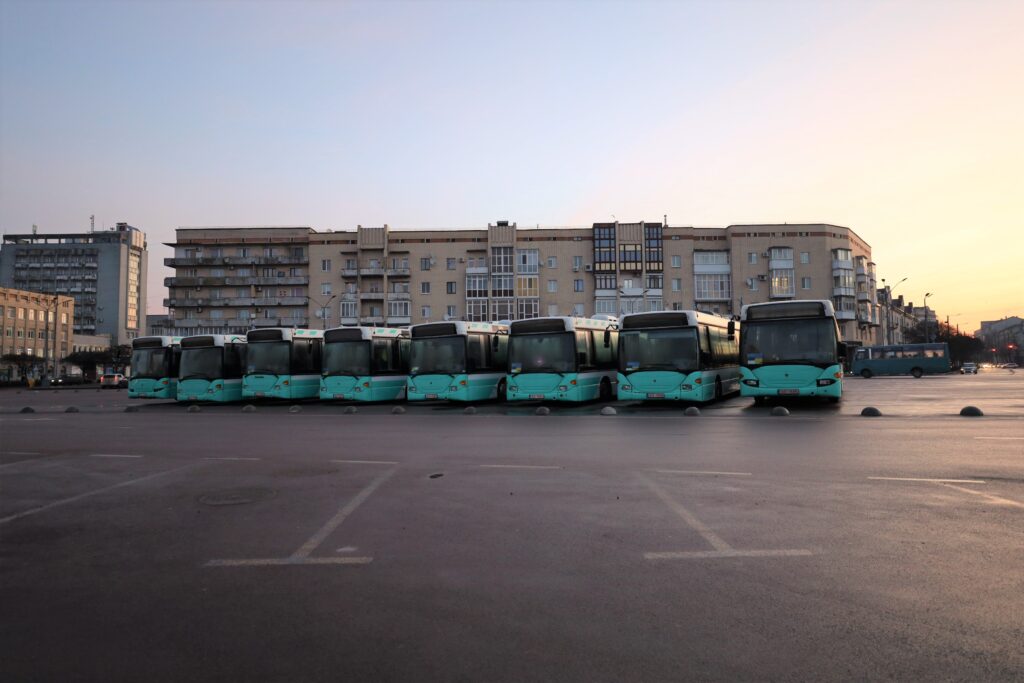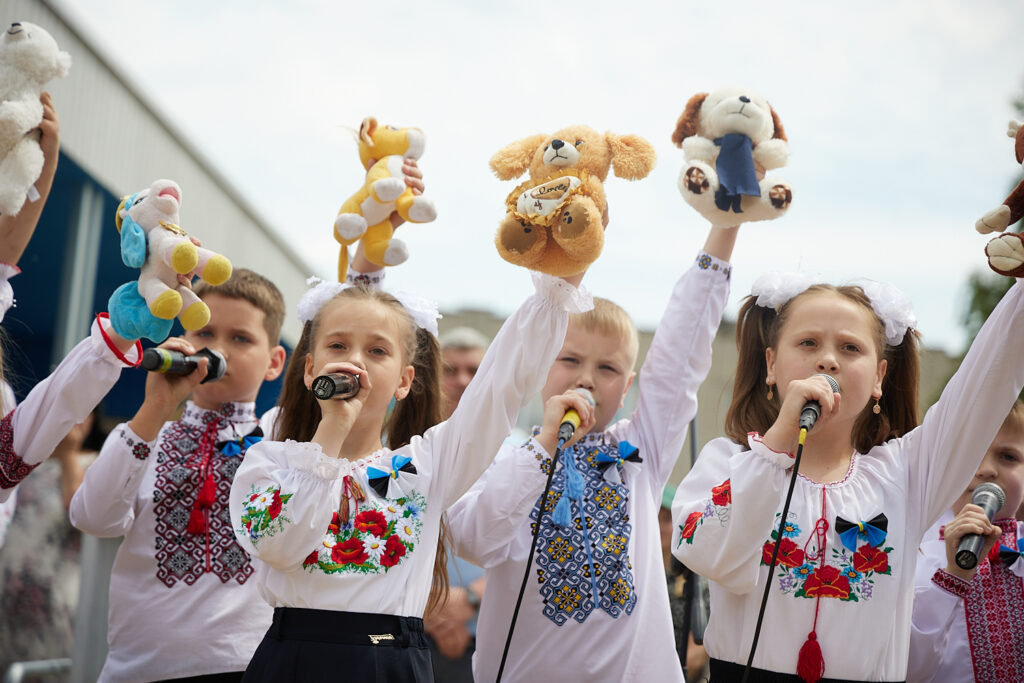In the wake of the Russian invasion of Ukraine, Estonian World brings you the latest reactions from Estonia. For updates from 2022, please see a separate article.
19 October – Europe’s moral reversal: from justice to fatigue
When Russia’s full-scale invasion of Ukraine began, the West’s response seemed resolute: a united stand against aggression, with talk of justice and accountability. Yet three years on, that moral clarity has begun to fade.
In The next Versailles: a moral reversal that could break Europe, Ukrainian author Sergey Maidukov warns that Europe is drifting towards the same moral trap that followed the First World War – but in reverse. Then, Germany’s humiliation bred resentment and war; now, the risk is that Ukraine, the victim, will be left humiliated while Russia regains acceptance.
What began as a struggle for justice is turning into a negotiation for convenience. As Western attention shifts elsewhere, Ukraine’s suffering has receded from the headlines. The fear, Maidukov writes, is that Europe will once again choose “manageable silence” – rewarding the aggressor and abandoning the principle it once defended.
If that happens, the moral damage will not stop at Ukraine’s borders. It will mark the beginning of Europe’s own unravelling.
19 October – Nordic-Baltic states pledge €500m for Ukraine at NATO meeting
At a NATO Defence Ministers’ meeting in Brussels on 15 October, Estonia’s defence minister Hanno Pevkur announced that Nordic and Baltic partners have raised €500 million for Ukraine through the NATO-U.S. PURL initiative, which funds American military aid using allied contributions.
Pevkur said four such packages have already been delivered since August, and more allies are preparing to join future rounds. Estonia’s own military assistance to Ukraine will exceed 0.3 per cent of GDP next year.
He also pressed for allies to meet the NATO target of investing 5 per cent of defence budgets in capability development and called for faster action to strengthen air defence on the eastern flank, citing rising drone incursions. Italy has extended deployment of its SAMP/T system in Estonia as part of NATO’s air policing mission.
At the same meeting, the NATO-Ukraine Council and the Ukraine Defence Contact Group – co-chaired by the UK and Germany – discussed Kyiv’s urgent needs for air defence, ammunition and industry support. A separate Memorandum of Understanding was signed for Legio, a Nordic-Baltic initiative to train and equip a Ukrainian brigade to NATO standards.
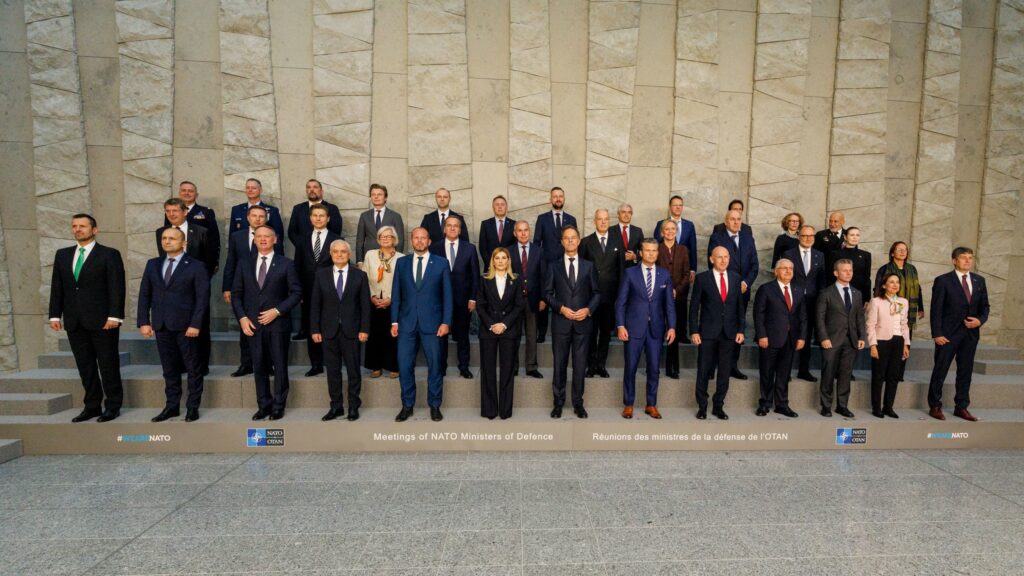
1 October 2025 – €10M to the NATO-US initiative to support Ukraine
Estonia is contributing €10 million to an initiative through which NATO allies and partners purchase essential weapons systems and ammunition from the United States to support Ukraine. The “Prioritized Ukraine Requirement List” initiative enables the supply of US-produced weaponry to Ukraine, including air defense systems, ammunition and spare parts.
14 September 2025 – Sergey Maidukov: Europe’s famous unknown
Europe has long honoured its Shakespeares and Mozarts – yet Ukraine’s Shevchenko, Malevich and Skovoroda remain in the shadows, their legacy muted by centuries of Russian repression, writes Ukrainian author Sergey Maidukov in Estonian World.
14 September 2025 – Estonia to give Ukraine over €100m in 2026
On a visit to Kyiv, Estonia’s defence minister Hanno Pevkur pledged that his country will continue military aid to Ukraine next year worth at least 0.25% of GDP – more than €100 million, mostly in equipment from Estonian firms.
Pevkur stressed Estonia’s “steadfast support” in Russia’s war, adding that training for Ukrainian troops and IT assistance will also continue. He condemned Russia’s “unprecedented” violation of Polish and NATO airspace and said pressure on Moscow must not ease.
In Kyiv, Pevkur met frontline soldiers, mayor Vitali Klitschko and security officials, and joined the Yalta European Strategy conference alongside US and Ukrainian leaders.
22 July 2025 – the hidden costs of Ukraine’s war
As children play in Kyiv’s parks, the war casts long shadows – over the mothers who wait, the fathers who vanish, and a future no one can quite define, writes Ukrainian author Sergey Maidukov in an opinion piece for Estonian World.
26 June 2025 – Estonia allocates €600,000 to alleviate the humanitarian crisis in Ukraine
The Estonian foreign ministry has allocated approximately €600,000 to alleviate the humanitarian crisis in Ukraine. The allocations will support, among other things, the provision of food aid, the improvement of the living conditions of internally displaced persons and better coordination of humanitarian aid.”
In 2025, an estimated 12.7 million people are in need of humanitarian assistance in Ukraine. The situation is most critical in the areas close to the frontline in eastern and southern Ukraine, where the number of mandatory evacuations has also increased in recent months. Russia continues to deliberately bomb civilian infrastructure, causing increasing casualties and suffering.
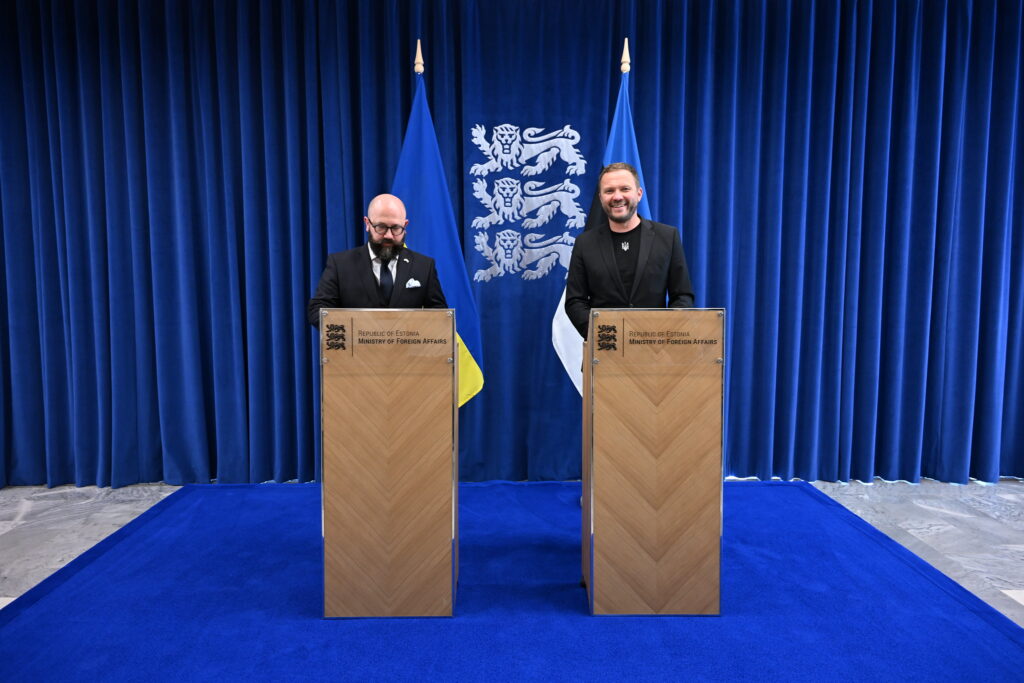
30 May 2025 – Estonia backs tribunal to prosecute Russian aggression
On 29 May, the Estonian government endorsed Ukraine’s proposal to establish a special tribunal under the Council of Europe to prosecute the crime of aggression against Ukraine. Estonia also approved the tribunal’s founding documents.
Foreign minister Margus Tsahkna stated that the initiative sends a clear message that acts of aggression will not go unpunished and that international norms apply universally. The tribunal, developed by legal experts from 40 countries and supported by the EU and Council of Europe, will complement the International Criminal Court’s investigations into war crimes in Ukraine.
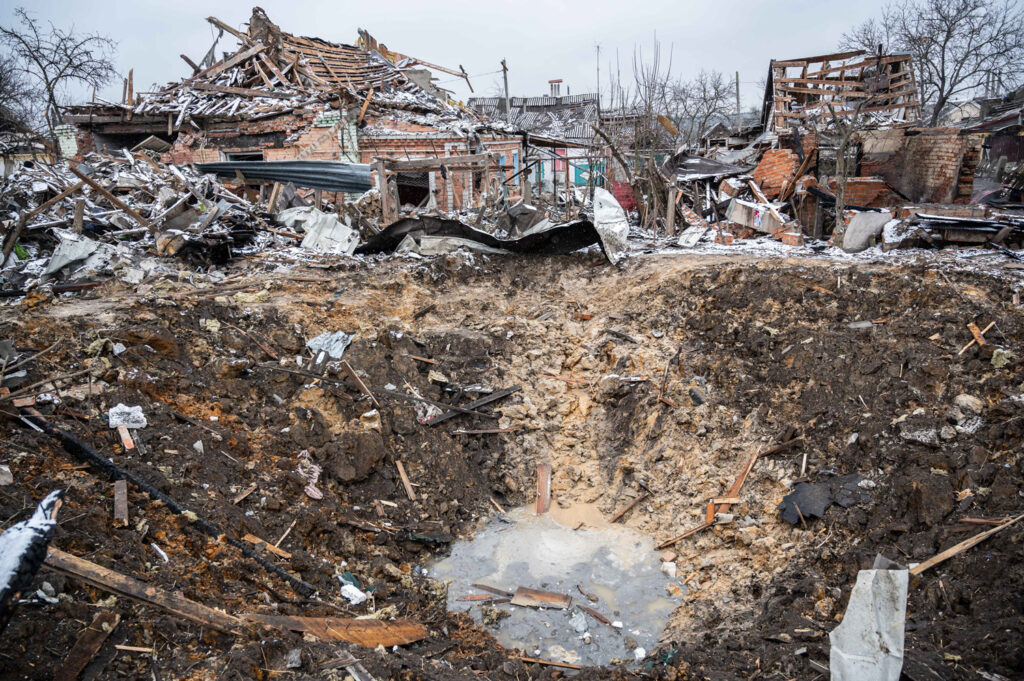
28 May 2025 – Estonia- and Luxembourg-led IT coalition mobilises over €1.1 billion for Ukraine’s digital defence
An international IT coalition led by Estonia and Luxembourg has pledged more than €1.1 billion to support Ukraine’s defence through secure communications and battlefield technology. At its ninth steering group meeting in Tallinn – held alongside the CyCon cyber defence conference – member states reviewed Ukraine’s most urgent technological needs and shared progress on ongoing projects.
The IT coalition was launched in 2023 as part of the Ukraine Defence Contact Group and is now made up of 18 nations, including Germany, the US, Sweden, Japan, and the UK. Procurement is coordinated through NATO’s Support and Procurement Agency and Estonia’s total contribution will exceed €7.7 million by the end of 2025.
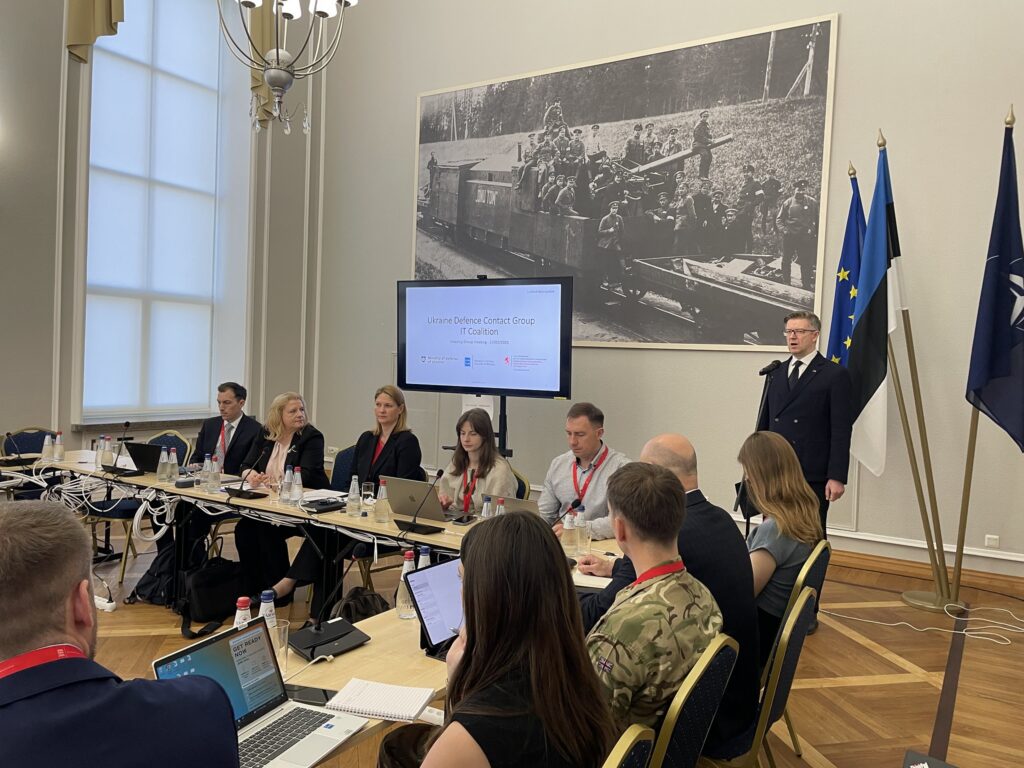
5 May 2025 – PM: Estonia ready to contribute to Ukraine’s deterrence force
Estonia is ready to contribute to the deterrence force of the coalition of the willing led by the UK and France, which offers security guarantees to Ukraine, the Estonian prime minister, Kristen Michal, said. According to him, planning of the coalition of the willing is halfway through, but once deterrence force is agreed upon, Estonia is ready to contribute up to a company-sized combat unit, training instructors and staff officers. “We will, of course, ask for a mandate from the Riigikogu before dispatching the unit,” he added.
22 March 2025 – Estonia to provide €100 million in military aid to Ukraine
Ukraine has submitted its request for military aid from Estonia, which will now procure the selected items – such as drones, ground vehicles, watercraft, and medical supplies – from Estonian defence companies. This €100 million package is part of Estonia’s pledge to support Ukraine with at least 0.25% of its annual GDP in military aid, with an additional quarter added this year.
Estonia’s Centre for Defence Investments will handle the procurement. The aid aims to strengthen Ukraine’s defence and bolster Estonia’s own defence industry.
21 March 2025 – Support for Ukraine won’t affect NATO presence in Estonia
The Estonian defence minister, Hanno Pevkur, said that any potential allied support to Ukraine will not impact NATO’s presence in Estonia or the Baltic region. The UK-led NATO battlegroup remains stationed in Estonia, and preparations are underway for the first UK reinforcement brigade deployment in May during Exercise Hedgehog.
Pevkur emphasised that no decisions have been made on European security forces in Ukraine, but Estonia and its allies agree such moves must not weaken NATO’s Eastern Flank.
3 March 2025 – Jaak Treiman: all human beings must support Ukraine
The outcome of the war in Ukraine is not about borders and sovereignty, it’s about the right of the Ukrainian people to shape their own destiny and to live in a free society, the Estonian honorary consul in California, Jaak Treiman, writes.

1 March 2025 – Estonian leaders call for stronger Europe amid US-Ukraine rift
The most serious rift between the United States and Europe since the Second World War has emerged, fuelled by disagreements over how to end the war in Ukraine. As tensions rise, an increasing number of Estonian politicians are calling for greater European autonomy and adopting a more critical stance toward the Donald Trump-led United States, Estonia’s ally for over a century.
In a separate blog, Estonian World brings reactions from Estonian politicians and opinion leaders.
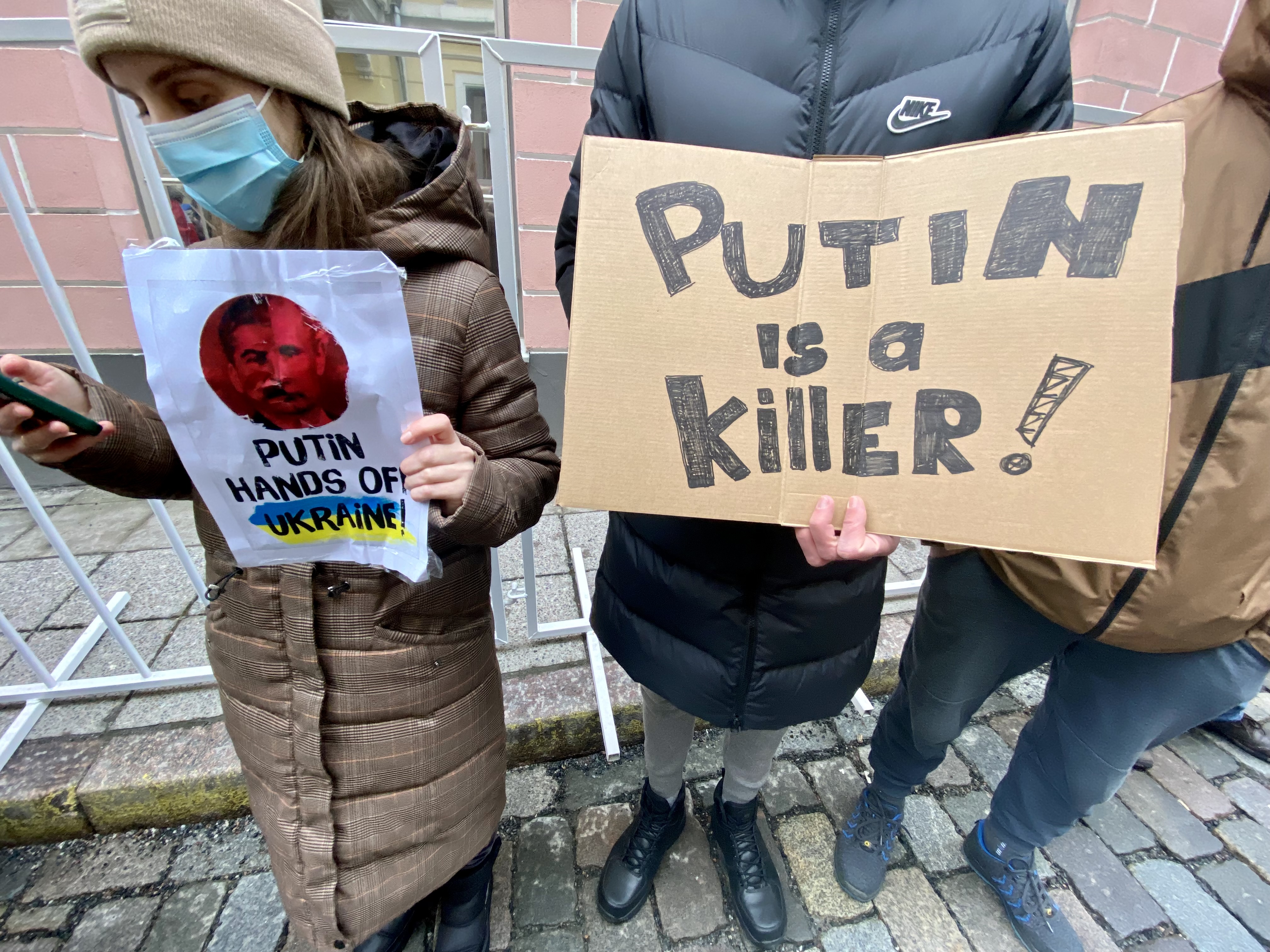
1 March 2025 – Ukrainian refugee’s new beginning in Estonia
When Russia launched its full-scale invasion of Ukraine three years ago, millions were forced to flee their homes. Among them was Svetlana Lebed, a financial specialist from Kyiv, who arrived in Estonia in March 2022 with her 12-year-old daughter and 6-year-old nephew. Like many Ukrainian refugees, she initially believed she would only be away for a short time – perhaps a month or two. But as the war dragged on, it became clear that returning was not an option, and she had to start rebuilding her life in Estonia.
Svetlana had distant relatives in Estonia, though they had little contact before the war. When the situation in Ukraine worsened, her mother reached out to them, and they encouraged her to come. Leaving behind her home, career, and everything familiar, she settled first in Jõhvi, where her daughter Maria started school. Last spring, they moved to a social apartment in Sillamäe, where Svetlana told a local newspaper, Põhjarannik, she feels at home: “I’m happy – I like everything here.”
One of the biggest surprises for Svetlana was how supportive and welcoming the local community has been. She enrolled in Estonian language courses, where she met other Ukrainian refugees from different regions, as well as local Estonians. “I’ve always been a social person, and now my social circle here is even bigger than it was in Ukraine,” she says.
However, adjusting to life in Estonia hasn’t been without challenges. The digital bureaucracy – so well integrated into daily life for Estonians – was initially overwhelming. In Ukraine, online services exist, but the security layers were unfamiliar to her. “It took time to understand how to use everything,” she recalls.
Access to healthcare was another major difference. In Ukraine, she was used to seeing a specialist within days, while in Estonia, long waiting times made getting medical help more difficult. “I’ve had to take my child to the emergency room because we couldn’t get an appointment soon enough,” she says.
Despite the initial difficulties, Svetlana has also been pleasantly surprised by many aspects of life in Estonia. She was particularly impressed by the school system. “In Ukraine, my daughter never ate at the school cafeteria – only bread and tea. Now she comes home excited about the meals, saying how delicious they are,” she says.
Public transportation was another positive discovery. “The intercity buses are modern and comfortable – you can even charge your phone. And everything runs exactly on schedule. In Ukraine, buses are much less reliable,” she notes.
One of the most unexpected realisations for Svetlana was the opportunity to study at any age. In Estonia, she was able to enrol in IT studies at the Ida-Virumaa Vocational Education Centre, where she is now in her second year. A friend of hers, who is 70 years old, is also studying at the same school – something that would be nearly impossible in Ukraine. “Back home, further education is either expensive or limited to distance learning after university,” she explains.
Financially, she is managing, but finding a stable job remains a challenge. “I want to work, but I’ve realised it’s not as easy as I had hoped,” she admits.
Like many Ukrainians who have sought refuge in Estonia, Svetlana is cautious about making long-term plans. While she remains deeply connected to her homeland, she acknowledges that her immediate future is in Estonia.
Reflecting on everything she has lost, she says, “We had a good life in Ukraine – things were going well. Personally, I didn’t need to be ‘liberated,’” referencing Russia’s justification for its invasion.
The hardest part, she admits, was accepting that everything she had built was suddenly gone. “Back in Ukraine, I never would have thought about going back to school – everything was already planned and stable. Here, I’ve had to accept that life must go on.”
But despite the difficulties, she remains grateful. “At least we are safe. The sky above us is peaceful. I know my child is not in danger. And I have friends here who support me. That is something I truly appreciate.”
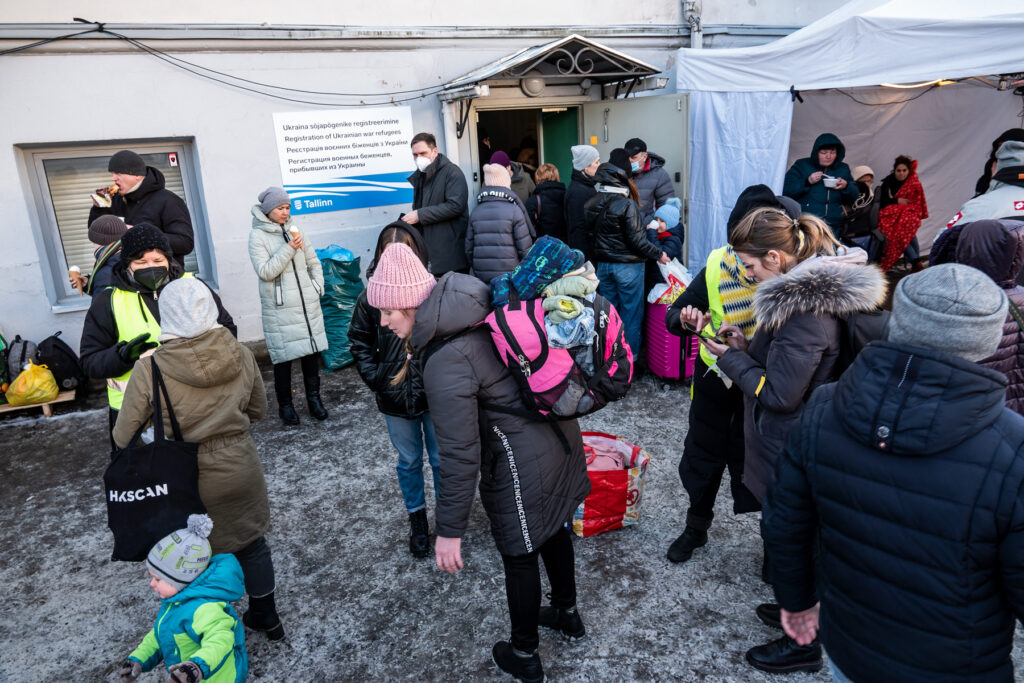
26 February 2025 – Estonia provides a defence industry support catalogue to Ukraine
During a visit to Ukraine, the secretary general of the Estonian defence ministry, Kaimo Kuusk, delivered a catalogue of 500 defence-related products and services from nearly 100 Estonian companies. Ukraine can select from these offerings based on its military needs.
The initiative, overseen by the Estonian Centre for Defence Investments, ensures that participating businesses meet strict criteria, including production within Estonia.
During his visit, Kuusk met with Ukraine’s security and defence officials to discuss military cooperation and reaffirmed that peace negotiations must be on Ukraine’s terms. He also underscored the importance of NATO membership for Ukraine’s long-term security.
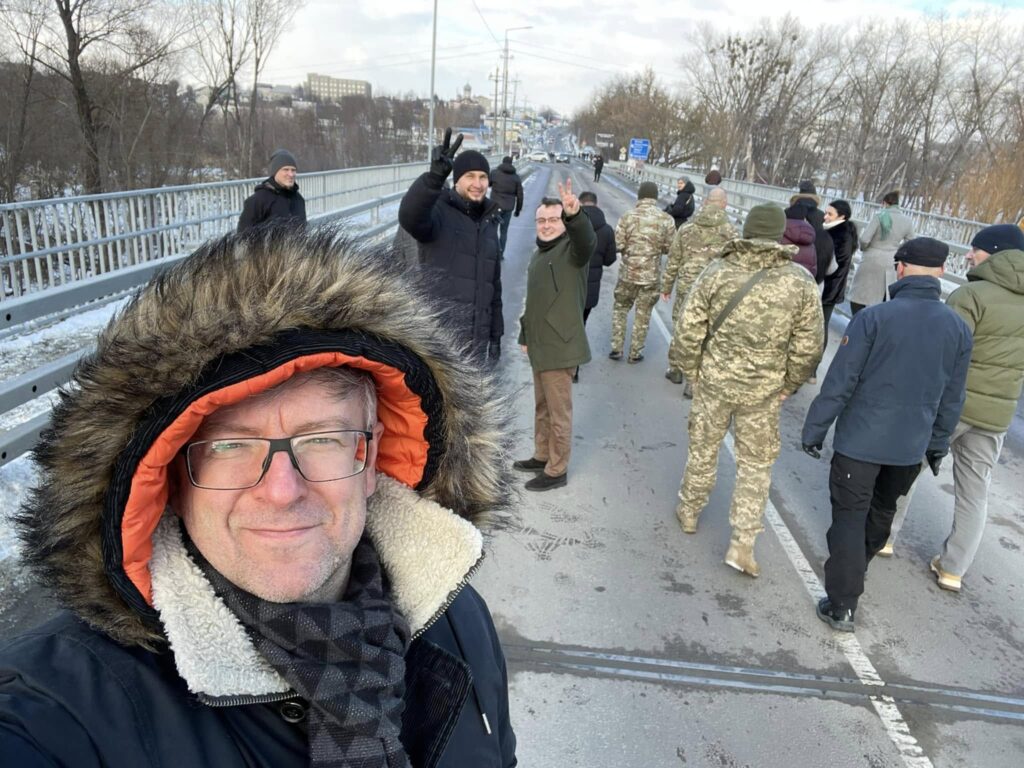
26 February 2025 – Eek & Mutso’s “Red Lines” wins landscape architecture competition for the Ukraine Garden in Tallinn
Tallinn’s competition for the Ukraine Garden in Lembitu Park has been won by architecture firm Eek & Mutso with their design “Red Lines”. The team – Margit Mutso, Inke-Brett Eek, Noa Smolin, Oleksandr Nenenenko and Madis Eek – proposed a design that revives the trajectory of the former Õuna Street, destroyed in the Second World War, drawing a connection between Tallinn’s history and Ukraine’s present.
The Ukraine Garden aims to symbolise Tallinn’s solidarity with Ukraine while providing a reflective space within the city. The competition was organised by Tallinn’s city government, in cooperation with Estonia’s architectural and landscape associations.
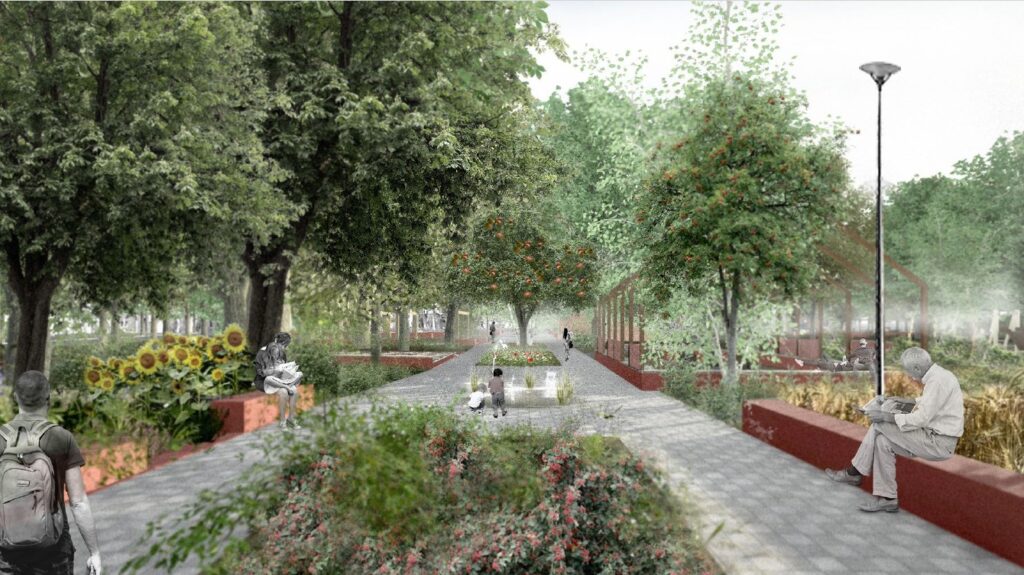
26 February 2025 – Nordic and Baltic foreign ministers: Time for Europe to fully step up in Ukraine
In an opinion piece published in the Financial Times on the third anniversary of Russia’s full-scale invasion of Ukraine, Estonian foreign minister Margus Tsahkna and his Nordic and Baltic colleagues called on Europe to increase its support for Ukraine.
“Together, the Nordic-Baltic countries are the world’s second largest military donor to Ukraine after the United States. We are proud to stand fully and firmly behind our Ukrainian friends in defending freedom and security in Europe. How can it be that eight small countries in Northern Europe are leading in support for Ukraine?” the foreign ministers write. “In this existential moment, we are ready and willing to do more. But at a time, when the future of European security hangs in the balance, now is the time for the whole of Europe to step up.”
The joint article by the foreign ministers of Estonia, Latvia, Lithuania, Finland, Sweden, Norway, Denmark and Iceland underlines that it’s important to help Ukraine as much as possible to allow the country to make peace from a position of strength. “We owe it to Ukraine that there is no fourth anniversary of the full-scale war. This requires all of Europe to step up.”
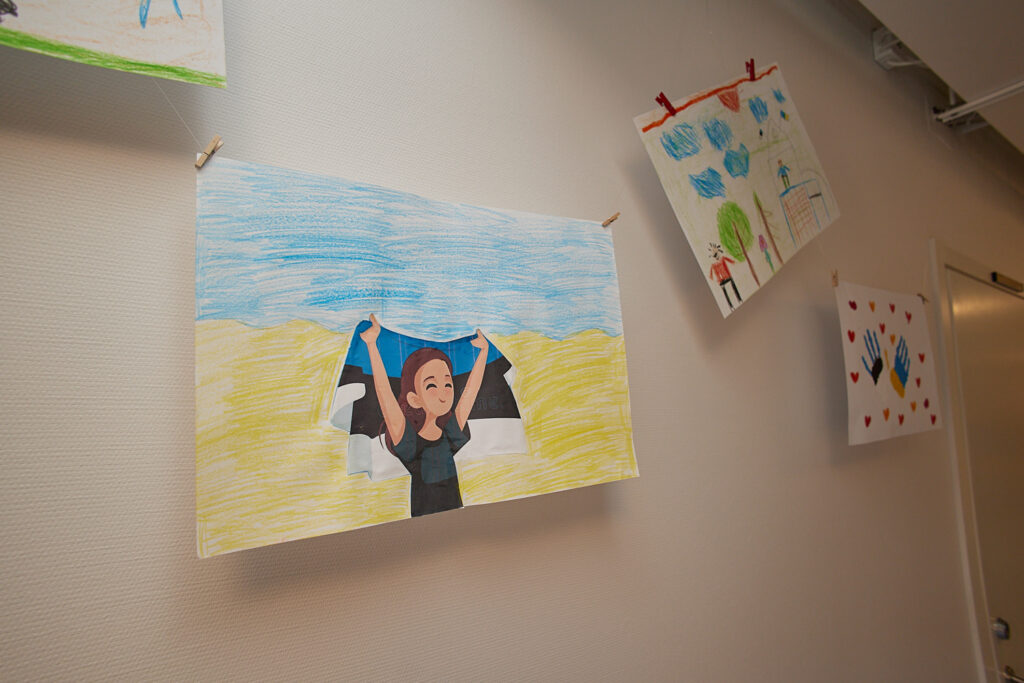
26 February 2025 – Estonian and French defence ministers discuss the future of European and Ukrainian security in Tallinn
The Estonian defence minister, Hanno Pevkur, hosted his French counterpart Sébastien Lecornu in Tallinn on the Estonian Independence Day, discussing defence cooperation, the security situation in Europe and Ukraine, and the upcoming NATO Summit in The Hague.
“Instead of discussing peace initiatives, Europe must provide Ukraine with significantly stronger support – here and now. Estonia has pledged military aid equivalent to 0.25% of its GDP, and we are increasing our support, delivering 10,000 artillery shells this year,” Pevkur said in a statement, adding that the Baltic states and Nordic countries have committed to equipping and training a Ukrainian brigade.
Since 2022, France has maintained a permanent company-sized unit in Estonia. Since 2023, the French Armed Forces have been providing training for the Estonian Defence League, including participation in major territorial defence exercises in 2023 and 2024. France is also Estonia’s largest partner in defence procurements. At the end of January, the Estonian Defence Forces received the first Caesar MK1 155mm self-propelled howitzers, which will enhance the Estonian Division’s capabilities.
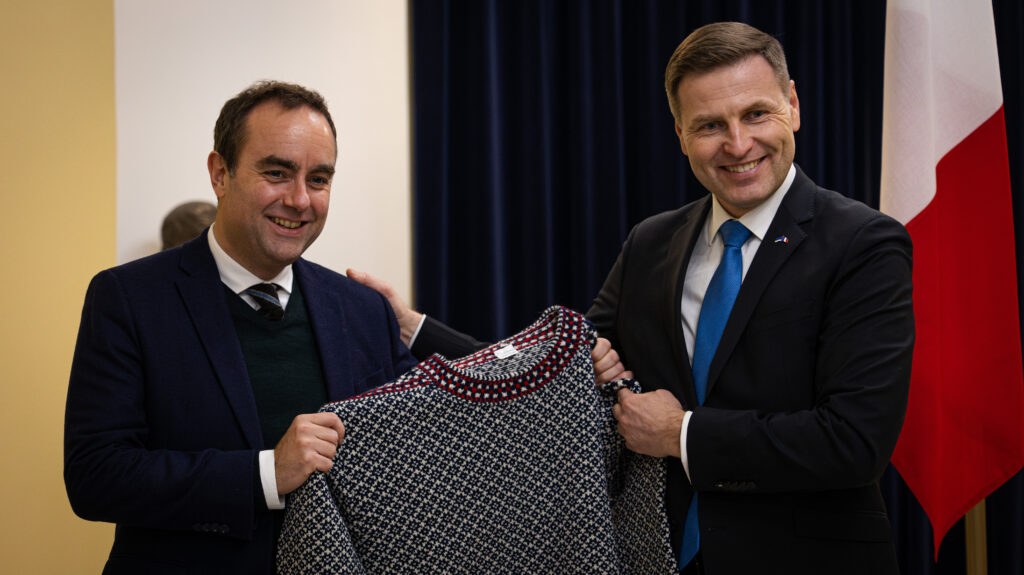
16 February 2025 – Estonia calls for not making negotiations easy for Putin
At the NATO defence ministers’ meeting held in Brussels, discussions focused on strengthening allied defence capabilities and increasing defence spending to bolster NATO’s Deterrence and Defence posture ahead of the NATO Summit in The Hague this June. Additionally, a separate session of the NATO-Ukraine Council was held.
“The root cause of Russia’s war of aggression in Ukraine is clear – Putin’s ambition to restore the Russian Empire. It was Putin’s decision to attack Ukraine. Therefore, the current situation is not just about Ukraine but concerns all NATO allies. Any negotiations will have clear consequences for Europe, which is why Europe must have a seat at the negotiation table. However, before we get to that point, we need to ensure Ukraine has a strong position on the battlefield, and we must not hand Russia any advantage before negotiations even begin. For us, Ukraine’s strongest security guarantee remains membership in both the European Union and NATO, and Estonia will never recognise changing borders by force,” the Estonian defence minister, Hanno Pevkur, said.
“To enhance NATO’s own defence capabilities, our stance remains unchanged – we have been advocating for increased defence spending for years and have also acted on it. Yesterday and today, we received a clear message from the US – the time to act is now, Europe must take greater responsibility for its own security. Today, we have a clear framework in place – our defence plans and capability targets, which not only confirm the need to increase defence spending but also demonstrate the scale of this necessity.”
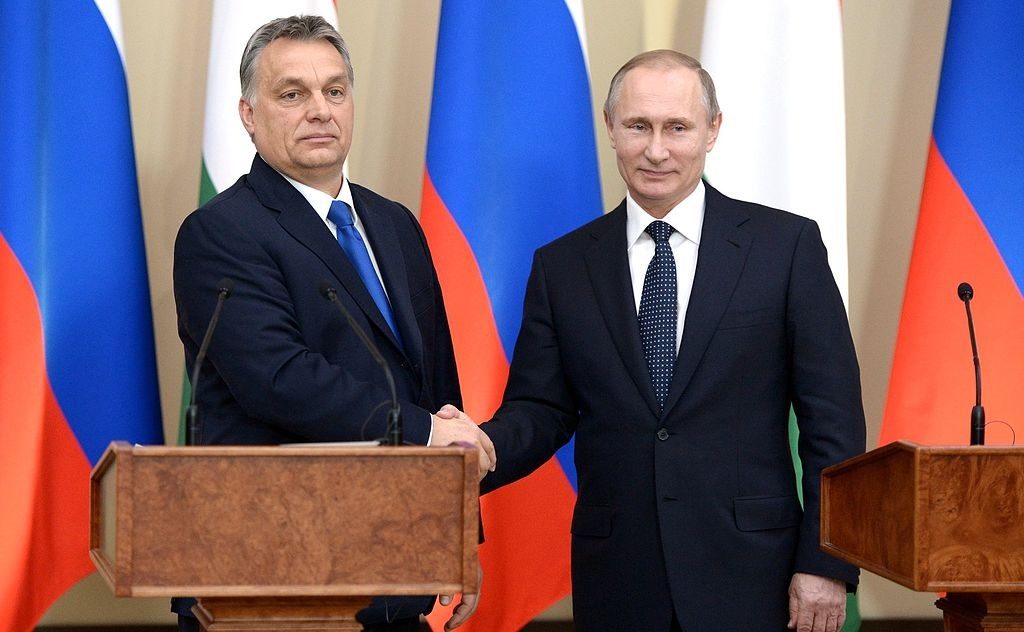
20 January 2025 – Estonia sends a mobile demining camp to Ukraine
A nine-trailer mobile demining camp has embarked on the journey from Estonia to Ukraine. The camp, destined for a humanitarian demining unit in the Zhytomyr Region, was a collaborative project between the Estonian Centre for International Development and the Estonian Rescue Association.
Over the past three years, Ukraine has become the most mined country in the world. Over 250,000 square kilometres or a third of Ukraine’s territory is estimated to be mined, threatening civilian lives, hindering economic development, especially in agriculture, and slowing down reconstruction.
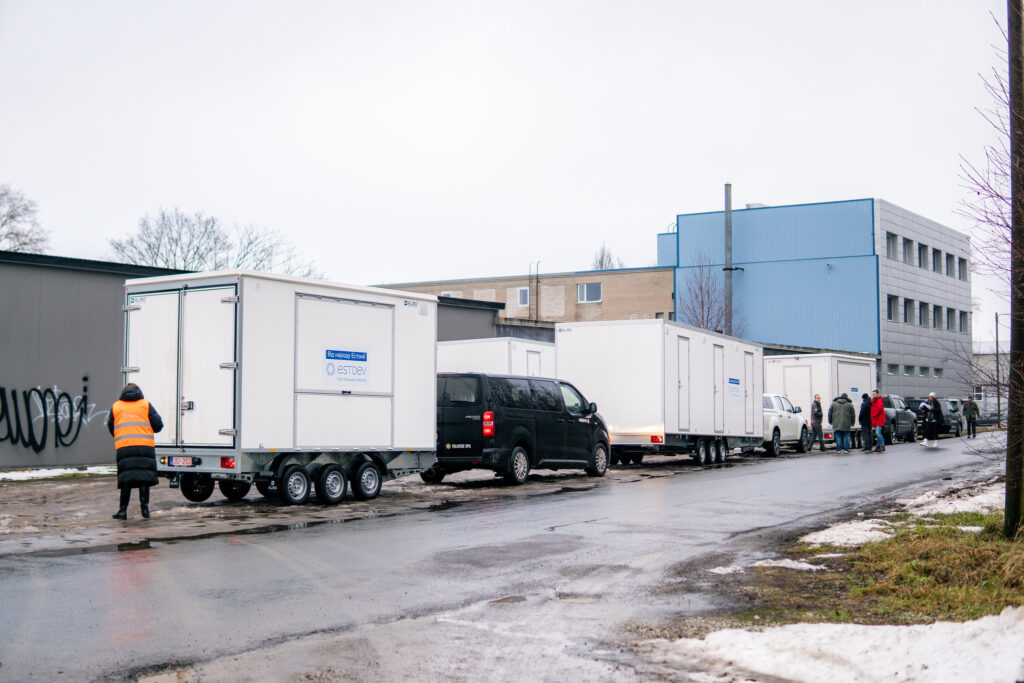
14 January 2025 – Estonia opens group homes for foster families in Zhytomyr
Estonia today opened two family-style small group homes for displaced Ukrainian foster families. The first home was given to Ruslana, an art teacher, and her family of six. The family’s eldest daughter, Kateryna, is pursuing a degree in social work. The other children are Makar (9), Lidiia (11), Taisiia (12) and Stanislav (14).
Oksana and Serhii will live in the second home with their seven children: Mykhailo (19), Hanna (17), Khrystyna (14), Valentyna (12), Daria (15), Oleksandra (13) and their biological son, Serhii (19).
At least 80 foster family homes have been affected by the war, with 40 families in critical need of new housing. A local foundation launched the “Room for Childhood” initiative to engage international donors in constructing new family-style small group homes. As part of this initiative, Estonia provided €370,000 to fund the construction of one house, which was completed in June 2024.
27 December 2024 – an Estonian-led platform raises €200 million for Ukraine’s cyber resilience
Marking its one-year anniversary on 20 December, the Tallinn Mechanism – a cyber support platform created by Estonia and Ukraine’s allies – has raised €200 million to bolster Ukraine’s cyber resilience. This initiative addresses Ukraine’s state-wide cyber needs through donor contributions and technical assistance.
Launched on 23 December 2023 with partners including Ukraine, the Netherlands, Canada, and the US, the initiative operates via offices in Kyiv, Warsaw, and a donor coordination group. NATO and the EU act as observers, showcasing international unity in supporting Ukraine’s civilian cyber defence.
1 October 2024 – Estonia helps Ukraine create an e-residency programme
The Estonian e-Governance Academy, through the EU-supported projects, has contributed to the development and launch of uResidency – a Ukrainian e-residency programme that will help Ukraine attract foreign investment and bring the country closer to the EU digital market. All uResidency services are available remotely.
The uResidency programme is part of the EU’s broader efforts to support Ukraine’s European integration and digital transformation. By supporting initiatives such as uResidency, the EU is helping Ukraine to align its economic and regulatory framework with European standards, an essential step towards EU accession.
The uResidency programme will help foreign entrepreneurs, especially small business owners from Asia and Europe, to register and run their own businesses on favourable terms using convenient electronic tools. It will focus on IT professionals and specialists providing online services in the creative industries. At the same time, Ukraine will attract additional investment, replenish the state budget and stimulate the banking sector by expanding digital products to foreign markets.

24 September 2024 – Estonia allocates nearly €514,000 in winterisation aid to Ukraine
The Estonian foreign ministry is allocating €513,660 to its strategic humanitarian aid partners, NGO Mondo and the Estonian Refugee Council. The aid will help Ukrainians prepare for winter at a time when Russia has destroyed around 80% of Ukraine’s energy capacity.
Mondo is using €235,921 to repair and insulate a shelter for internally displaced people in Kharkiv, to provide heating equipment, solid fuel and generators to 17 shelters in Kharkiv and Dnipropetrovsk oblasts, and to provide medicines, nappies and baby formula to a shelter for Ukrainian refugees in Georgia.
The €277,739 allocated to the Estonian Refugee Council will be used to provide financial assistance to civilians and internally displaced people in Ukraine, to cover winter maintenance costs for livestock farmers and to cover winter costs for Ukrainian refugees in Georgia.
11 September 2024 – Lessons from Ukraine show what Estonia needs to focus on in civil protection
A delegation from the Estonian Rescue Board and the Estonian Rescue Association visited Ukraine for a week to learn the lessons of civil protection, mine clearance and rescue work that Ukraine has gained in fighting a full-scale war with Russia.
“The tragedy that Ukraine has to endure every day has taught them invaluable lessons that we need to take seriously when protecting our population,” Martin Lambing, the deputy director general of the Estonian Rescue Board, said in a statement, adding that the Ukrainian experience shows that the most important thing during airstrikes is for people to know what to do in the event of an attack, to take shelter and to seek information.
“People can let their guard down and are often outdoors during attacks, with no protection from shockwaves and shrapnel. This is why it is important to take all danger warnings seriously and get to a place that will provide protection from an attack. Shelters are common, but they can be very different. Simpler facilities converted into shelters can be found in homes, schools, hospitals and hotels. Similar to Estonia’s plans, Ukraine has introduced requirements for new homes and existing basements.
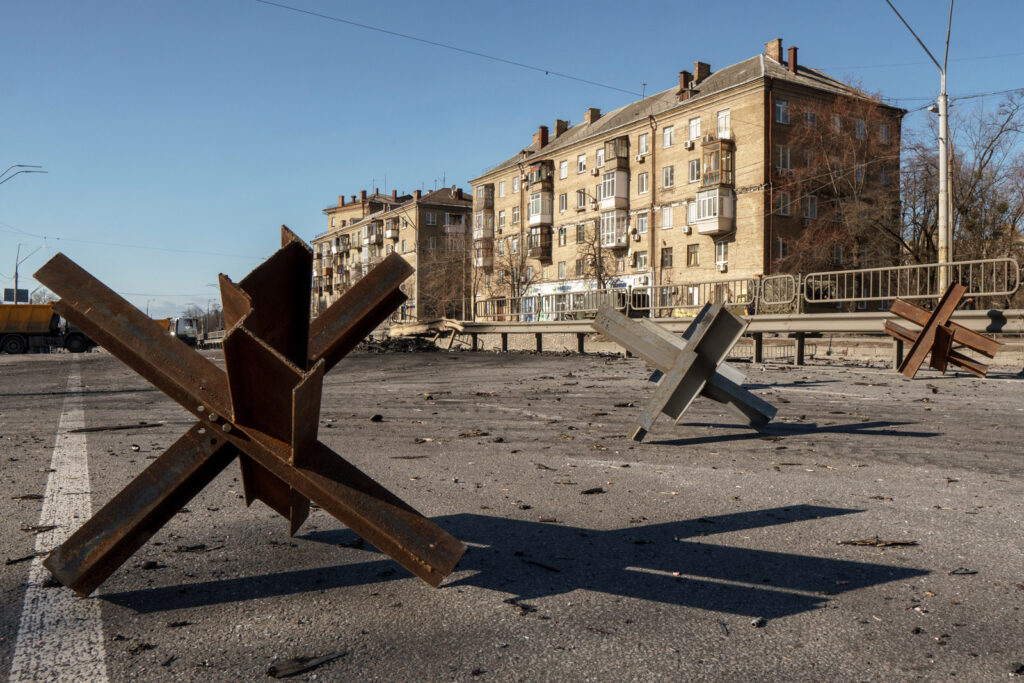
28 June 2024 – Estonia and Ukraine sign a security cooperation agreement
On 27 June, Estonia and Ukraine signed an agreement on security cooperation and long-term support between the two countries. The agreement strengthens security cooperation between Estonia and Ukraine and reaffirms Estonia’s continued long-term and comprehensive support for Ukraine.
According to a statement by the Estonian government, the agreement is a political declaration of intent outlining objectives and measures that will contribute to Ukraine’s victory. The content of the agreement between Estonia and Ukraine focuses mainly on defence and security cooperation, but also addresses broader issues such as Ukraine’s integration into the EU and NATO, continued sanctions against Russia, compensation for damage caused to Ukraine as a result of the aggression, development cooperation with Ukraine, and reconstruction and cooperation in the field of civil protection.
Estonia will not take on any new financial obligations under the agreement. The agreement is based on previous decisions of the Estonian government to provide comprehensive assistance to Ukraine. The agreement will be valid for ten years.
30 May 2024 – Estonia wants Europe to train 100,000 Ukrainian fighters
“By the end of the summer, Europeans will have trained up to 60,000 Ukrainian fighters, but the readiness of the European Union Military Assistance Mission must increase to 100,000 to meet Ukraine’s needs,” the Estonian defence minister, Hanno Pevkur, said at the meeting of the European Union defence ministers held in Brussels, Belgium.
“In addition, the main focus remains on ammunition – over 50% of the targeted one million shells have already been sent to Ukraine, and additional supplies have come from the Czech initiative, but this need will not diminish in the near future. When [the Russian dictator, Vladimir] Putin talks about negotiations, it is a sign that we need to step up and provide Ukraine with the assistance it most needs – ammunition and air defence.”
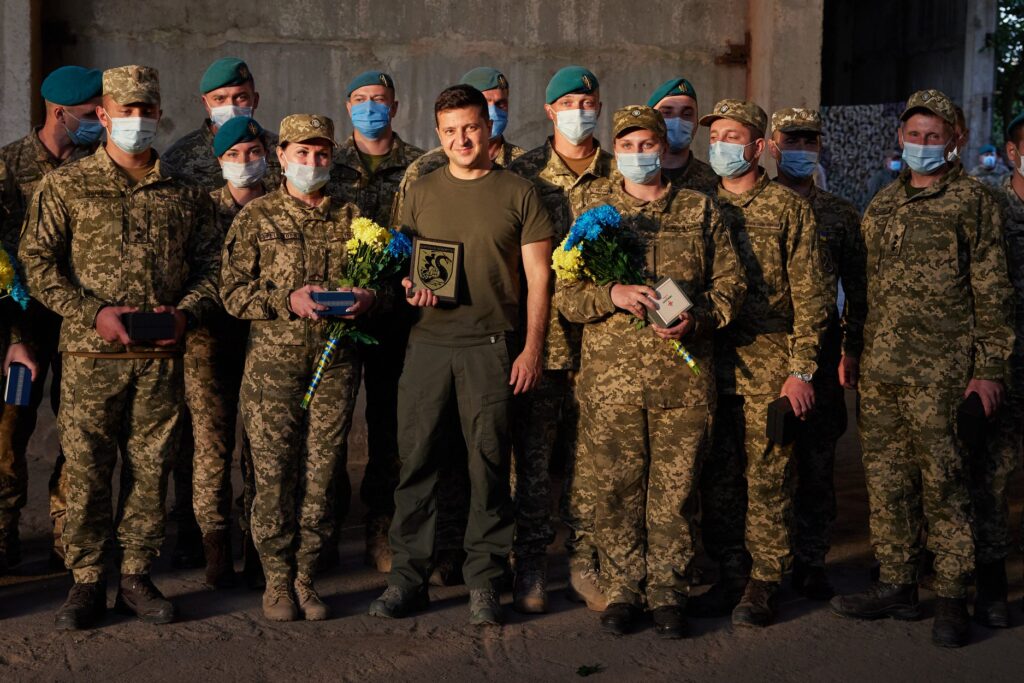
27 April 2024 – Estonia: allies need to contribute to Ukraine consistently
At a virtual meeting of the Ukraine Defence Contact Group, also known as the Ramstein group, countries providing military aid to Ukraine received an overview of the developments on the battlefield, Ukraine’s most critical capability needs, the work of capability coalitions, and new contributions from allies. The permanent secretary of the Estonian defence ministry, Kusti Salm, said in the meeting that allies should contribute to Ukraine’s military assistance consistently and predictably.
“Ukraine’s struggle for freedom can only be successful if allies continue to support the Ukrainian people. For example, the patrol boats donated by Estonia in cooperation with Denmark, EML Risto and EML Roland, have arrived in Ukraine. They will play their part in Ukraine’s path to victory, since one crucial part of it is the ability of Ukrainians to keep the maritime routes open for grain exports and to defend against attacks originating from the Black Sea,” Salm said.
“Estonia has decided to allocate 0.25% of our GDP to support Ukraine for the next four years. If every member of the Ramstein group did the same, Ukraine could win the war within the next year or two. At the meeting, we also reiterated our call to all Ramstein group countries to contribute to Ukraine’s military assistance consistently and predictably.”
3 April 2024 – The Ukrainian prime minister visits Estonia
Denys Shmyhal, the Ukrainian prime minister, paid a visit to Estonia today, where he gave a speech at Tallinn University of Technology and met with the country’s president, Alar Karis and prime minister, Kaja Kallas.
The two prime ministers issued a joint statement that underscores the “deep partnership” between the two nations, “rooted in shared values and a strong commitment to Ukraine’s independence, sovereignty and territorial integrity”. The statement condemns Russia’s military aggression against Ukraine and calls for the immediate withdrawal of Russian forces. It reaffirms support for Ukraine’s right to self-defence and rejects Russia’s illegal occupation of Ukrainian territories.
Estonia pledges ongoing military assistance and collaboration in defence industries. The statement also advocates for Ukraine’s NATO membership and supports its integration with the European Union.
Both countries emphasise cooperation in various fields such as education, culture, economy, cybersecurity and health care. Additionally, they highlight efforts for Ukraine’s reconstruction and recovery post-conflict, with Estonia leading in implementing concrete projects. The statement concludes with a commitment to closer coordination and continued collaboration for the mutual benefit of both nations.
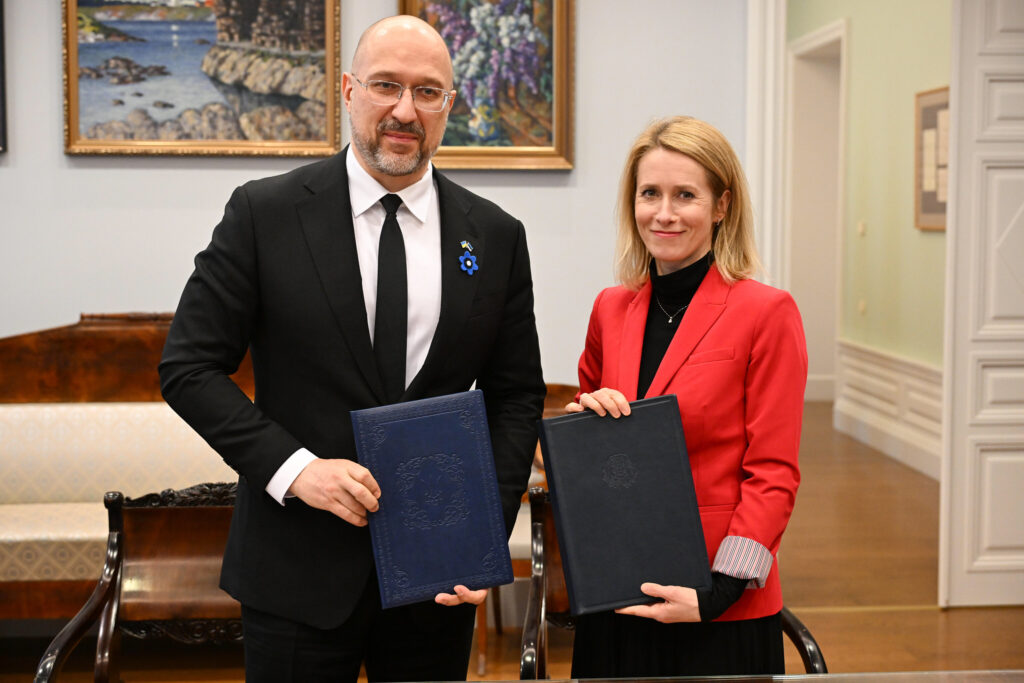
28 March 2024 – Estonia opens an honorary consulate in Ukraine
Estonia has opened a new honorary consulate in Ukraine, in Zhytomyr Oblast, to strengthen cooperation between the two countries. The honorary consul at the consulate is Mykola Sichenko. In addition to assisting Estonian citizens, the honorary consulate will promote trade and business relations between Ukraine and Estonia. It is the first Estonian honorary consulate to be opened in Ukraine since the annexation of Crimea by Russia.
21 March 2024 – Estonia to send Ukraine artillery ammunition and other aid
The Estonian defence minister, Hanno Pevkur, announced at a meeting with his Ukrainian counterpart Rustem Umarov that Estonia would send the next package of military aid to Ukraine, worth €20 million. The latest package includes artillery ammunition, which is urgently needed to counter Russian aggression. The package includes recoilless anti-tank guns, explosives, various types of artillery ammunition, gas masks, sniper equipment, small calibre ammunition and more.
27 February 2024 – Survey: 42% of Estonians confident in Ukraine’s victory
Forty-two per cent of Estonians believe that Ukraine will win the war against Russia, according to the results of a survey commissioned by the Institute for the Study of Societal Issues and carried out by the pollster Norstat, BNS reported.
Among ethnic Estonians, 42 per cent are optimistic about Ukraine’s victory, 26 per cent see a compromise between Russia and Ukraine, and nine per cent predict a Russian victory. Among non-ethnic Estonians, nine per cent hope for Ukraine’s success, 51 per cent expect a compromise and 18 per cent envision a Russian victory.

27 February 2024 – A record-breaking number of asylum seekers in Estonia last year
In 2023, more than 12,766 people applied for protection in Estonia, the majority of whom were war refugees from Ukraine, BNS reported. A total of 8,782 Ukrainian war refugees applied for temporary protection. There were 3,984 applicants for international protection, the vast majority of whom, 3,776 people, were also citizens of Ukraine.
The second largest group of applicants for international protection were citizens of Russia with 73 applications, followed by citizens of Belarus with 18 applications. They were joined in the top five by citizens of Afghanistan and Georgia, with 16 and 13 applications respectively.
In addition to examining new applications for protection, the Police and Border Guard Service also extended the protection status of war refugees who had been granted temporary protection in the previous year. A total of 33,215 persons applied for an extension of their temporary protection status.
Since February 2002, a total of 50,654 persons have received temporary protection in Estonia. Temporary protection is a form of international protection. In 2022, a total of 2,940 persons applied for international protection in Estonia. Before the full-scale war in Ukraine in 2021, this number was only 80.
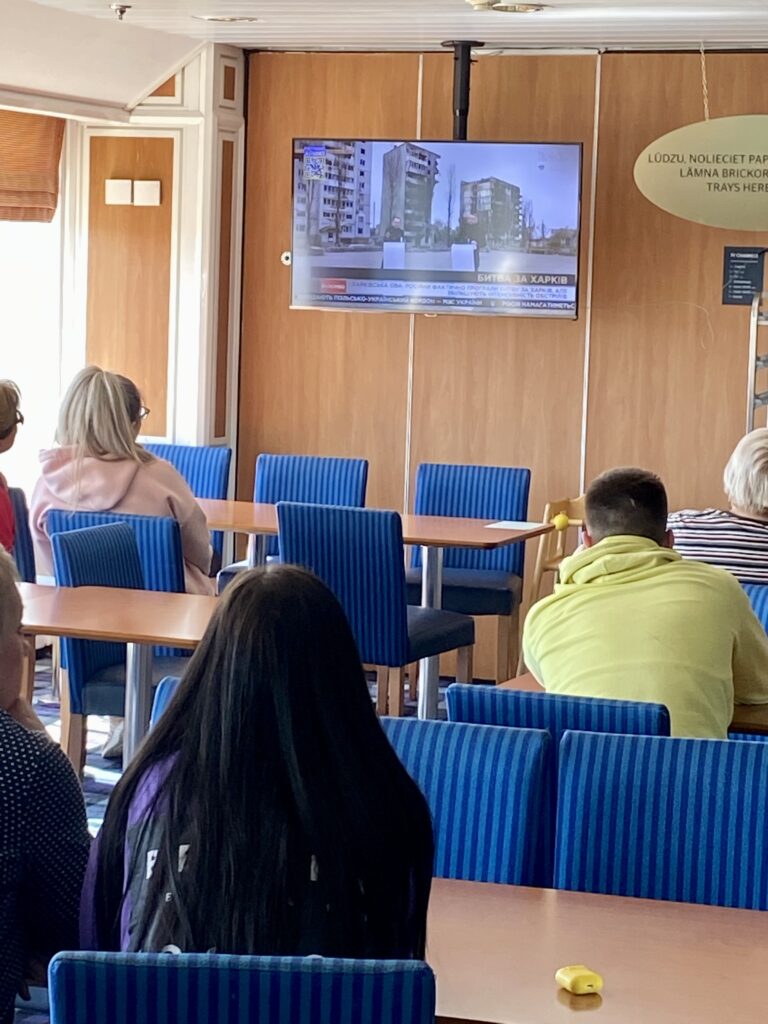
27 February 2024 – Estonian MEP: Western countries’ intervention in war in Ukraine does not seem realistic
Commenting on French President Emmanuel Macron’s statement about the possible deployment of Western troops to Ukraine, Estonian MEP and former defence chief Riho Terras said that this does not seem realistic at the moment, BNS reported. “The direct intervention of European countries in the war is not foreseen today. Macron’s comment was immediately rejected by other European Union member states and it can be assumed that for the French president it was more of a political move to stand out next to German Chancellor [Olaf] Scholz,” Terras told BNS.
Terras pointed out that at the end of last year, France’s aid to Ukraine was just over €3 billion, while Germany had spent almost €30 billion. “Making populist statements from the back seat, where France has been for the last two years in terms of aid to Ukraine, is not the most dignified thing to do. At the same time, it is a well-established Macron signature to get the ball rolling, which his own administration, the foreign ministry and other countries are forced to catch,” the MEP said.
French President Emmanuel Macron said on 26 February that even sending Western troops to fight the Russian invasion should not be ruled out.
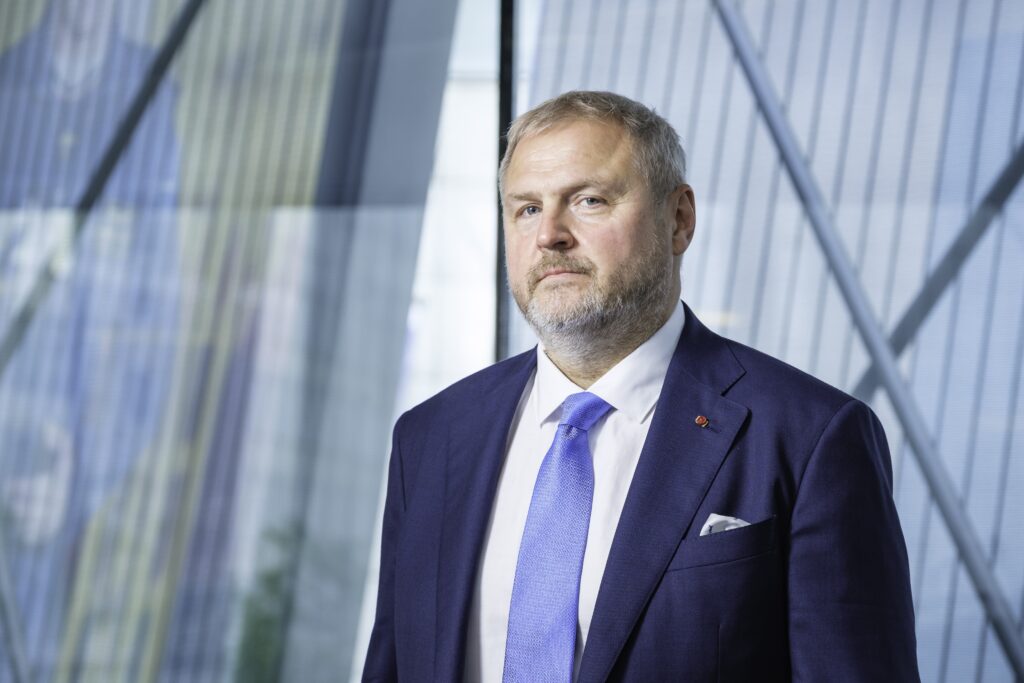
27 February 2024 – EKRE Chairman: Estonia must not send its soldiers to Ukraine
The possibility of Estonia sending its soldiers to Ukraine must be ruled out, said the leader of the Estonian Conservative People’s Party, Martin Helme, according to BNS. “Estonia sending its soldiers to Ukraine must be completely and unequivocally ruled out. To be bombarded all day long with soporific discussions about if or how or when or with whom is appalling and truly existentially dangerous,” Helme said.
“If our government, which of course is in reality the local puppet of the globalists, is supposedly leading Estonia into war with Russia over Ukraine, then they are leading Estonia into certain, inevitable destruction as a nation and a country. The very idea that we could send Estonian boys to die in the massacre of two great Slavic nations, with the irresponsible and insane slogan that this is somehow our war too, shows the total inability of those who tell such a story to understand what is at stake,” the party leader said.
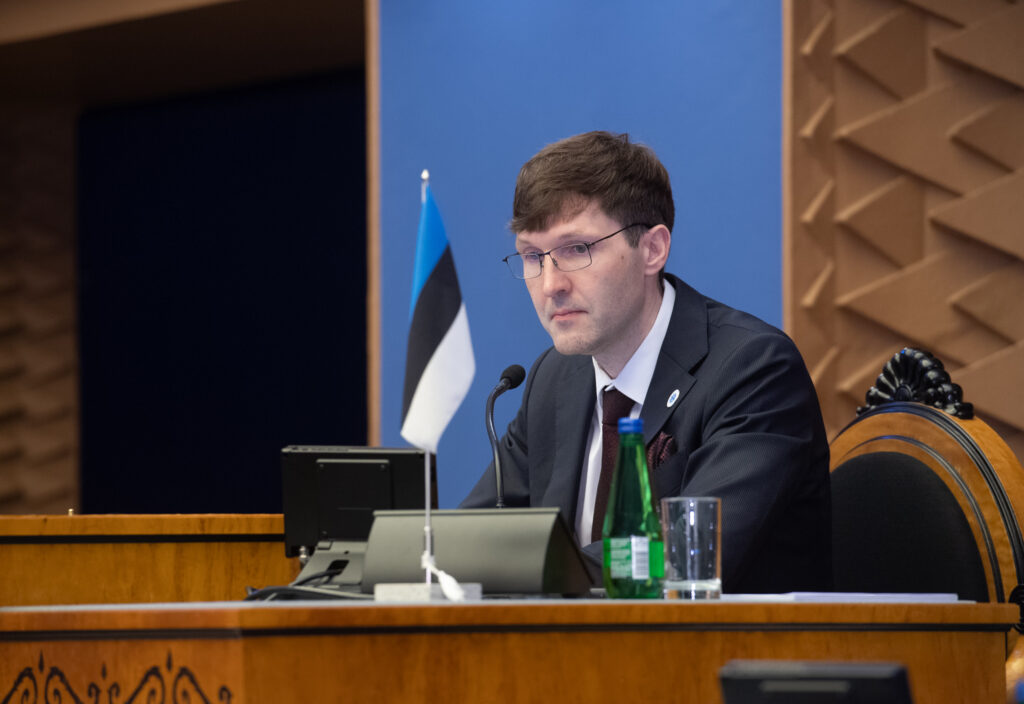
17 February 2024 – Estonia and the US to use confiscated profits to help Ukraine
Estonia and the US have signed a cooperation agreement to help rebuild Ukraine’s electricity infrastructure with confiscated proceeds of crime. The agreement will provide nearly EUR500,000 for the reconstruction of Ukraine’s energy infrastructure. The project will be managed by the Estonian Centre for International Development.
In March 2023, the US Department of Justice confiscated USD484,969 in criminal proceeds related to a smuggling case involving an attempt to sell a jig grinder to Russia, which is prohibited without a licence because it is used in nuclear proliferation and defence programmes. The grinder did not reach Russia as a result of the investigation. In addition to seizing the grinder, the US authorities, with the active assistance of the Estonian Prosecutor’s Office and the Estonian Tax and Customs Service, charged several individuals and companies that were part of the smuggling network. The crime was discovered in the United States, but involved a company registered in Estonia.
15 February 2024 – Estonia joins drone and demining coalitions to support Ukraine
Estonia has signed declarations of intent to join drone and demining coalitions to support Ukraine. Within these coalitions, contributing nations will cooperate to increase drone capabilities in Ukraine and to seek ways to support Ukraine in both combat and humanitarian demining.
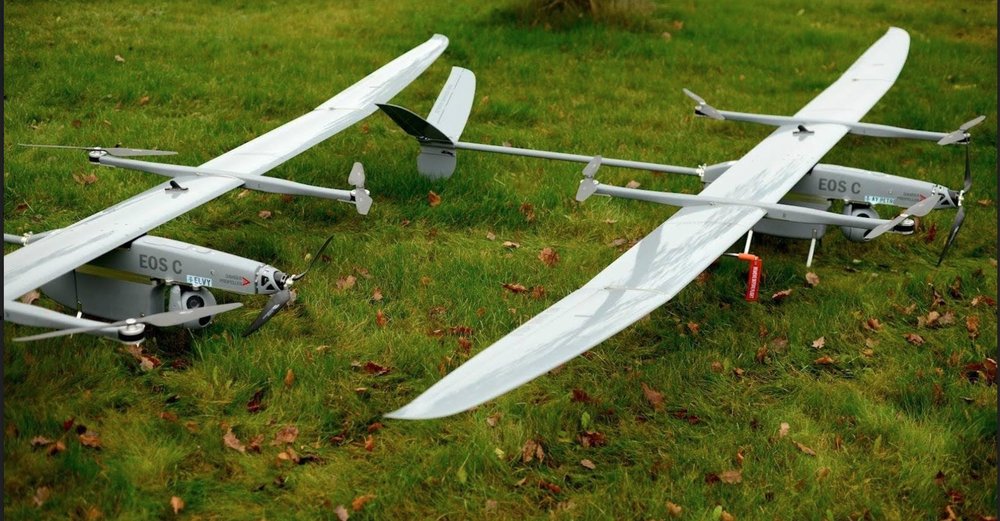
25 January 2024 – Estonian entrepreneurs transport 16 trucks and over 180 drones to Ukraine
Initiated by Estonian entrepreneur Ragnar Sass, hundreds of pick-up trucks have been donated to the Ukrainian armed forces since the Russian invasion in 2022. Today, the 25th delivery – called “freedom convoy” by the donators – arrived in Ukraine. “Today 25th freedom convoy arrived, the largest we have ever transported from Estonia – 16 trucks and over 180 different drones, plus extra equipment worth more than half a million dollars,” Sass wrote in a social media post.
According to the entrepreneur, more than 10,000 donors from over 70 different countries have supported the Estonian effort. “Every Ukrainian soldier we have met is extremely grateful and will never forget this,” Sass wrote.
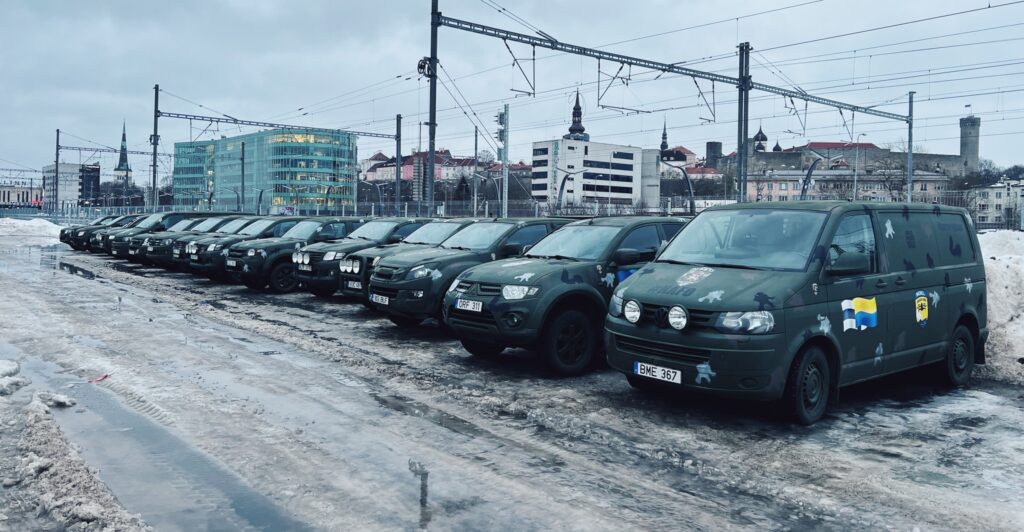
24 January 2024 – Estonia to help train the Ukrainian Armed Forces
Estonia will join the UK-led Operation Interflex, which trains the Ukrainian Armed Forces and is the largest international training programme of its kind for Ukrainian recruits. “Estonia’s contribution will be the 12th nation to support the UK’s programme, which has already provided more than 34,000 Ukrainian recruits with essential frontline combat skills,” the UK’s defence secretary, Grant Shapps, said in a statement.
Other nations contributing to Interflex include the Nordic and Baltic states, as well as Australia and Canada.
Estonian instructors will deliver basic training to soldiers from the Ukrainian Armed Forces in the UK. Estonia will also continue to participate in the European Union Military Assistance Mission in support of Ukraine with specialised courses in Estonia.
23 January 2024 – Estonia returns archaeological artefacts confiscated at the Estonian-Russian border to Ukraine
The Estonian government has returned to Ukraine the archaeological artefacts confiscated at the Luhamaa border crossing in 2018.
In 2018, customs officials at the Luhamaa border crossing discovered archaeological artefacts of very high cultural value hidden in a truck entering from Russia – a total of 274 items, including coins from antiquity and the Middle Ages, as well as gold and silver objects. After the artefacts were secured, assessed and conserved, it was discovered that the rare finds had been looted from various archaeological sites in the eastern and southern parts of Ukraine. Among the returned artefacts are gold objects of the Scythians, who lived in the areas of southern Ukraine in ancient times, medieval horse ornaments, and ancient and medieval coins.
Both Estonia and Ukraine are signatories to the UNESCO Convention prohibiting the illicit import, export and transfer of ownership of cultural property. Under the same convention, in 2016 Estonia returned a Viking-era sword that had been smuggled out of Ukraine and confiscated at the Estonian border.
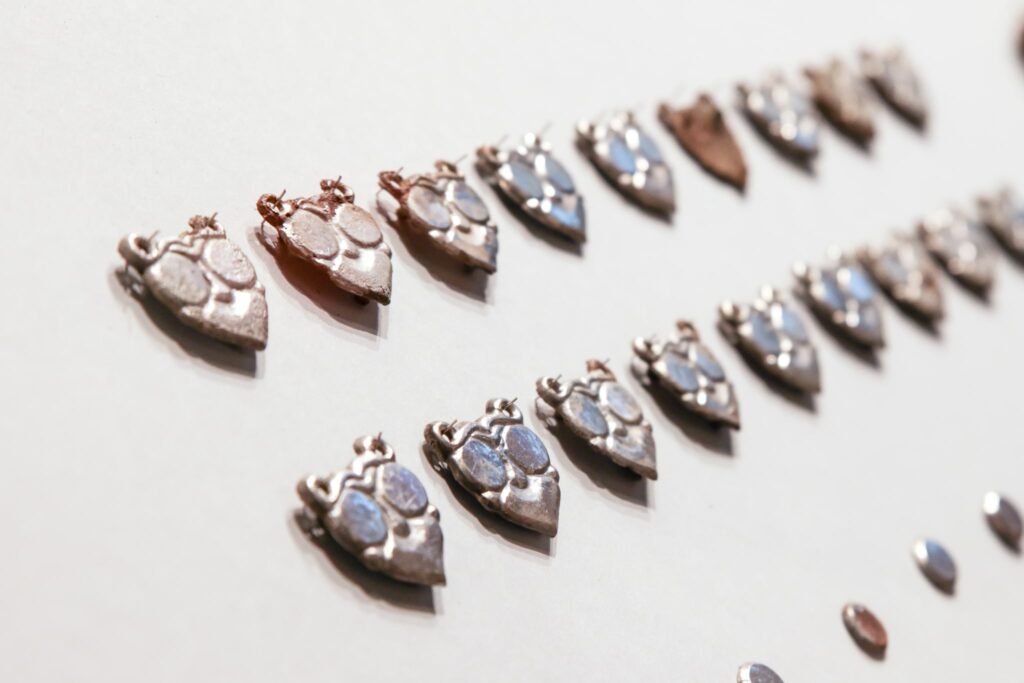
15 January 2024 – Karis awards Ukrainian soldiers Estonia’s highest military honour
The Estonian president, Alar Karis, has awarded the Military Order of the Cross of the Eagle, First Class, to Ukrainian soldiers. “It recognises the supreme courage shown by all those who are fighting the enemy that has invaded Ukraine in defence of their country and the free world,” Karis said in a statement.
The Military Order of the Cross of the Eagle, First Class is the highest military honour awarded by Estonia. This is the first time it has been awarded since the country regained its independence in 1991.
“Wars are won by soldiers, who deserve our utmost respect and gratitude. Hundreds of thousands of Ukrainian soldiers are currently defending their country against Russian aggression. When I say ‘Ukrainian soldiers’, I mean everyone who contributes to the defence of the country: the armed forces, special units, territorial defence, volunteers and those who support the military industry. They are all Ukrainian soldiers,” Karis said.
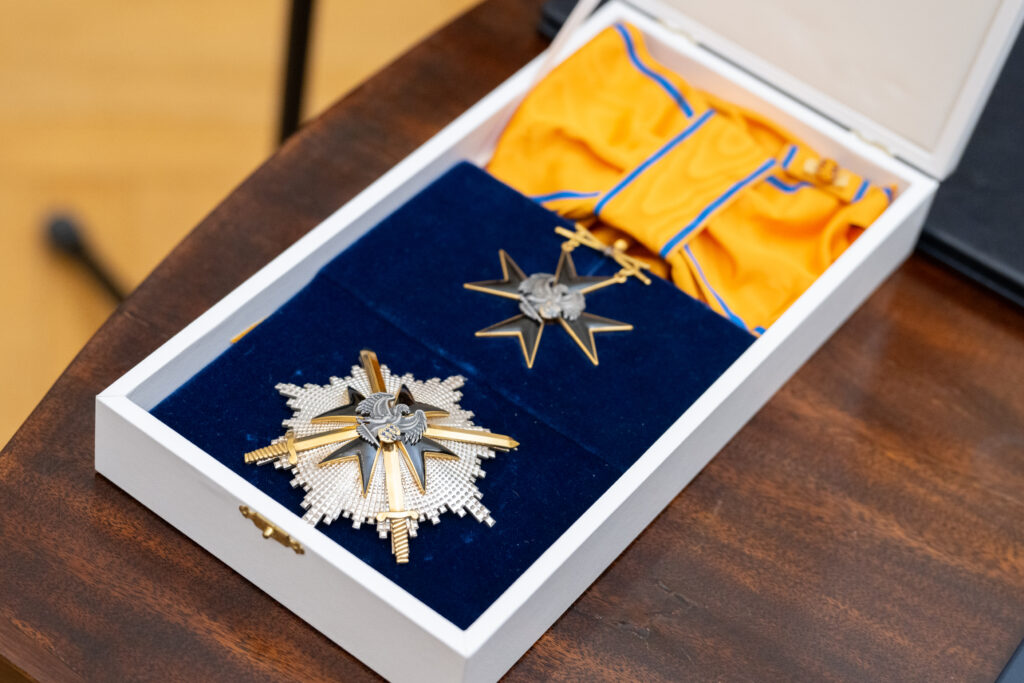
11 January 2024 – Pictures and video: Ukraine’s President Volodymyr Zelensky in Estonia
The Ukrainian president, Volodymyr Zelensky, visited Tallinn, Estonia, on 10-11 January, where he met with the Estonian president Alar Karis, parliament speaker Lauri Hussar, and prime minister Kaja Kallas.
The Ukrainian president also gave a short speech to the Estonian parliament, in which he thanked Estonia and its people for their support of Ukraine.
10 January 2024 – Ukrainian president Volodymyr Zelensky to visit Estonia
The Ukrainian president, Volodymyr Zelenski, has begun a tour of the Baltic states, including a visit to Tallinn on 11 January. Zelensky will meet with his Estonian counterpart, Alar Karis, the speaker of parliament, Lauri Hussar, and the prime minister, Kaja Kallas.
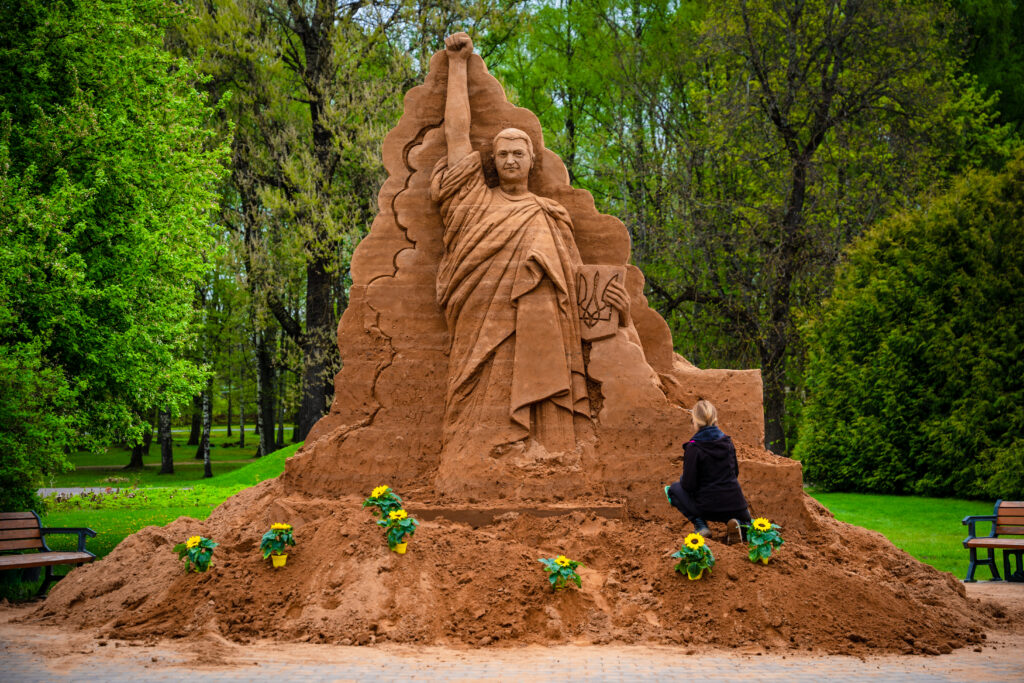
10 January 2024 – Ukrainian police chiefs to be trained in Estonia
The Estonian Centre for International Development and the Estonian Police and Border Guard Board have signed a partnership agreement with the Ukrainian National Police to train several Ukrainian police chiefs in Estonia. The cooperation, which will run until March 2025, aims to increase the accountability of the Ukrainian police and reduce corruption by improving management and organisational structures.
The training will focus on modern management practices, innovative law enforcement methods and overall organisational culture, and the project will translate the necessary training materials and several Estonian police strategy documents into Ukrainian. Estonian law enforcement experts, including heads of prefectures, will participate in the project and share their experiences with their Ukrainian counterparts.
The Estonian Centre for International Development is a government foundation that manages and implements Estonia’s participation in international development cooperation and humanitarian aid projects.
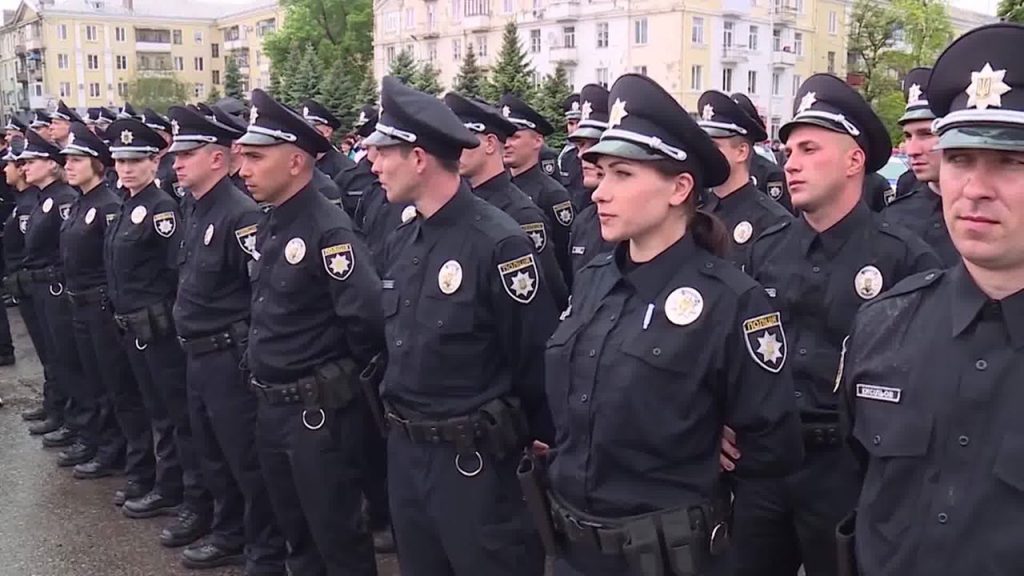
10 January 2024 – Estonia leads a mechanism to provide cyber assistance to Ukraine
The Tallinn Mechanism, created by Estonia and its allies to leverage donor countries’ civilian cyber assistance to Ukraine, was launched on 20 December.
The Tallinn Mechanism systematically responds to Ukraine’s needs and matches donors’ capabilities so that assistance from different countries forms a coherent whole and Ukraine can defend itself in the cyber sphere.
The donors to the Tallinn Mechanism are Estonia, the Netherlands, Canada, Poland, France, Sweden, Germany, Denmark, the United States and the United Kingdom, while NATO and the European Union are observing members. The initiative has an Estonian front office in Kyiv, a Polish back office in Warsaw and a coordination group that unites representatives of Ukraine and all donors, while it is open to new members.
Various technology companies and NGOs from donor countries are involved in the Tallinn Mechanism, which can inform Estonian companies about both urgent and long-term needs. Estonia is allocating €500,000 from its development cooperation budget for 2024 to the initiative.
“Russia’s war of aggression against Ukraine is not only being fought on the conventional battlefield. Russia’s targets include Ukraine’s cyber capabilities, both military and civilian, and therefore it is crucial to support Ukraine’s cyber defence and its ability to restore and develop relevant infrastructure,” the Estonian foreign minister, Margus Tsahkna, said in a statement.
“Unfortunately, it is likely that Russia’s cyber attacks will continue for the foreseeable future. Therefore, through the Tallinn Mechanism, we offer an opportunity to strengthen Ukraine’s systematic preparedness and resilience to cyber-attacks in the long term,” the foreign minister added.
The Tallinn Mechanism works in parallel with the IT Coalition, which deals with Ukraine’s military cyber issues.
14 December 2023 – Estonia to send Ukraine €80 million in aid, including Javelin anti-tank missiles, and proposes new long-term strategy
The Estonian government has approved a proposal by the country’s defence ministry for long-term military assistance to Ukraine and a comprehensive military aid package. The aid includes Javelin anti-tank missiles and vehicles, machine guns, ammunition for light weapons, various vehicles and vessels, and diving equipment.
“This aid package has been put together with the aim of providing maximum benefit to Ukraine without compromising Estonia’s own defence capabilities. We are replacing the necessary stocks,” Estonian defence minister Hanno Pevkur said in a statement.
Analysts at the Estonian defence ministry have also produced a discussion paper on how to make transatlantic security work. The paper includes calculations showing that to ensure a victory for Ukraine and a loss for Russia, it is enough for Ukraine’s supporters to allocate 0.25 per cent of their GDP to Ukraine each year.
Russia is spending more than twice as much on the war in Ukraine as the Ramstein Group, an alliance of 31 NATO member states and 23 other countries supporting Ukraine’s defence – whose combined economies are 30 times larger than Russia’s. For the next four years, Estonia is prepared to spend 0.25 per cent of its GDP on military assistance to Ukraine, using defence budget funds to finance this assistance.
Since 2022, Estonia has provided military assistance to Ukraine worth €500 million, which is about 1.4 per cent of the country’s GDP.
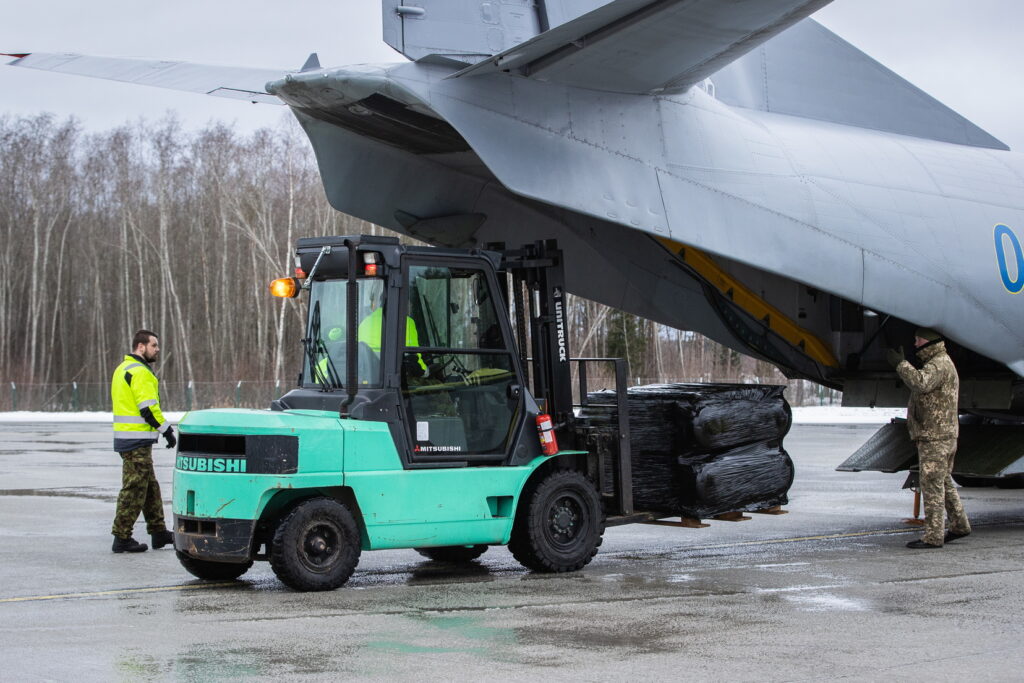
14 December 2023 – Estonia’s Milrem to develop robotic systems with the Ukrainian defence industry
Estonian robotics and autonomous systems developer Milrem Robotics and the Ukrainian Defence Industry, which consolidates national defence industry companies, signed an agreement in Kyiv to start forging next-generation multi-domain robotic defence systems.
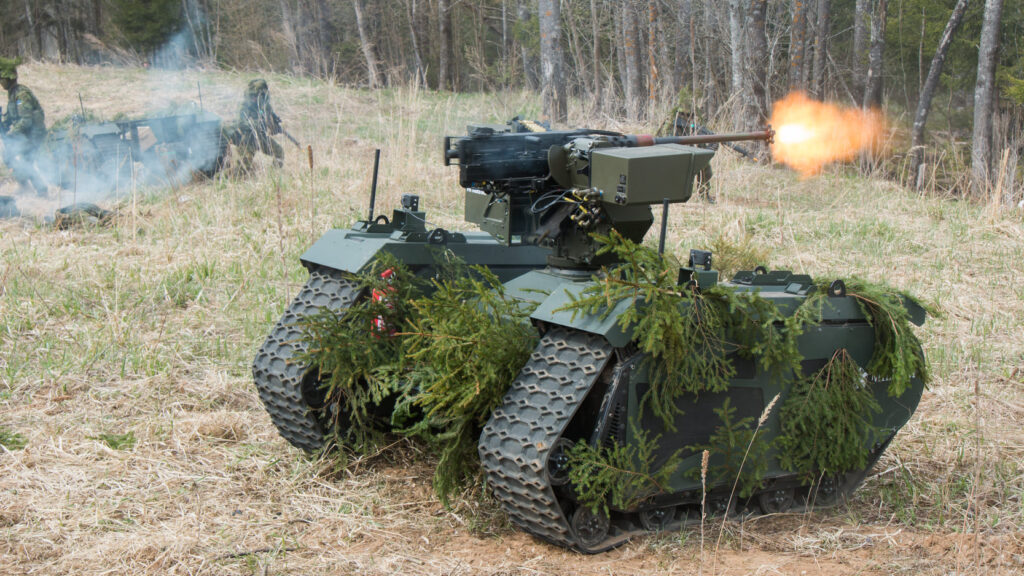
24 November 2023 – Ukrainians in Estonia call for commemoration of Holodomor victims
The Congress of Ukrainians in Estonia invites people to gather at Freedom Square in Tallinn on Saturday afternoon to commemorate the victims of the Holodomor, also known as the Great Ukrainian Famine, BNS reported. Ukrainians around the world commemorate the victims of the Holodomor on the fourth Saturday of November, and the Congress of Ukrainians in Estonia organises annual memorial events to honor the victims of this genocide of the Ukrainian people.
The Congress of Ukrainians in Estonia invites people to come with candles to Freedom Square at 3 PM on 25 November and join the “Light a Candle” action, part of the Ukrainian World Congress’ campaign “We Remember, Unite and Shall Overcome.”
The Holodomor, also known as the Great Ukrainian Famine, was a man-made famine in Soviet Ukraine from 1932 to 1933 that killed millions of Ukrainians.
14 November 2023 – Estonia’s UK embassy raises over €32,000 for Ukraine with a rave
The Estonian embassy in London, the UK, has raised over €32,000 for Ukraine with a charity rave, held at the Fabric nightclub in London.
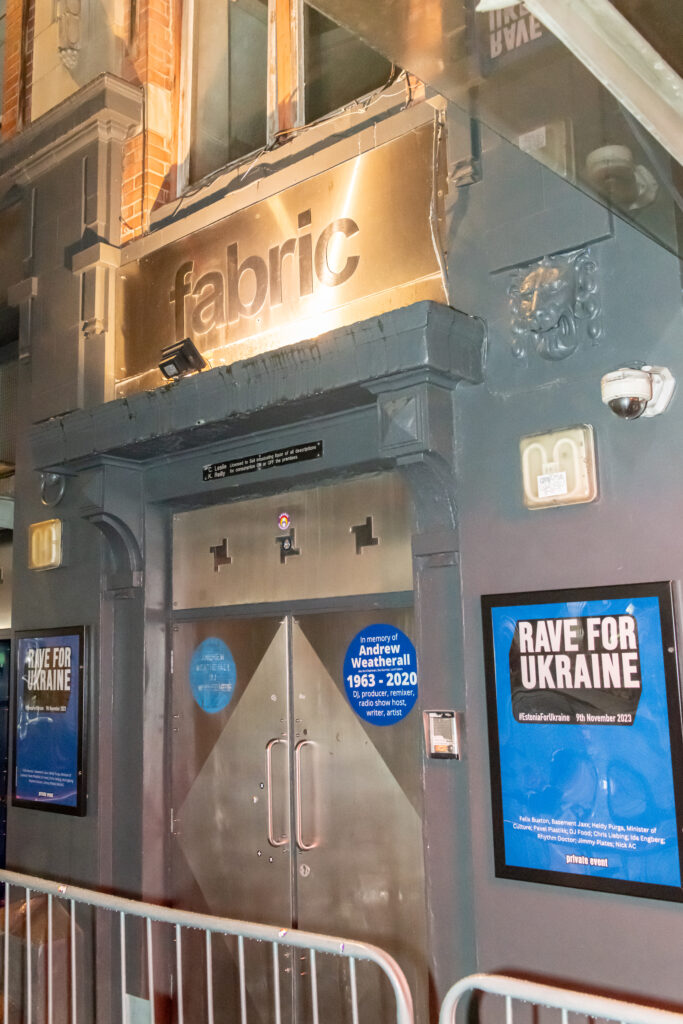
According to the Estonian foreign ministry, the country was represented by its culture minister Heidy Purga, and the rave featured “world famous DJs, such as Felix Buxton of Basement Jaxx, Chris Liebing from Germany, Ida Engberg from Sweden and the Earl of Shaftesbury aka Nick ac. Pavel Plastikk from Ukraine had the closing set in the main room illuminated in the colours of Ukraine.”
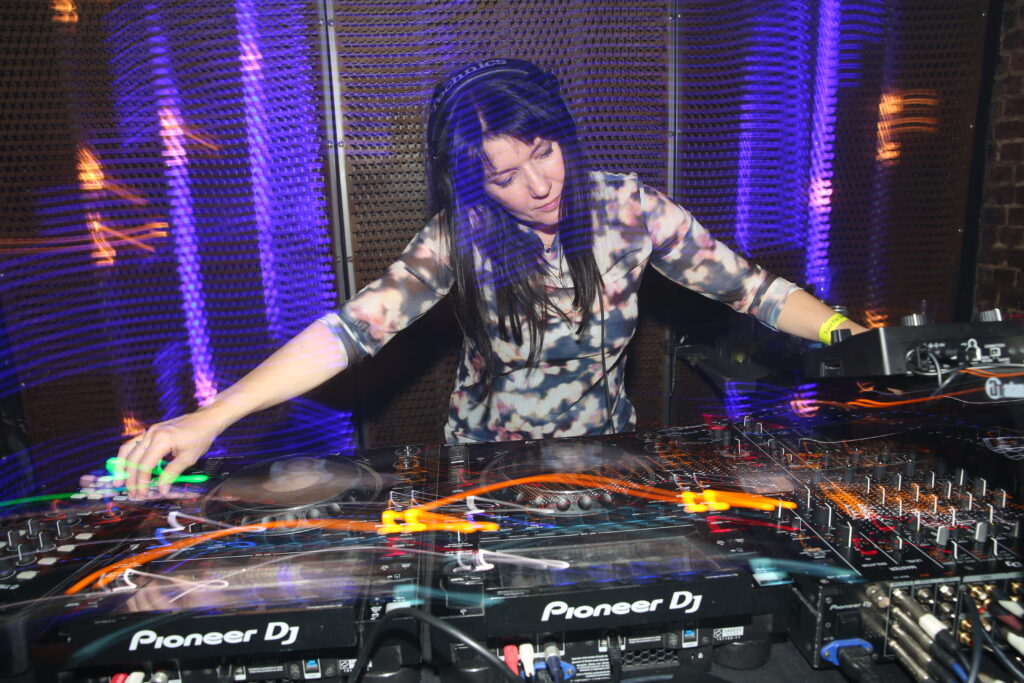
The money will go to the charity organisation Gen.Ukrainian, which organises camps for improving the mental health of children who have suffered in the war.
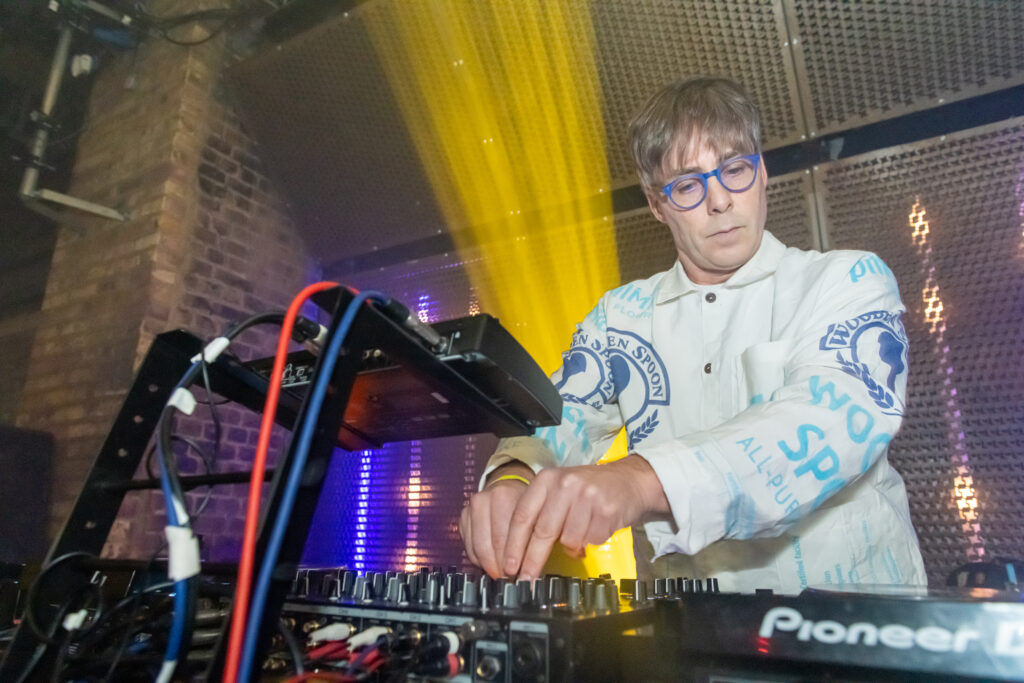
8 November 2023 – Estonian Refugee Council has helped over 252,000 people in Ukraine
The Estonian Refugee Council has provided financial aid to approximately 252,500 people in Ukraine to date, mediating nearly €46 million worth of support. Currently, the Refugee Council is providing support in the Zaporizhzhia, Donetsk, Luhansk, Kharkiv, Kherson and Mykolaiv regions.
The Refugee Council provides financial support to vulnerable households in rural and suburban areas for buying solid fuels such as coal, firewood, briquettes or pellets or paying gas heating bills in order to survive the winter.
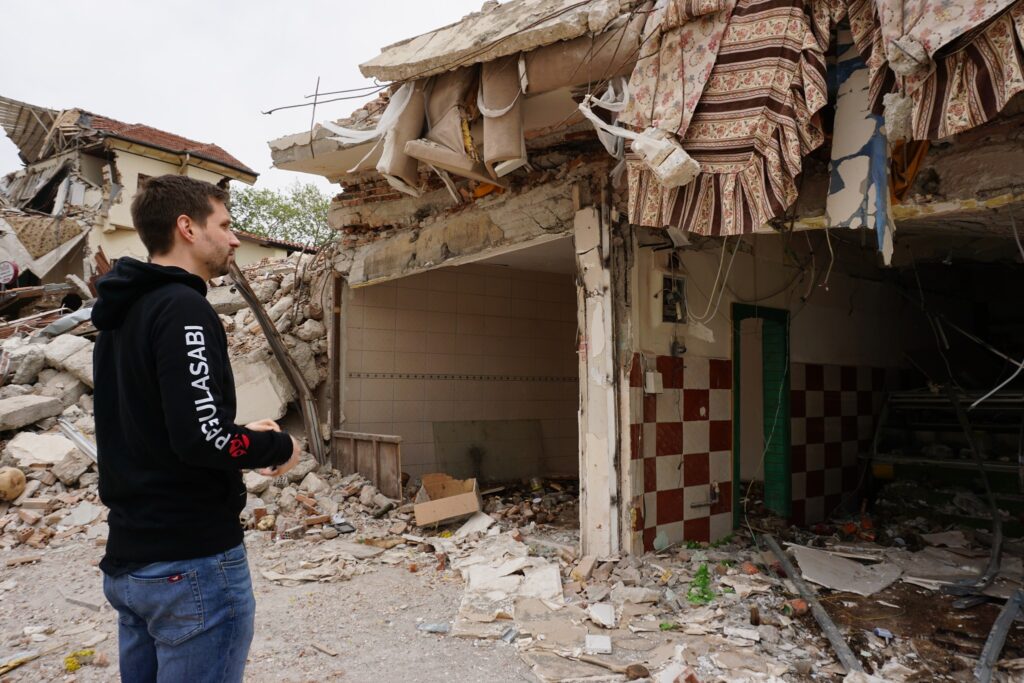
1 November 2023 – Chairman of the foreign affairs committee: If we lose in Ukraine, we will also lose in the Middle East
The chairman of the Estonian parliament’s foreign affairs committee, Marko Mihkelson, said at a meeting with his Norwegian parliamentary colleagues today that Russia’s aggression against Ukraine continued to be a priority for Estonia, but there are connections between the war in the Middle East and the war in Ukraine. “If we lose in Ukraine, we will lose everywhere, including in the Middle East,” he said.
Mihkelson pointed out that Russia’s as well as China’s strategic goals were for the long term, and that Russia’s position was strong enough to continue pursuing these goals for a long time and to do so at the cost of the well-being of its people. “Russia’s aim is to end the hegemony of the US and to destroy the security architecture of Europe. Next year, they will spend 60 per cent of their state budget on war, and this is only the public part of military expenses. The allies must not underestimate that,” he stated.
Mihkelson underlined that Norway’s assistance to Ukraine was of great value, but noted that the allies still did not have a common vision of what the end of this war should be. “The Ukrainians have a strong will to fight, but they need technology and ammunition. Our assistance must remain steadfastly strong. It is also important that Sweden became a member of NATO as soon as possible,” he said.
13 October 2023 – Ukrainian refugees start a healthy snack company in Estonia
Two Ukrainian war refugees in Estonia, Anna Lytvyn and Maryna Prittshina, set up a healthy snacks company called Fruitiki in Tallinn, with ambitions to sell their products across Europe. Read more from our feature story.
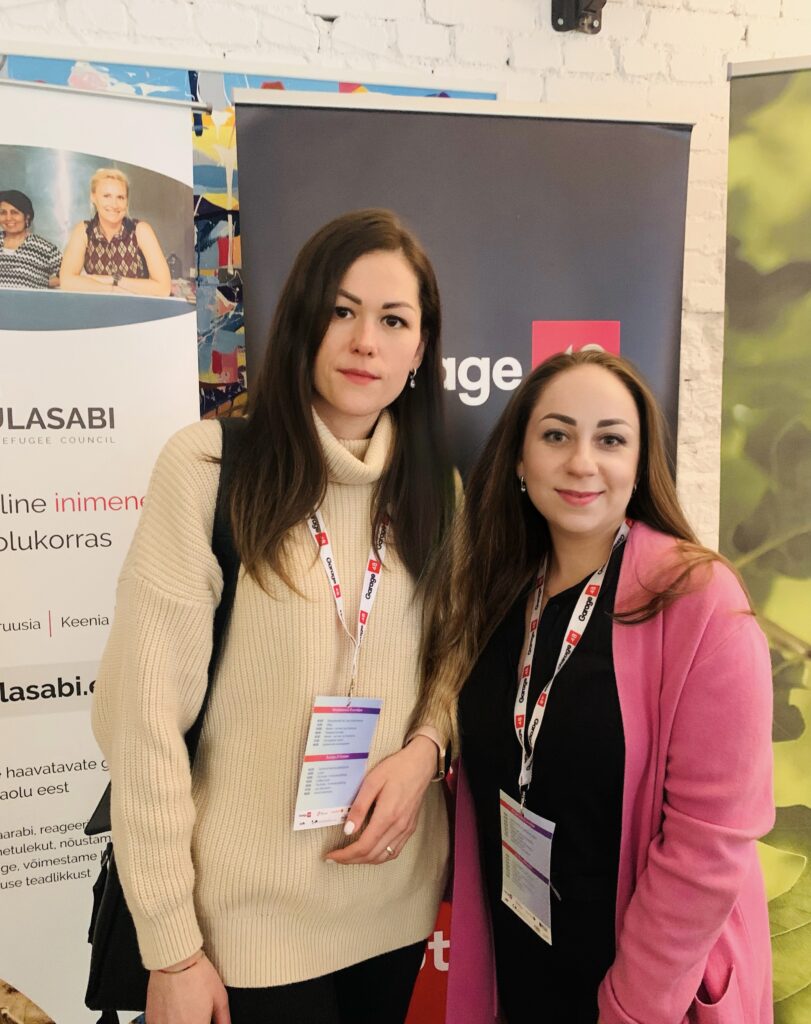
12 October 2023 – The Estonian Rescue Board sends 12 drones to the Ukrainian police
Estonian Rescue Board has dispatched 12 drones to mine clearance units of the Ukrainian police and conducted on-site training for their use, BNS reported. The director general of the Rescue Board, Margo Klaos, said they were in constant contact with their Ukrainian counterparts and try to assist in every possible way. “In return, we gain invaluable and much-needed knowledge about mine clearance operations,” Klaos added. The Estonian foreign ministry has allocated €214,500 from this year’s budget for development and humanitarian aid for sending drones to the Ukrainian police’s mine clearance units and for procuring replacement drones.
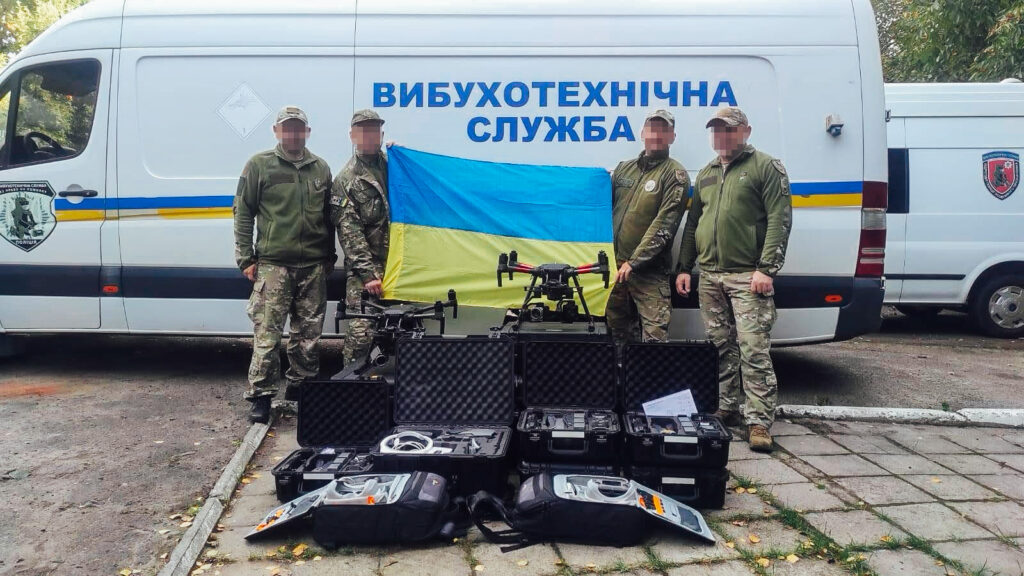
10 October 2023 – Estonia ready to lose funding if Ukraine joins EU
According to the Estonian prime minister, Kaja Kallas, Estonia is ready to eventually become a net contributor to the European Union budget if Ukraine joins the bloc, the Financial Times writes. Kallas also called on other EU countries to start work on budgetary reforms that would enable Kyiv’s membership.
Kallas said Estonia was prepared to lose access to cohesion funds. “Eventually it will happen, but not immediately,” she told the Financial Times.
The Financial Times revealed last week that an internal EU study has estimated Ukraine would be entitled to almost 190 billion euros over seven years under the current budget structure, converting many countries from being net recipients of EU funds to net contributors.
According to BNS, Estonia was one of six countries mentioned in the EU council paper as losing access to cohesion funds should Ukraine and other would-be members, such as Moldova and six countries in the Western Balkans, join without the budget rules first being amended.
“We have to discuss this, what are the rules, how this money is distributed and what we get in exchange,” Kallas said in an interview on the sidelines of a gathering of EU leaders in Spain last week, where the topic was discussed by all 27 member states for the first time. “Nobody … says that we don’t need to reform anything. The question is how much? And what exactly?”
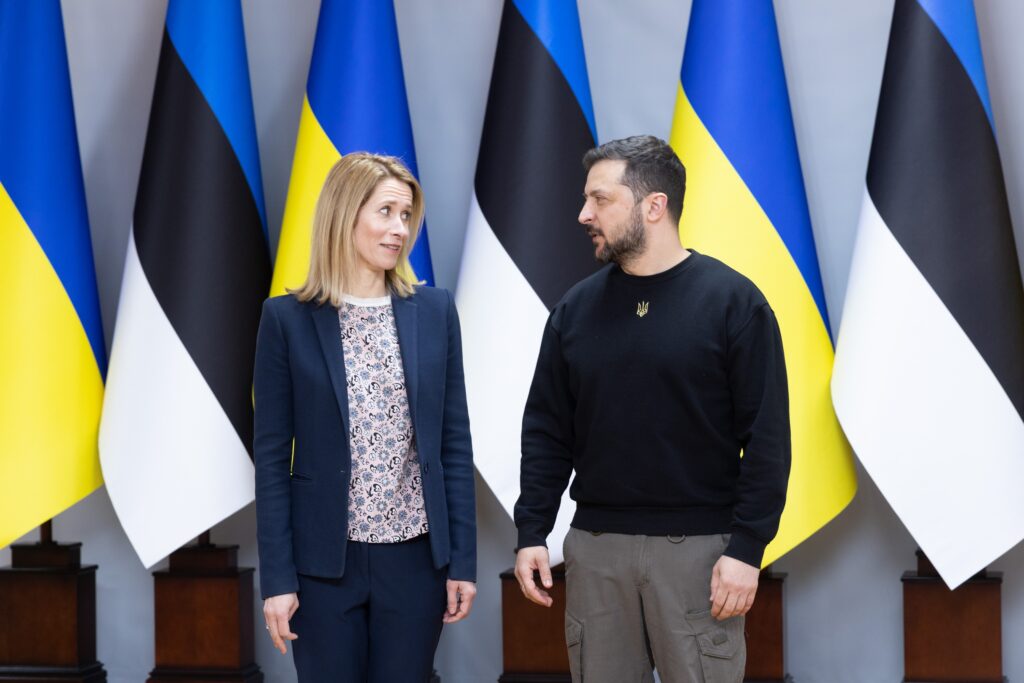
10 October 2023 – Ukrainian refugees have done better in the Estonian labour market than expected
Ukrainian war refugees have integrated in the Estonian labour market more successfully than in other countries, but there remains room for improvement in matching the qualifications with appropriate jobs, according to a report published by the Estonian Foresight Centre, a parliamentary think tank.
More than a third of the Ukrainian war refugees have found a job – 27,000 people have entered the local labour market. Ukrainians now form about 4 per cent of the Estonian labour force. “The growth in expected value added that can be connected to refugees is projected at €142 million this year, and the additional tax revenues from the Ukrainians will reach €56 million,” Märt Masso, an expert of the Foresight Centre, said in a statement.
However, the report notes that the downturn in the Estonian economy means the need for employees will decline in the coming months.
The Foresight Centre notes that there are also significant costs to helping the Ukrainian refugees. The cost of supporting the integration of refugees and their families is some 0.6-0.8 per cent of GDP; the cost for Estonia was €224 million in 2022.
The Foresight Centre is a think tank at the Estonian parliament that analysis socio-economic trends and builds future scenarios.
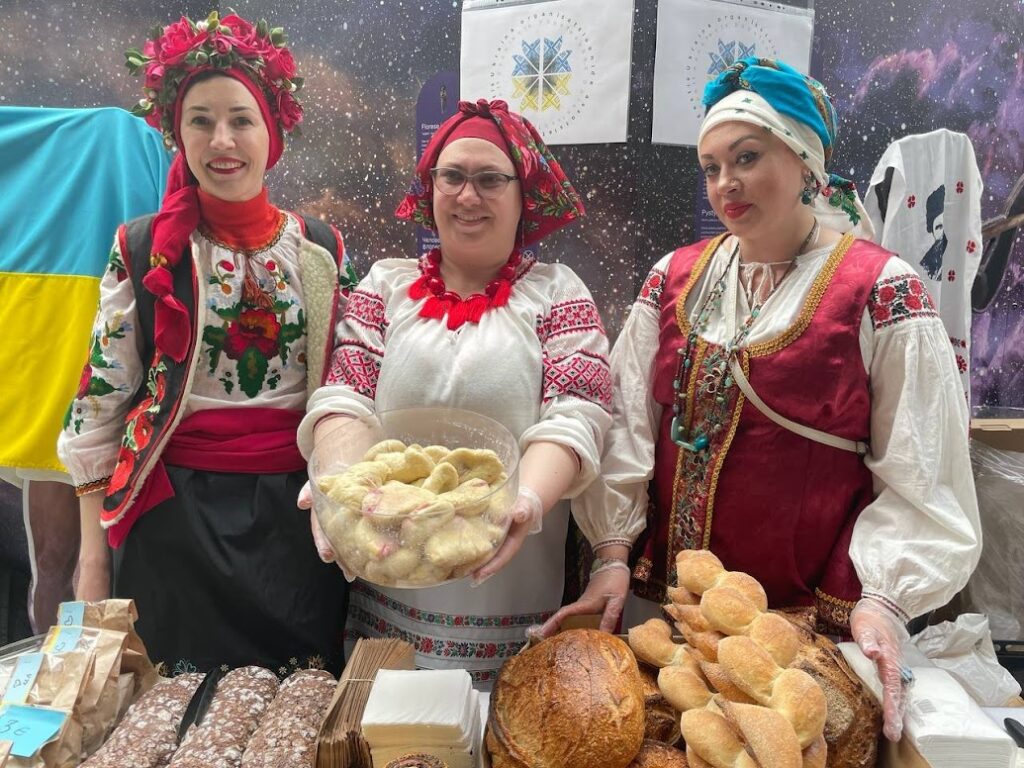
10 October 2023 – Estonia allocates half a million euros to Ukraine for winterisation aid
Estonian foreign ministry is allocating half a million euros worth of humanitarian aid to Ukraine to help it prepare for winter. The aid will reach the people of Ukraine through the Estonian Refugee Council and the Tallinn-based NGO Mondo.
An estimated 17.6 million people need humanitarian aid in Ukraine, which is 40 per cent of Ukraine’s population. Since the start of the full-scale war, an estimated 1.4 million homes have been damaged or destroyed in Ukraine.
The ministry is allocating €200,000 to the Estonian Refugee Council for buying solid fuels for the most vulnerable internally displaced civilians in Ukraine, and for Ukrainian refugees in Georgia to help them cope with winter conditions.
NGO Mondo is allocated nearly €301,000 for repairing and insulating two centres for internally displaced people in Kharkiv and Zaporizhzhia, and for supplying heating devices, solid fuels and generators to eight refugee centres in the Dnipropetrovsk and Donetsk oblasts.
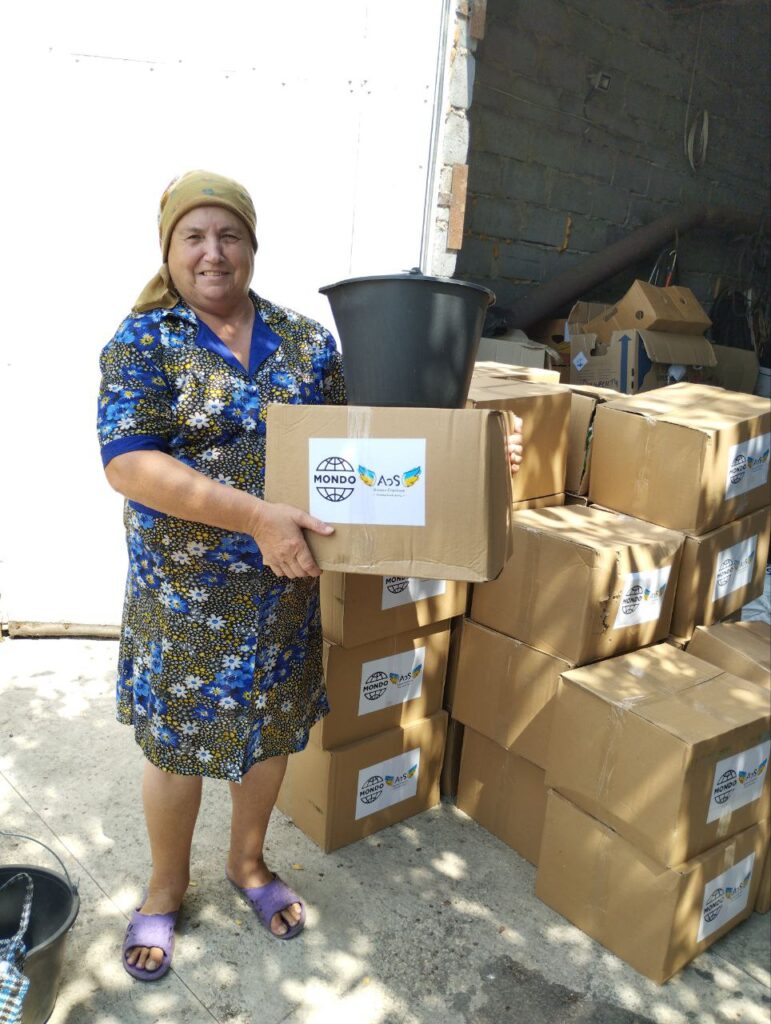
19 September 2023 – Estonia, Luxembourg and Ukraine launch an “IT coalition”
Today in Ramstein, Germany, at the Ukraine Defence Contact Group meeting, Estonia, Luxembourg and Ukraine launched an “IT coalition”, which will support the Ukrainian Defence Forces in cyber defence.
“The IT Coalition will focus on the delivery of a secure and resilient IT infrastructure for the Ukrainian defence ministry and Defence Forces, which enables Ukraine to be more efficient and effective on the battlefield. We are grateful to Estonia and Luxembourg for their leadership in driving this initiative forward. I would also like to thank Belgium, Latvia, Lithuania and Denmark for joining us in this endeavour and to Luxembourg for already announcing the first pledge to the IT Coalition,” Rustem Umerov, the Ukrainian defence minister, said in a statement.
The Ukraine Defence Contact Group is an alliance of 54 countries supporting the defence of Ukraine by sending military equipment in response to the 2022 Russian invasion. The group coordinates the ongoing donation of military aid at monthly meetings. It often meets at the Ramstein Air Base, a US Air Force base in Rhineland-Palatinate, a state in southwestern Germany.
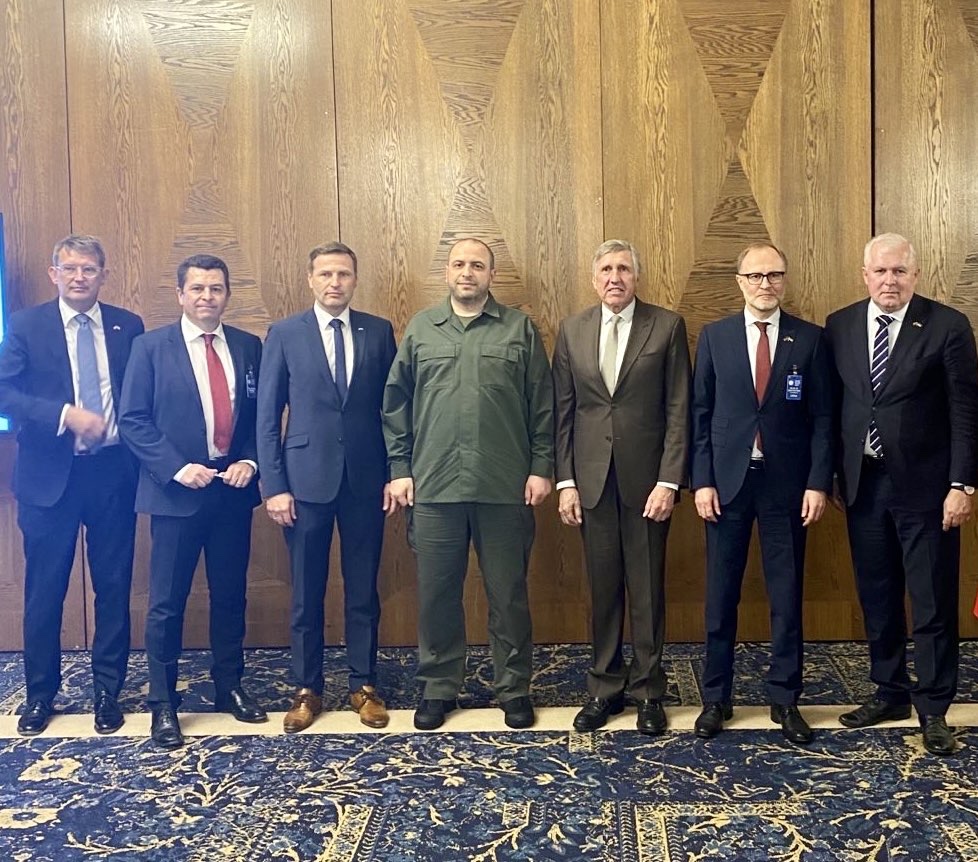
12 September 2023 – Estonia assists Ukraine in psychological rehabilitation
Estonia is hosting 40 Ukrainian health-care professionals for advanced training in psychological first aid and psychological rehabilitation, BNS reported. The attendees for the training come from various regions of Ukraine.
One of the main goals of the three-day seminar is to help establish a unified network that would allow professionals to share experiences, learn from each other and provide mutual support amid the complex war situation in Ukraine. In addition to psychological rehabilitation, Ukrainian health-care workers will gain insights into mental health physiotherapy at the East-Tallinn Central Hospital’s outpatient rehabilitation centre.
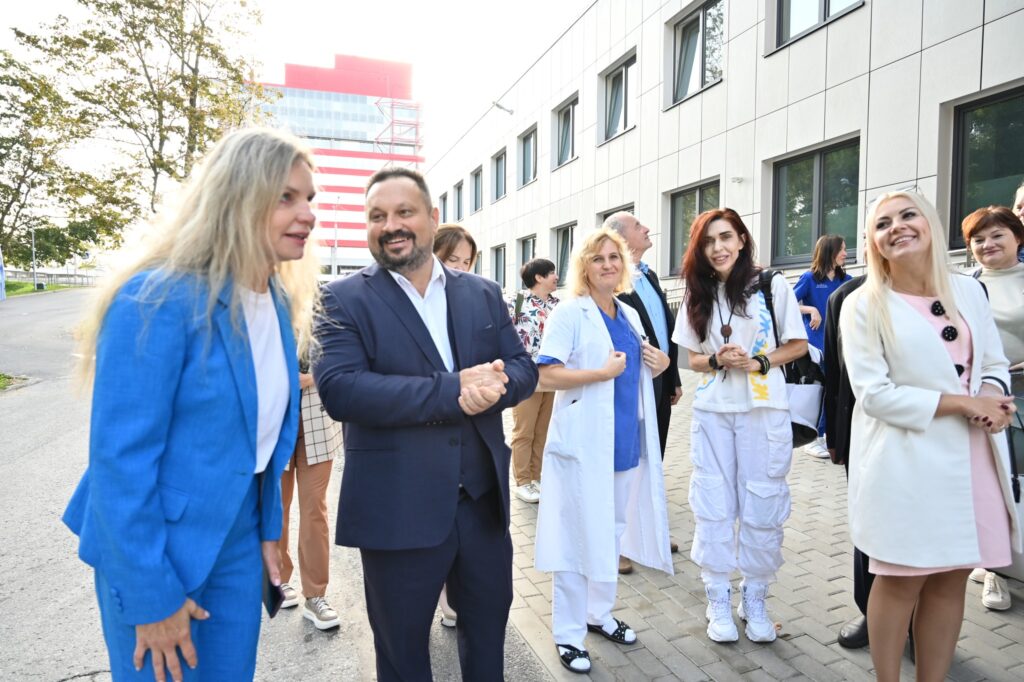
6 September 2023 – Over four thousand Ukrainian refugees registered as unemployed in Estonia
As of 3 September, altogether 4,503 beneficiaries of international protection linked to Ukraine had registered as unemployed with the Estonian Unemployment Insurance Fund, accounting for nine per cent of all registered unemployed in Estonia, BNS reported.
A month earlier, on 30 July, 4,689 beneficiaries of international protection linked to Ukraine had registered as unemployed, and their share of all registered unemployed in Estonia stood at 9.2 per cent. Of the registered unemployed beneficiaries of international protection, 75.7 per cent are women and 24.3 per cent men.
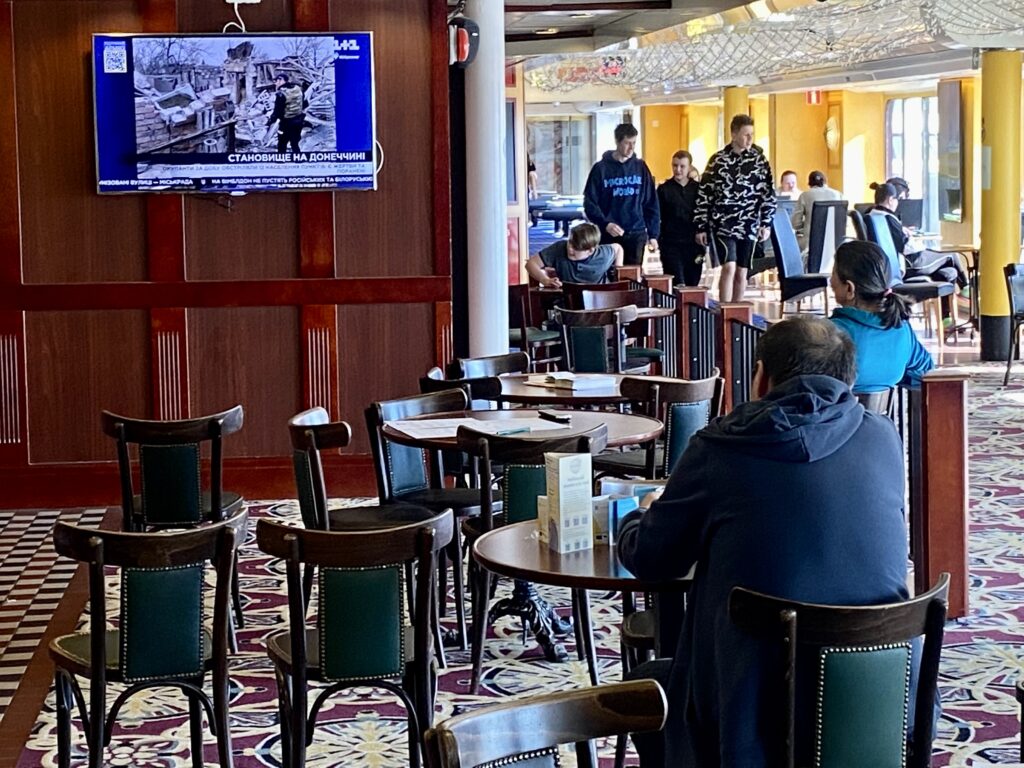
6 September 2023 – Estonian education experts training colleagues in Ukrainian universities
Estonian education experts are visiting Ukrainian universities this week to strengthen education cooperation between the two countries and introduce Estonians’ knowledge to their Ukrainian colleagues, BNS reported. The visit aims to contribute to the development of higher education in Ukraine and open doors for future technologies.
The Estonian expert group comprising representatives from the Estonian Education and Youth Board, the University of Tartu, the Estonian University of Life Sciences, and EdTech companies Triumf Health and Speaktx, along with experts from Mariupol University, will conduct a seminar titled “Promoting education: Edtechs, universities and country branding” at the Vasyl Stefanyk Precarpathian National University in Ivano-Frankivsk, Ukraine.
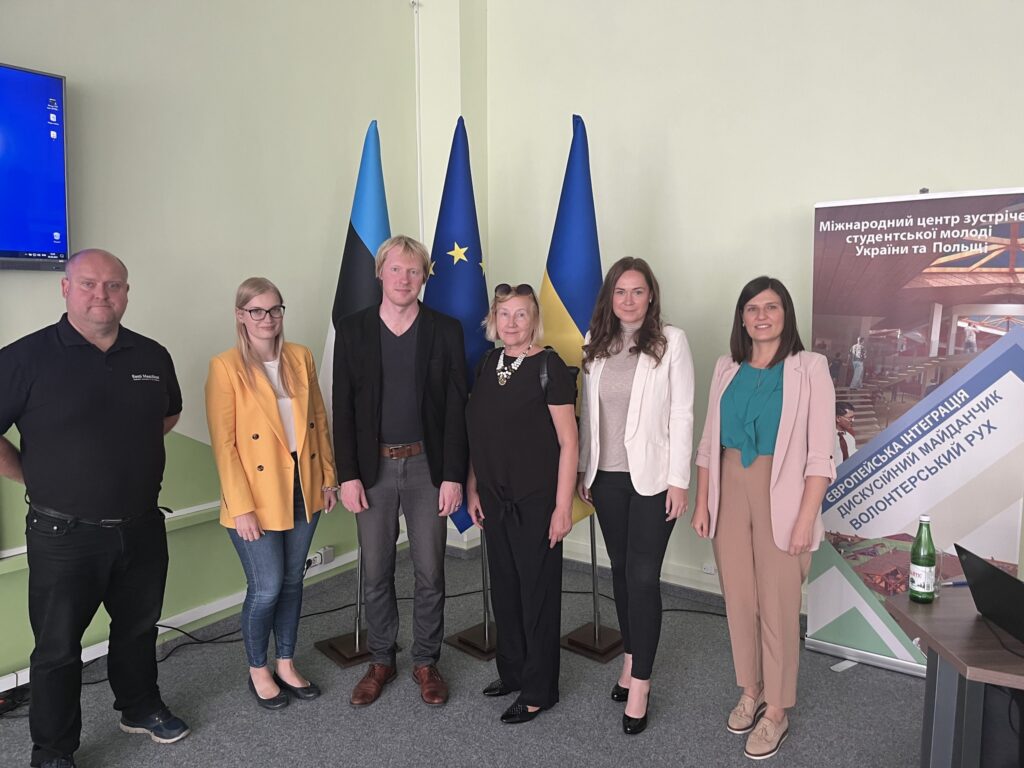
5 September 2023 – The Estonian Refugee Council supports nearly 247,000 people in Ukraine
The Estonian Refugee Council has provided cash-based assistance to close to 247,000 people in Ukraine in the total amount of €45 million, or around €61 per family member per month, BNS reported. Currently, the Refugee Council is providing support in the Zaporizhzhia, Donetsk, Luhansk, Kharkiv, Kherson and Mykolaiv regions.
“From April to the beginning of August, we provided food aid to over 24,000 people in Kharkiv, Donetsk and Zaporizhzhia regions. We will continue with the food programme in September, when we will add Kherson region to the receiving regions,” the Refugee Council said in its monthly overview, according to BNS.

5 September 2023 – Estonians donate €158,400 to fund bomb shelters in Ukrainian schools
During a charity campaign that took place from 17-31 August as part of the “Ukraine Thanks You!” concert in Tallinn for Ukraine’s Independence Day, people in Estonia donated a total of €158,400 for the construction of bomb shelters in schools in Eastern Ukraine, BNS reported.
The fundraising campaign was conducted and the collected funds will be sent to Ukraine by the non-profit organisation Kultuuride Ristmik (Crossroads of Cultures), founded by Ruslan and Terje Trochynskyi, in cooperation with Estonian and Ukrainian state institutions and trustworthy non-profit organisations.
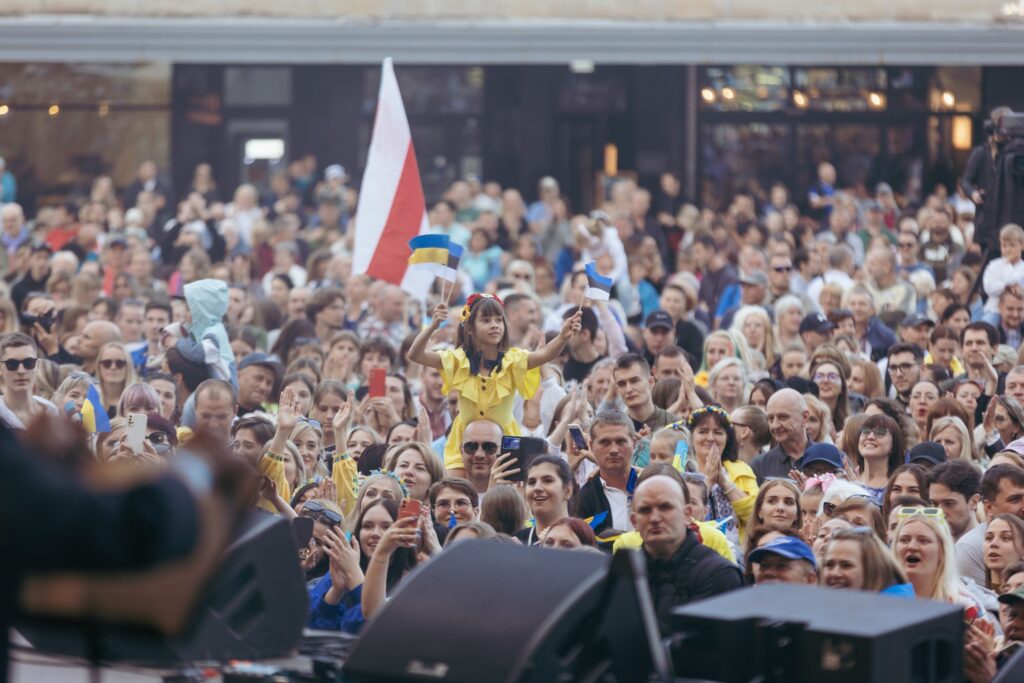
23 August 2023 – a company partly owned by Kaja Kallas’s husband continues to do business with Russia
The Estonian Public Broadcasting reported that Stark Logistics, a transport company partly owned by the Estonian prime minister Kaja Kallas’s husband Arvo Hallik, has not ceased operations with Russia.
Kristjan Laag, the CEO of Stark Logistics, told the outlet that the company “had practically stopped transporting to Russia, but had not completely ceased operations”, adding that the “current few runs are the last loads”.
The company had continued shipments to Russia throughout the war in Ukraine that started on 24 February 2022. Publicly available records show that the firm partly owned by the prime minister’s husband has arranged shipments worth at least $17 million to Russia during the war, the Estonian newspaper Eesti Päevaleht reported.
Ever since the war, Kallas has told the Estonian as well as the international media that “there must be no business with Russia”.
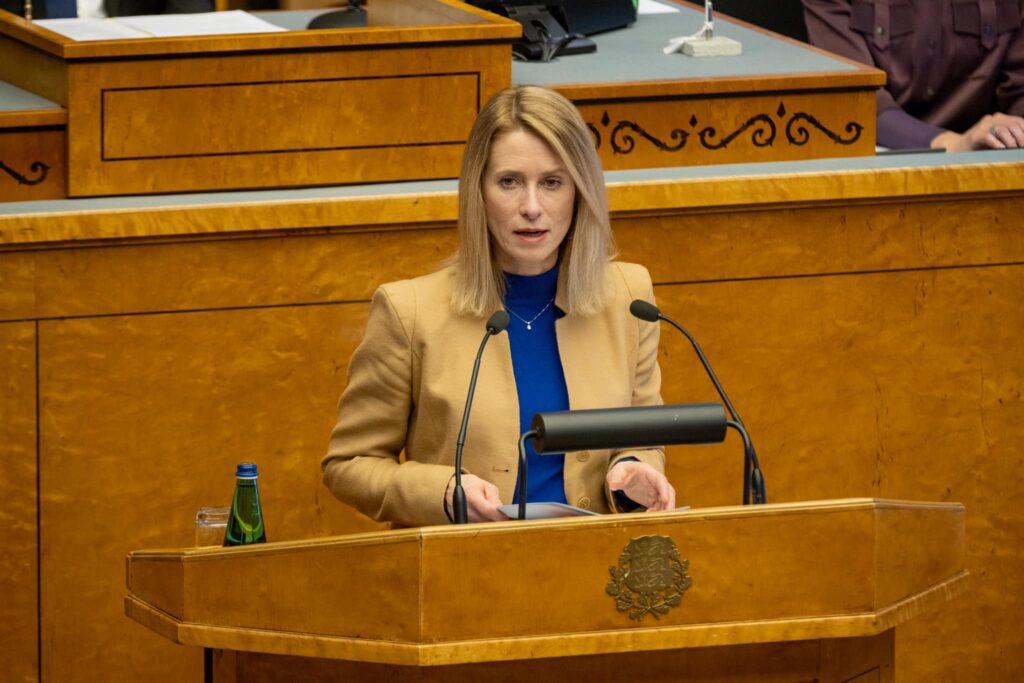
23 August 2023 – Estonia to send powerful drones to Ukraine
With the help of a donation campaign initiated by alumni of higher national defence courses, Estonians are supporting the purchase of altogether 21 Estonian-made reconnaissance drones with enhanced positioning reliability for the defenders of Ukraine and the first drones named Kalev, Lembit and Vambola will be sent to Ukraine in the near future, BNS reported. A total of almost 4,000 private individuals from Estonia and abroad contributed to the fundraiser launched last fall and the campaign raised almost a quarter of a million euros. Thanks to supporters, drones Kalev, Lembitu, Vambola and 18 other reconnaissance drones produced in Estonia can fly even when Russian military equipment prevents the use of GPS.
On Tuesday, alumni of the higher national defence courses, including Roy Strider, Eerik-Niiles Kross, Taivo Raud, Agne Aija, Andres Pehme, Martin Simon and Juku-Kalle Raid, decided to conclude the donation campaign launched by them last fall for sending Threod drones made in Estonia to Ukraine.
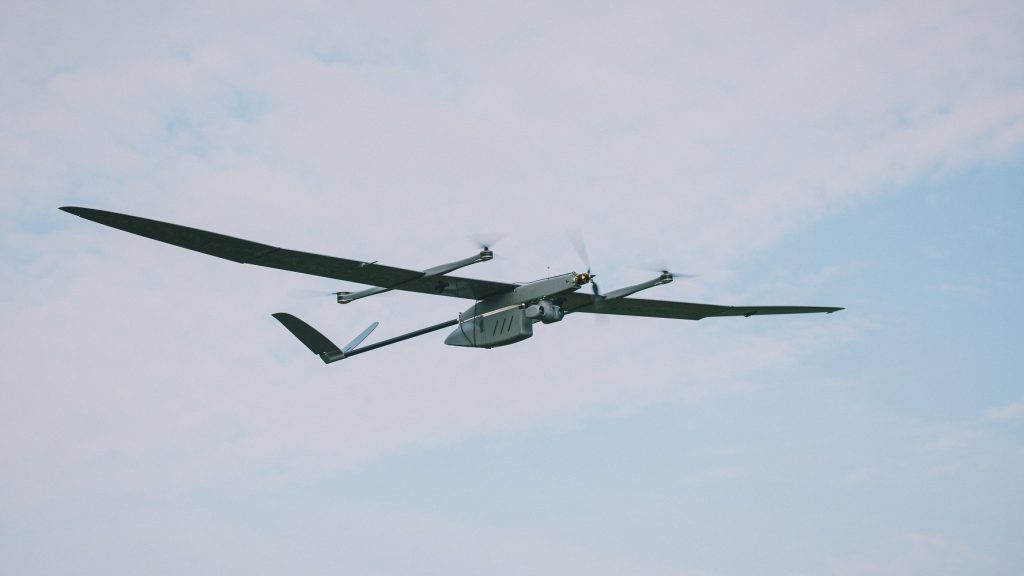
23 August 2023 – Estonian firms supplying parts for Putin’s yacht
Amid the war in Ukraine and sanctions imposed by the EU, Estonian companies are linked to the supply of spare parts for Russian dictator Vladimir Putin’s personal yacht, an investigation by the Alexei Navalny Anti-Corruption Foundation has found. The Estonian daily Postimees writes that when the complex MTU system broke down on Putin’s yacht, the Estonian company Breezemarine agreed not only to buy and take screens for this to Russia, but also to help reprogram them, BNS reported.
The MTU system, which failed in September 2021 on the yacht Graceful – now renamed Kosatka, or Orca – is a screen on which one can see data related to the current situation regarding the operation of the engines and which can be used to change their parameters. According to investigators of the Alexey Navalny Anti-Corruption Foundation, there was initially no rush to replace the system, because Putin had another yacht at his disposal, named Scheherazade. But when war broke out in Ukraine, Scheherazade was seized and the need for Graceful arose. Therefore, a search started for an intermediary who would be ready to get spare parts for the yacht while circumventing the sanctions imposed on Russia, according to BNS.
According to the foundation, Breezemarine, a company operating in Estonia, agreed not only to buy and take the screens to Putin’s yachts, but also to help reprogram them. According to the investigation, the Estonian company found a private individual to act as courier to take the equipment brought from St. Petersburg to a factory in Germany and later back to Russia. All this happened this spring, when the war was going on in Ukraine for the second year already.
Distinto, also an Estonian company, has also assisted the Graceful team in procuring uniforms. Since 2016, they have been supplied by the Italian company Floating Life, but sanctions once again started to prevent this last year. However, the Italian suppliers decided to continue their business relationship with Graceful’s caretakers and managers. They only asked if they could simply write “crew clothes” on the invoice and if they understood correctly that they do not have to include the yacht’s name Graceful. Initially, the invoice was directed to the Russian company managing the yacht, but at some point difficulties arose in Russia with international transfers. And then Distinto came into play, in whose name the invoice intended for Graceful was actually issued.
In order to avoid risks, the representatives of Floating Life asked that money not be transferred to Italy, but that a transfer be made to the account of a special agency in Turkey, which has not joined the sanctions. In the end, a Dubai company paid for the so-called uniforms. After that, the goods were sent from Italy to Lithuania, from where it reached the customer, Graceful, via Kaliningrad.
The participation of the two Estonian companies in these two stories is not accidental. Both Breezemarine and Distinto, which helped procure uniforms while avoiding sanctions, are managed by the same man – Sergei Tsekmazov. And his business is going well: according to the foundation, while Distinto’s revenue in 2021 was €432,000, in 2022 it was already over a million euros. During the first half of this year, the company’s revenue reportedly reached €600,000, BNS said.
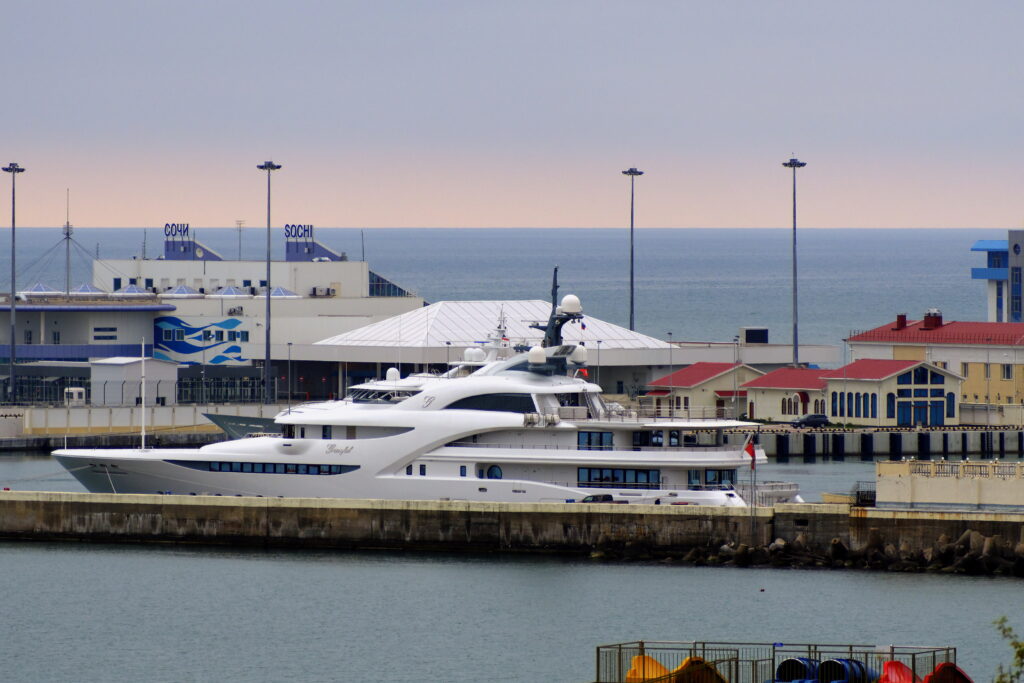
11 August 2023 – Estonia to donate handguns to Ukraine
Estonia will send Ukraine more handguns and ammunition, the country’s government decided on 10 August.
So far, Estonia has provided Ukraine with military aid in the value of over 400 million euros. The earlier military aid has included Javelin anti-tank systems, howitzers, artillery ammunition, anti-tank mines, anti-tank grenade launchers, mortars, vehicles, communications equipment, military field hospitals, medical supplies, personal protective equipment and food packages.
9 August 2023 – Court: The case of a transgender Ukrainian handled inadequately by the police
In early July, a court determined the Estonian Police and Border Guard Board had superficially rejected the application for international protection from a transgender Ukrainian based on flawed reasoning and only considering that the Ukrainian held Russian citizenship.
According to the Estonian Human Rights Centre, which won against the police board in court, the transgender Ukrainian with Russian citizenship had started applying for Ukrainian citizenship even before Russia’s attack against Ukraine. Life in Russia had become intolerable for the individual, as hormone treatments for transgender people and related medical assistance were no longer available in the aggressor state. Moreover, after the outbreak of war, the person began financially supporting the Ukrainian armed forces, but Russia prohibits any form of opposition to the war. As a result, they applied for international protection from the police, which was then denied.
Both the court and the lawyers from the human rights centre representing the Ukrainian said the police board’s administrative procedure was disastrously flawed. Specifically, the complainant was an individual whose need for international protection should have been evaluated from several different aspects. During the administrative process, the police board should have taken into account their transgender identity, Ukrainian ethnicity, being within the interest sphere of Russian authorities, political opinions and financial support to the Ukrainian armed forces. However, the court found that the police board did not cumulatively assess these factors and based its refusal decision on outdated information about the applicant’s country of origin.
The court concluded that the police board violated the law on granting international protection to foreigners when assessing the applicant’s specific needs, and conducted the administrative procedure inadequately. As a result, the refusal to grant protection must be annulled, and the process must be carried out again properly.

1 August 2023 – Estonia donates a large amount of equipment to Ukraine
As part of the latest campaign by Estonia’s National Defence Promotion Foundation, tactical first aid kits and a real-time drone detector, among other things, were delivered to the Ukrainian border. The foundation, established by the Estonian Chamber of Commerce and Industry and the defence ministry, handed over its twelfth aid shipment aimed at helping Ukraine ensure a continued ability to fight the war.
The shipment, worth €140,000, included 5,000 tactical first aid kits, 1,400 food packs, a real-time drone detector, battery stations, blankets and other equipment needed by Ukrainian combat units, BNS reported.
1 August 2023 – Estonian hunters send some 500 cans of wild boar meat to Ukraine
The Estonian Hunters’ Society at the end of last week sent yet another batch of canned game meat to Ukraine, this time consisting of approximately 500 cans of wild boar meat, BNS reported. The society is still accepting canned game meat as well as donations for Ukraine into the bank account EE062200221001183828 at Swedbank. Donors are asked to write “Ukraine” in the payment reference field.
13 July 2023 – Estonian security expert: NATO summit in Vilnius a “bureaucratic coffee drinking”
Meelis Oidsalu, a former deputy secretary general of the Estonian defence ministry, criticised the decision taken at the NATO summit in Vilnius on Tuesday on Ukraine and the alliance’s failure to start contributing more to its defence, in an interview given to the Estonian Public Broadcasting’s Vikerraadio. NATO leaders said they would invite Ukraine to join the alliance only when conditions are met and allies agree – falling short of Ukraine’s expectations.
Oidsalu didn’t mince his words, calling the summit a “coffee drinking of the war bureaucrats”. “There was talk of approving some documents that were decided a year ago and then they couldn’t even iron out the talking points about Ukraine,” he noted.
Commenting on the Ukrainian president Volodymyr Zelensky’s criticism of NATO’s decision, Oidsalu said that expressing offence and disappointment was necessary to keep the issue on the agenda. “Ukraine in general is doing badly at the moment and I think that is what we should be talking about now, not so much about the NATO summit in Vilnius. [NATO has] not played a big role for Ukraine during this war, that’s why NATO has officially been in the shadows anyway (on the Ukraine issue), so as not to give Putin the opportunity to say that Putin is at war with NATO,” he said.
“As a whole, Ukraine is currently on the course that if there are no major breakthroughs on the front now, by autumn we will be in a situation where the West will no longer have much capacity to provide Ukraine with munitions. And if the territories have not been retaken by then, then there will be negotiations, and perhaps during these negotiations Ukraine’s NATO membership will be discussed as something that Ukraine could get in exchange for something – a cession of its territory or even a temporary acceptance of the situation,” Oidsalu stated, adding that the situation remains difficult for Ukraine and Zelensky’s “emotionalism” is perhaps just an expression of that.
The security expert said that in his view, NATO is weaker than it was a year ago. “On the battlefield itself, NATO is weaker than it was a year ago, because we have given away a lot of ammunition and equipment – it has not been produced back, and there is no sign at the moment that there is any desire to produce it back in adequate quantities; there is still a very big void in the ammunition stores, bigger than we might be talking about,” he claimed.
Oidsalu stressed that as long as the commitment to spend two per cent of GDP on defence made at the NATO defence ministers’ meeting in 2006 is not fulfilled, “there is no point in talking about this plan as merely a statement of goodwill”. “If we simply look at the needs of the environment and the actual actions that the world’s richest bloc of nations are actually doing, or failing to do, in developing national defence, there are still very big question marks. What is the course, where are we really?” he asked.
Oidsalu also said that the Baltic states should contribute at least four per cent of their GDP to defence, arguing that Latvia’s and Lithuania’s defence contributions of 2.2 and 2.5 per cent of GDP respectively, are still not enough (Estonia is aiming to spend at least three per cent of its GDP on defence).
“In the Baltics, three per cent should be the minimum for the next decade, in fact an adequate level would be to put somewhere between 4 and 4.5 per cent every year, so that we would get to a situation where maybe seven or eight years from now, in some bizarre monstrous way, Russia will have recovered and will be doing its next thing, so that we won’t have to think so much about the upcoming US elections, whether we will be helped or not,” he noted.
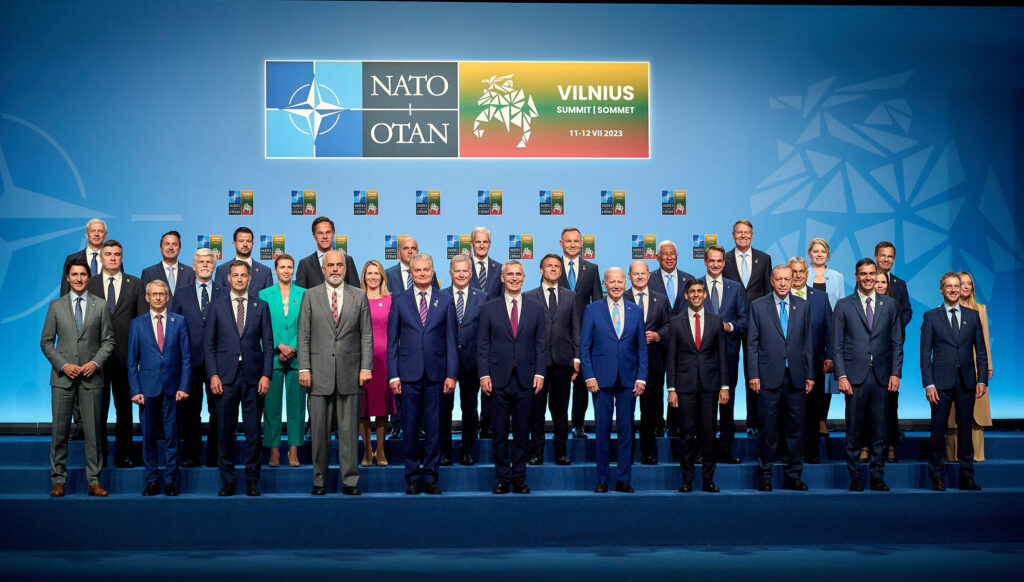
12 July 2023 – Estonian MEP: The NATO Summit promises to Ukraine a “real disappointment”
Estonian member of the European Parliament, a former chief of the Estonian Defence Forces, General (retired) Riho Terras (Pro Patria) said the promises given to Ukraine at the NATO Summit in Vilnius were a real disappointment. “We all remember the 2008 NATO Summit in Bucharest where a group of poets worded a beautiful statement to support Ukraine and Georgia. After that, Russia attacked Georgia and, a few years later, Ukraine.”
“One doesn’t have to be a clairvoyant to understand what happens next. Leaving the door cracked without concrete promises doesn’t mean anything. The sentence, ‘We can invite Ukraine to NATO when the allies agree and the conditions are met’ is nothing new, but reiterating the always valid principle. That’s a real disappointment.”

11 July 2023 – Foreign ministers: the Baltics is a “model” for Ukraine’s Euro-Atlantic integration
The Danish, Estonian, Finnish, Icelandic, Latvian, Lithuanian, Norwegian and Swedish foreign ministers – Lars Løkke Rasmussen, Margus Tsahkna, Elina Valtonen, Thordis Kolbrun Reykfjord Gylfadottir, Arturs Krisjanis Karins, Gabrielius Landsbergis, Anniken Huitfeldt and Tobias Billström, respectively, published a joint opinion piece in the Washington Post, in which they said that “there’s a model for Ukraine’s future Euro-Atlantic integration: The Baltics”.
Together, the Nordic and Baltic countries represent a unique history of Euro-Atlantic integration. One of the Nordic countries’ greatest foreign policy achievements was an extensive engagement in the Baltic countries after the Cold War. The Nordics supported their Baltic neighbors’ fight for restoration of freedom and their journey into the Euro-Atlantic family. Now, the Nordic and Baltic countries act together in an equal and free partnership of prosperous democracies,” the foreign ministers said, adding that “it is time for us to bring this Baltic experience of the 1990s to our joint efforts in support of Ukraine on its journey toward membership in the European Union.”
“The Nordic and Baltic countries, having experienced the transformative power of European integration firsthand, are eager to share our knowledge, expertise and best practices with Ukraine,” the ministers noted.
The foreign ministers emphasised that “Ukraine’s security is part of European security” and “Ukraine has the right to choose its own security arrangements”. “Right now, the most important and urgent task is to support Ukraine to prevail in this war. At the NATO summit in Vilnius, Lithuania, this week, we want to see ambitious steps bringing Ukraine closer to NATO and upscaling our practical support, both financially and longer-term,” the ministers said.
The foreign ministers also underlined that the Baltic and Nordic countries’ combined pledged support to Ukraine since Russia’s full-scale invasion amounts to more than 8.5 billion euros – and promised to continue this support “for as long as necessary”.
10 July 2023 – Jonatan Vseviov: “Letting Russia continue its aggression far outweighs the costs of stopping it”
The secretary general of the Estonian foreign ministry, Jonatan Vseviov, says in an interview with Estonian World that every country can do their bit to help stop Russian aggression against Ukraine and everybody needs to reinforce the message that the cost of continuing the aggression far outweighs the cost of stopping it.
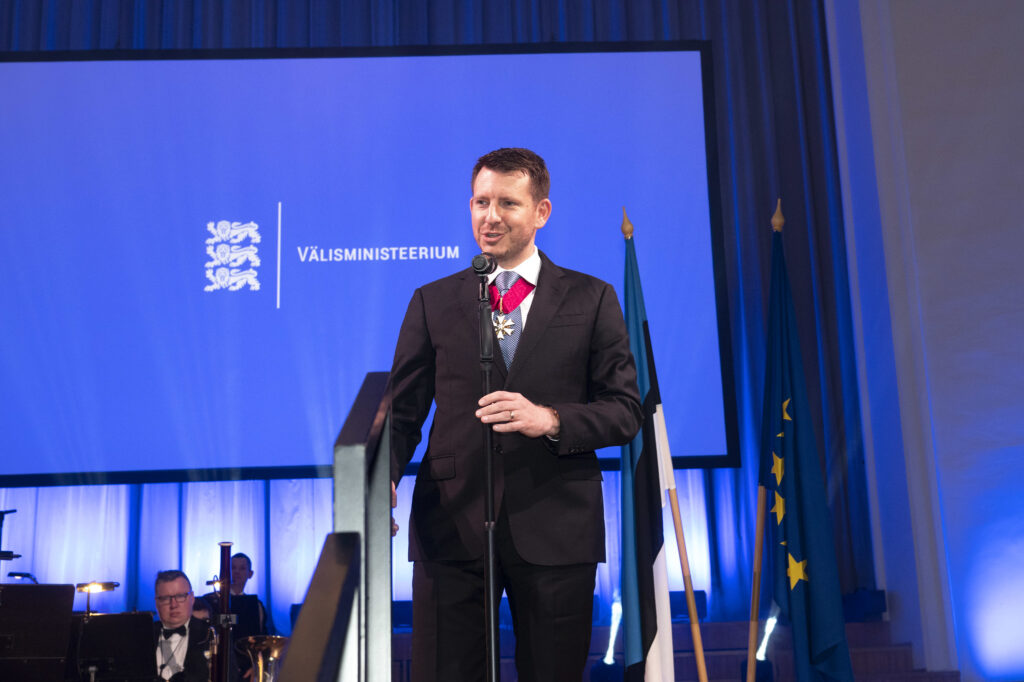
10 July 2023 – Speakers of six countries: NATO must establish a path for Ukraine to join
The speakers of the parliaments of the Baltic states, Germany, Poland and Ukraine made a joint statement in Riga, Latvia, in which they call on the allies to undertake the commitment at the NATO summit starting tomorrow that Ukraine will become a member of NATO.
“In light of the upcoming NATO summit in Vilnius we call on the allies to undertake the commitment that Ukraine will become a member of NATO and the Alliance will establish a path for Ukraine to join NATO,” the speakers of the six countries say in the joint statement, and add that Ukraine should be invited to join NATO as soon as conditions allow through a political decision similar to Finland.
5 July 2023 – Almost 5,000 Ukrainian refugees registered as unemployed in Estonia
As of 2 July, altogether 4,828 beneficiaries of international protection linked to Ukraine had registered as unemployed with the Estonian Unemployment Insurance Fund, accounting for 9.6 per cent of all registered unemployed in Estonia, BNS reported. A month earlier, 5,064 beneficiaries of international protection linked to Ukraine had registered as unemployed, and their share of all registered unemployed in Estonia stood at 10.2 per cent.
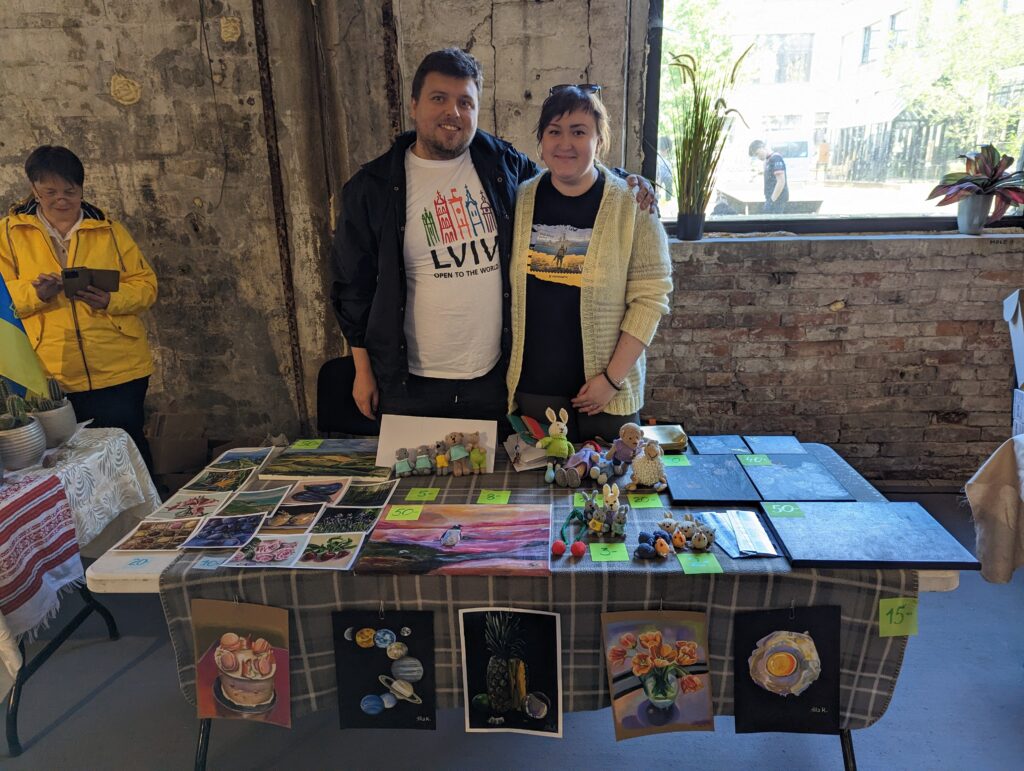
27 June 2023 – The Estonian foreign ministry allocates nearly a million for aiding Ukraine
The Estonian foreign ministry has allocated €959,650 to its strategic humanitarian aid partners for assisting Ukraine in 2023, BNS reported. The aim is to support the people of Ukraine, internally displaced people, and refugees in Georgia and Moldova, and to provide as quick and efficient solutions as possible.
The Rescue Board has been allocated €315,600 for sending foaming agent necessary for extinguishing infrastructure fires. NGO Pagulasabi will receive €400,000 for cash-based assistance. In Ukraine, cash-based aid is given to improve independent coping of households who rely fully or partially on agricultural activities for survival, and multipurpose cash-based aid for the most vulnerable households. NGO Mondo has been allocated €244,050 for urgent and light repairs of two schools in Mykolaiv and Zaporizhzhia regions with the aim for children to be able to go to school in September 2023. In addition, digital competence and psychosocial support training will be organised for teachers in schools.
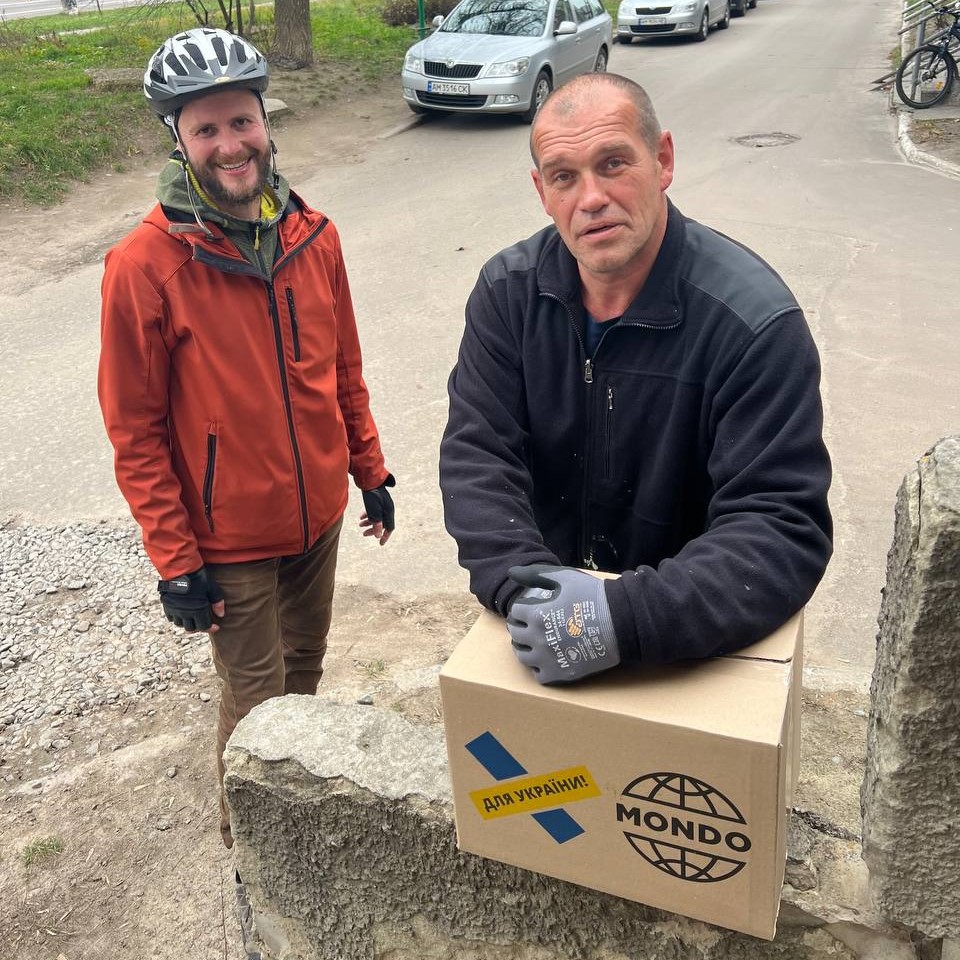
27 June 2023 – President: Wagner’s rebellion demonstrated Russia’s unpredictability
The Estonian president, Alar Karis, told the National Defence Council that the rebellion by Wagner Group had shown how unpredictable the internal balance of Russia can be. Karis said the armed rebellion against Russia’s military leadership and president Vladimir Putin’s power over the weekend was thought-provoking, according to BNS.
“We saw how unpredictable the internal balance of Russia, which started an aggression war in Ukraine, can be. We saw an organisation created, equipped and maintained with the support of the Kremlin attack the same power and its armed forces by occupying both districts and the joint staff of the Russian armed forces in Rostov without resistance. We saw the incumbent president being forced to establish defensive lines near Moscow to stop the march of his mercenaries towards the capital city. We saw the passivity of the Russian population and the indecisiveness of their state institutions,” Karis said.
26 June 2023 – Russia remains unpredictable
The Estonian government held an extraordinary cabinet meeting today, during which ministers were briefed on the latest developments in Russia and their potential impact.
“I can continue to assure you that there is no threat to Estonia from what is happening in Russia. We are constantly monitoring the situation and exchanging information with allies and partners, because Russia remains unpredictable and, although Prigozhin has stopped, the situation and its long-term consequences raise many questions. For this reason, our presence on the eastern border will remain heightened and we do not want Estonian people to travel to Russia,” the Estonian prime minister Kaja Kallas said in a statement.
“From our point of view, the most important thing is that the international focus remains on the victory of Ukraine and continued support for Ukrainians until they defeat the aggressor,” Kallas added.
24 June 2023 – Estonian MEP: The next days will dictate Russia’s fate
Estonian MEP Urmas Paet said in a Facebook post that the Russian criminal regime was in a public crisis due to its own earlier criminal choices. “First and foremost, of course the aggression against Ukraine that has shown the world the essence of the Russian regime and, at the same time, weakened the Russian state internally. And second, the choice that created the Wagner private army, ie Prigozhin’s armed forces to fulfil Russia’s dark goals elsewhere in the world where Russia, at first, tried to hide its direct involvement – like in many African countries,” Paet said. “But, due to the difficulties in the aggression against Ukraine, the Russian regime had to use Prigozhin’s armed forces in Ukraine and allowed the Wagner Group to expand, including adding criminals from Russian prisons.”
“The next days will dictate Russia’s fate. Either it will be a bloody domestic war, or the Russian regime will have enough stamina and the loyalty of the regular army to take out Prigozhin and stop the already quickly rolling internal collapse of Russia. Right now, it’s said Rostov-on-Don – an important southern supply post of the Russian Army – is under Wagner’s control. If it is so, then Wagner managed to succeed in a short period of time in Russia something they couldn’t succeed in Ukraine in months.”
According to Paet, what’s happening in Russia right now has weakened the authority of the Russian regime inside Russia – people are realising that the regime isn’t rock proof and the society isn’t suffering because of an external third party, but the Russian leadership together with Putin. “Therefore, if the regime can’t stop the events Prigozhin has initiated, there’s a growing risk that units of the Russian regular military forces will step over to Prigozhin’s side.”
Paet also said all this meant that it will be more difficult for Russia to keep its positions in Ukraine, and that a conflict inside the Russian armed forces will lower the morale even more. “In addition, there are Prigozhin’s own statements about the pointlessness of the aggression against Ukraine. That doesn’t necessarily mean Prigozhin would be a supporter of a free Ukraine, but the events in Russia will help Ukraine clean it up from the occupiers.”

24 June 2023 – Estonian MP: Putin could be dumped and Russia could face a military dictatorship
Marko Mihkelson, the chairman of the Estonian parliament’s foreign affairs committee, said in the context of the events in Russia on Saturday that the Wagner mercenary army had been preparing for a military insurgency for some time.
“The briefs of the first hours confirm the Wagner private army, led by [Yevgeny] Prigozhin, has been preparing for this operation thoroughly and for a long time. The takeover of Rostov and Voronezh without any major resistance shows that on the one hand there is awe of Wagner’s power, and on the other hand it is not impossible that Prigozhin has enough authority in the Russian armed forces so as to not use force against him,” Mihkelson said on social media, BNS reported.
Unlike the parquet generals and the Russian leadership, Prigozhin has been constantly on the front line and has been able to grow his authority through social media, Mihkelson noted, adding that Prigozhin, once Vladimir Putin’s faithful servant, has become the most serious threat to Putin’s power.
“The military insurgency in Russia led by war criminal Yevgeny Prigozhin could escalate into a coup attempt if it turns out that Russia’s armed forces and security structures remain neutral towards him or even take Wagner’s side. That will test the authority of war criminal Putin and the FSB. This is the most serious internal situation in Russia since the early 1990s. At the same time, we should not forget that, like Putin, Prigozhin still wants to destroy Ukraine,” Mihkelson said.
He said the television address by Putin on Saturday morning drew a clear line between the two men – Putin considers Prigozhin a traitor, likens the situation to 1917, and essentially demands the liquidation of the rebels.
“The next hours will show whether the insurgency by Prigozhin’s private army will grow into something more. The most important indicator will be the actions of the Russian armed forces and the National Guard. If what they do is more of a neutral onlooker presence, which we have seen in part at least in the first hours of the insurgency, or if units take Prigozhin’s side, of which we are getting unconfirmed reports, the events could escalate into more than replacement of the defence minister and the chief of staff,” Mihkelson said.
“In any case, this is an event that will seriously shake Russia internally, because Putin’s authority is at stake. If the FSB fails to ensure internal order and to call Prigozhin to account or destroy him, their whole system of power could collapse. Putin himself would be dumped as well and Russia would face a military dictatorship. The elimination of Prigozhin, in turn, would also provide a reason to tighten the screws even more,” the Reform Party MP said.
Mihkelson admitted, however, that it was not yet possible to draw any conclusions, nor to say how this will affect the situation on the battlefield.
“Prigozhin stated that his actions do not impede the management of the front. Understandable, because he also wants to achieve victory over Ukraine. But on the other hand, it is not excluded that the insurgency in Russia will dissipate the command and control capabilities of the armed forces, and that Ukraine will have the opportunity to find weak points and weak links on the front lines in the course of the counter-attack to press for success,” Mihkelson said.
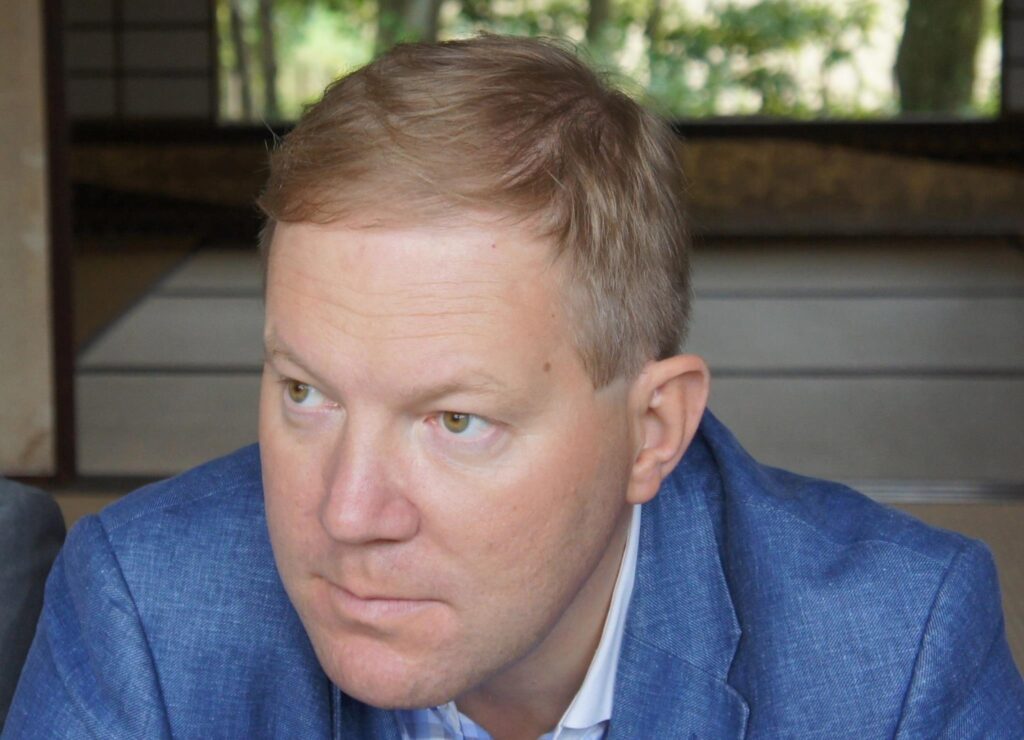
24 June 2023 – Estonia strengthens control of its border with Russia
In the context of reports of an armed rebellion in Russia, the control on the Estonian-Russian border has been stepped up, the Estonian prime minister Kaja Kallas said today.
“There is no threat to Estonia in connection to what is happening in Russia. Our security agencies are doing their job, we are closely following the developments in Russia and we are in contact with our allies and partners. We have also strengthened controls on Estonia’s eastern border,” Kallas said in a statement.
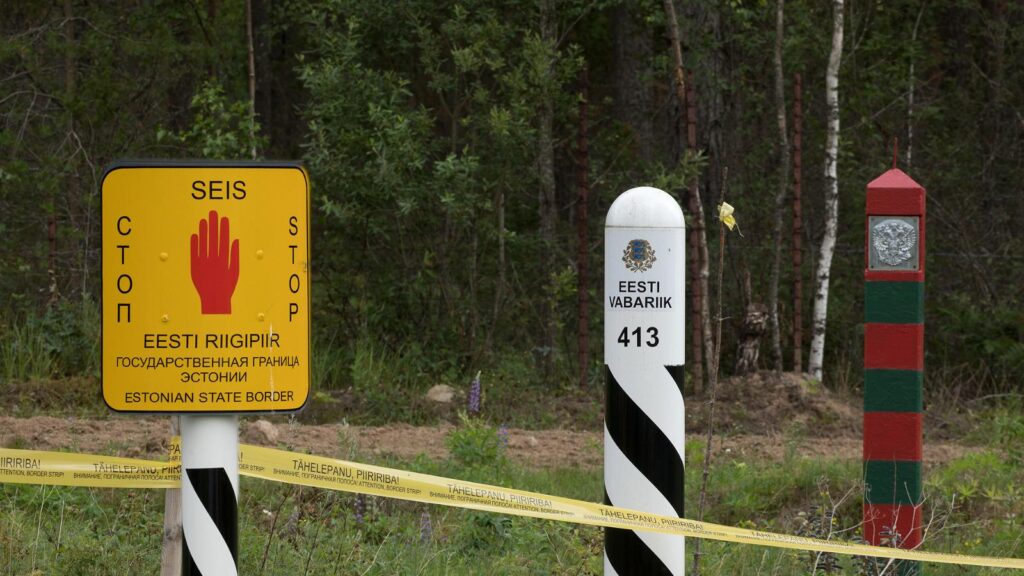
24 June 2023 – Estonia following the developments in Russia closely
Following the reports that Vladimir Putin’s former close ally Yevgeny Prigozhin and his Wagner paramilitary group has staged a mutiny against the Russian leadership, the Estonian foreign ministry issued a statement today saying that “Estonia was following the developments in Russia closely”. “We are aware of what is happening, we are following the situation closely and exchanging information with Allies,” the foreign minister Margus Tsahkna said in a statement.
The ministry also reiterated its recommendation to avoid travelling to Russia. Estonian citizens who are temporarily in Russia are advised to return to Estonia at the earliest opportunity and register their stay in Russia on the foreign ministry’s Reisi Targalt website.
On 23 June 2023, Prigozhin staged a mutiny against the Russian leadership after accusing Russian troops of attacking his men.
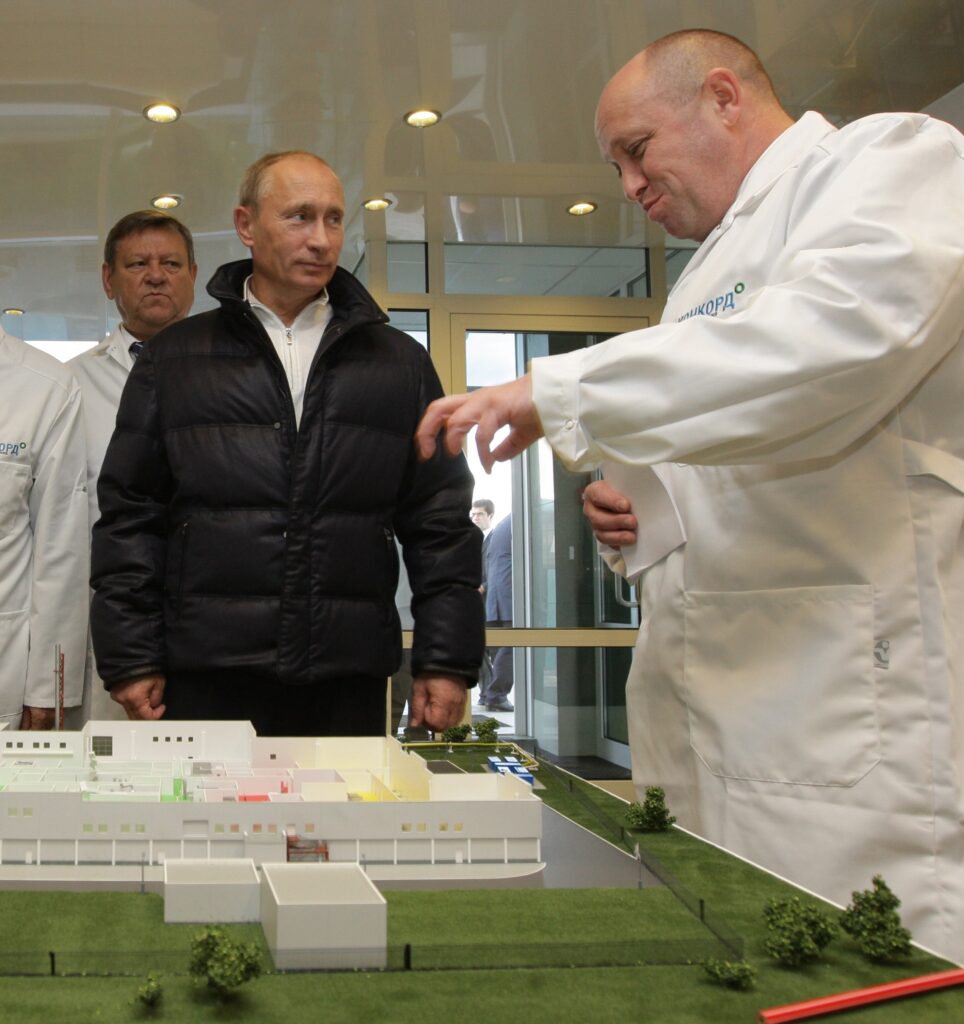
22 June 2023 – Estonia to send a field hospital and demining equipment to Ukraine
Estonia is sending a second field hospital to the Ukrainian armed forces, in collaboration with Iceland. Additionally, the Estonian aid package includes equipment for paramedics, deminers and counter-drone capabilities. The field hospital will be donated from the Estonian Defence Forces’ stock, and its replenishment will be fully funded by Iceland at a cost of €7.8 million.
According to the Estonian defence ministry, Estonia has provided Ukraine with military aid totalling around €400 million. Donations have included missiles for the Javelin anti-tank missile system, howitzers, anti-tank mines, anti-tank grenade launchers, vehicles, communication equipment, medical supplies, helmets and dry food packages.
14 June 2023 – Estonia’s Rescue Board and the foreign ministry send equipment to Ukraine to deal with the flood
The shipment is worth over €450,000 and comes in the wake of the destruction of the Nova Kakhovka dam. The aid package includes hoses, pumps, absorbents, boats, drysuits, waders and cork jackets. Since February 2022, Estonia has provided Ukraine with humanitarian aid worth over €23 million.
14 June 2023 – Ukrainian Cultural Days in Tallinn
For the second year in a row, the Ukrainian Cultural Days event was held in the Estonian capital, Tallinn, from 27 to 28 May, bringing together the Ukrainian community, Estonian locals and the international community.
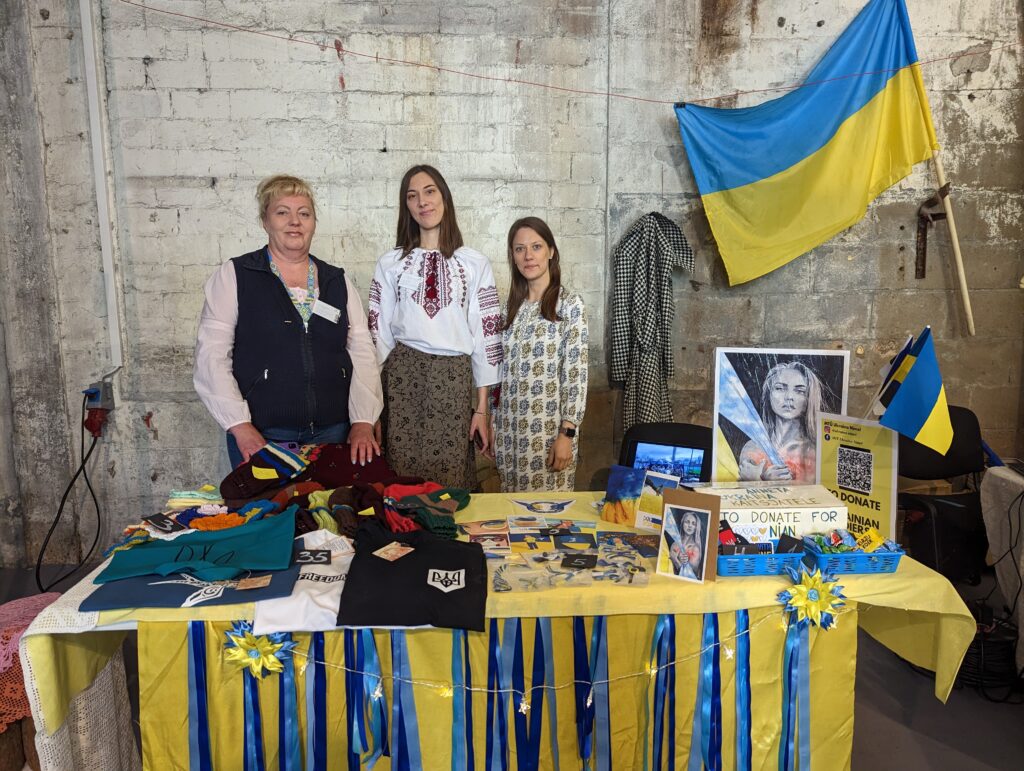
12 June 2023 – An Estonian-initiated exhibition about the Ukrainian refugees opens in London
“What Would You Take?”, a photographic exhibition that tells the story of twelve Ukrainian war refugees, has opened at the 12 Star Gallery at the Europe House in central London. The photos were taken by renowned Estonian photographer Kaupo Kikkas.
Co-authored by English writer Frances Stonor Saunders, the exhibition is accompanied by a short documentary film of the same name by Estonian documentary maker Heilika Pikkov. The exhibition, open until 20 October, includes portraits and photographs of objects that people have taken with them when they have left home. A collection of essays compiled by Saunders takes a closer look at the stories of escape.
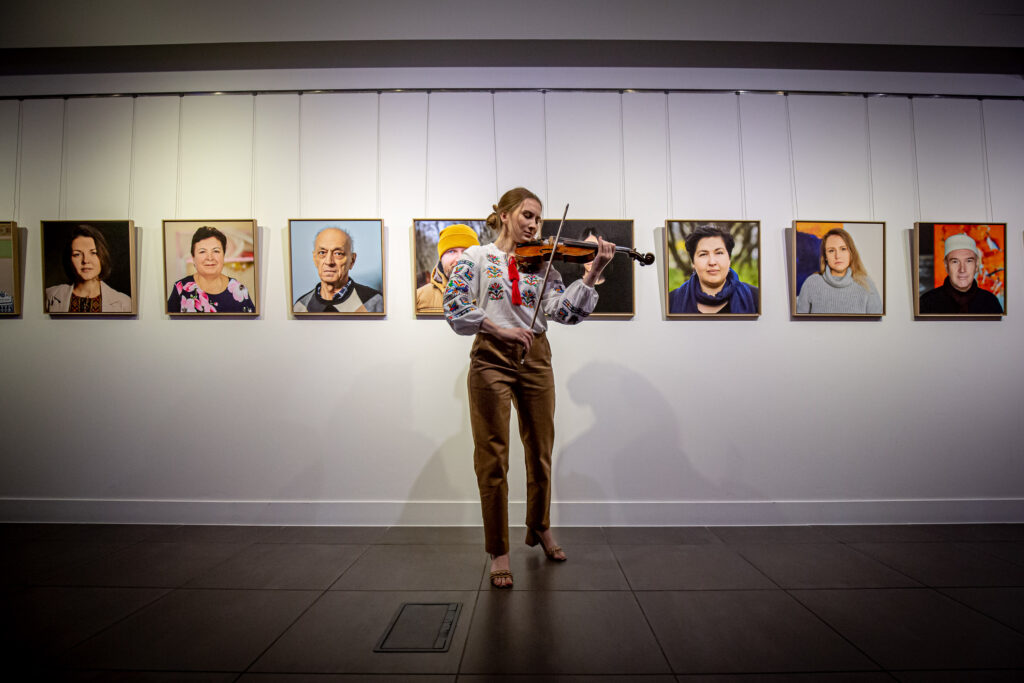
7 June 2023 – Estonian NGO collecting donations to evacuate people from Kherson
Estonian NGO Mondo is collecting donations to help evacuate people from the Kherson area in southern Ukraine where the breaching of a major dam has created massive floods and the lives of tens of thousands of people are in danger. “Ukraine needs help evacuating people and supporting the evacuees,” Mondo said in a statement. “The donations are welcomed in every amount – every euro counts.”
With the help of the donations, the Estonian NGO, in cooperation with its long-time partner, Vostok SOS, is evacuating people from the Kherson area to safer places. “In addition, the donations are crucial to support the evacuees with safe havens and other necessities of life – like mattresses, blankets, clean drinking water etc.” According to Mondo, the evacuation is especially difficult because the fighting has not stopped in the region.”
People can donate to help Ukrainians by transferring money to the Mondo bank account EE491010220099409013 (“Ukraina heaks” or “For Ukraine” in the memo field), through the Mondo crisis foundation, Paypal or the “Ma armastan aidata” (I love to help) environment.
The Nova Kakhovka dam, 58 kilometres (36 miles) up the Dnipro River in Russian-occupied Ukraine, was destroyed on 6 June. Both Ukraine and Russia blame each other for sabotaging the dam.
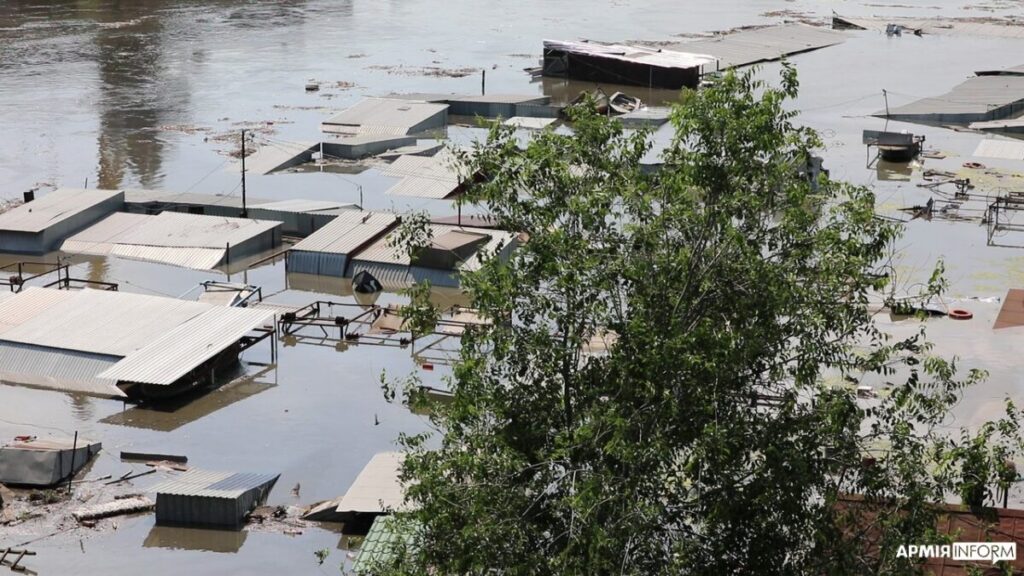
7 June 2023 – Ninety-three MPs submit a draft statement supporting a special tribunal
Today, Eerik-Niiles Kross, a member of the Foreign Affairs Committee of the Estonian parliament, submitted a draft statement for the parliamentary proceedings on behalf of 93 MPs, holding to account individually those involved in planning, preparation, launching and committing the crime of aggression against Ukraine, and calls on establishing for this a special international tribunal under the auspices of the UN.
The MPs underline in the draft statement that the Russian war of aggression against Ukraine is the most outrageous act of aggression in Europe since the Second World War and requires an adequate legal response. In their opinion, a crime of aggression is the supreme international crime, which is the root cause of all other crimes committed in Ukraine and leads to the commission of further serious crimes, and the prosecution of the perpetrators of this crime is the obligation of the international community as a whole.
“It is the duty of the countries of the world to hold to account individually those involved in planning, preparing, initiating or committing the crime of aggression against Ukraine, in addition to perpetrators of genocide, crimes against humanity, and war crimes,” the draft statement says.
3 June 2023 – Ukrainians thank Estonia with a huge roadside billboard
The Estonian ambassador to Ukraine, Kaimo Kuusk, tweeted that he noticed a huge billboard on the side of a road in Ukraine with the Estonian flag and the word “thanks” written in both Estonian and Ukrainian. “I’m melting,” Kuusk said in his tweet in Estonian, and “Thank you, dear Ukrainians” in the Ukrainian language.
2 June 2023 – Estonia’s FM opens an Estonian-built kindergarten in Ukraine
The Estonian foreign minister Margus Tsahkna, opened a kindergarten in the Ukrainian city of Ovruch in the Zhytomyr region, built in cooperation between the Estonian public and private sector, BNS reported.
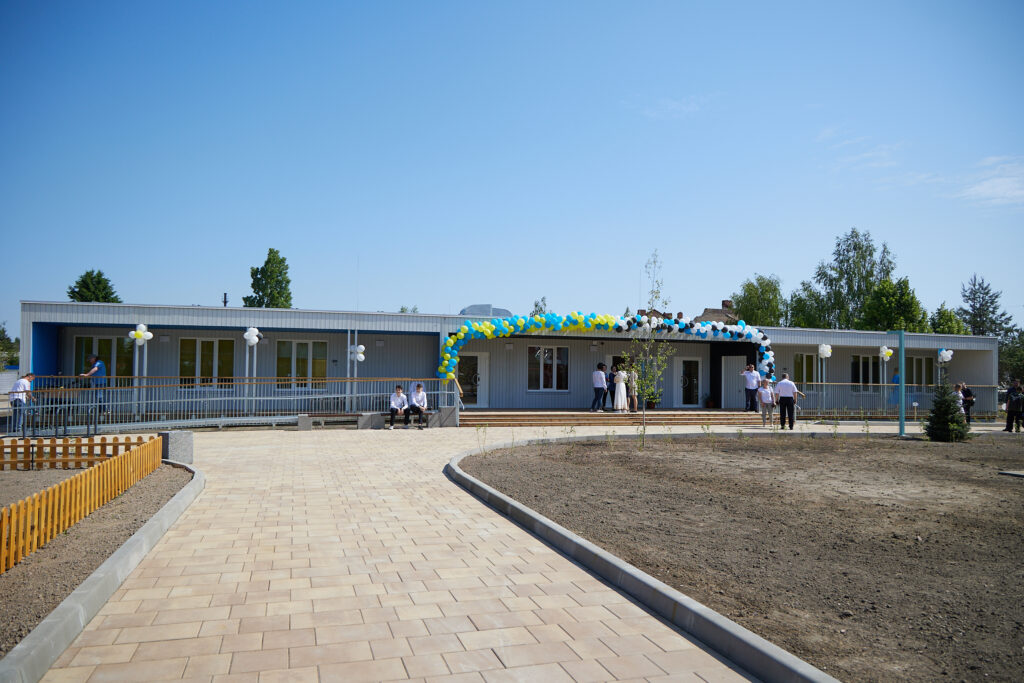
With the completion of the Ovruch kindergarten, Estonia becomes one of the first countries to have completed an educational facility as part of the reconstruction efforts in Ukraine. The project was funded by the foreign ministry that allocated €2.7 million for the construction of the first phase of the Ovruch kindergarten.
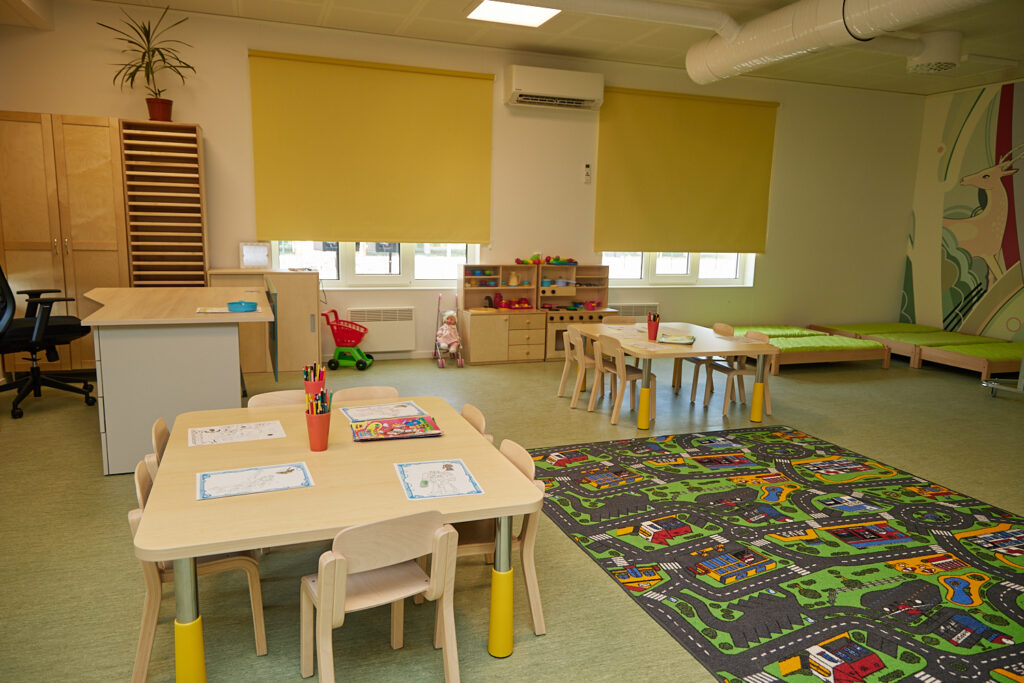

1 June 2023 – Podcast: Rebuilding Ukraine
In the latest episode of the Tallinn University Podcast, the host, Terry McDonald, is joined by Patrick J. Wilson, a senior advisor on Ukraine Recovery and Reconstruction for USAID, one of the largest official aid agencies in the world, to discuss the reconstruction of Ukraine.
23 May 2023 – Estonia donates an X-ray device to Ukraine for inspecting explosive devices
The Estonian Forensic Science Institute has donated to Ukraine a portable X-ray device enabling to inspect improvised explosive devices, unexploded ordnance on the battlefield and remnants thereof, thus contributing to the detection of war crimes, BNS reports. The device can be used to examine parts of rockets, artillery shells, as well as smaller weapons. The donated equipment is mobile, allowing for quick analysis of collected material near the crime scene and preservation of evidence for further investigation.
17 May 2023 – The Estonian president stresses the importance of a war damage register for Ukraine
Speaking at a Council of Europe summit, the Estonian president, Alar Karis said the new war damage register will help support Ukraine’s fight for justice. “In addition to the fight for freedom, Ukraine is also fighting for justice. The register of war damage caused by the Russian aggression, created by the Council of Europe at this summit, is an important step to support it,” Karis said at a high-level discussion with representatives of the US, Croatia, Finland, Ireland, the Netherlands, Slovenia, Sweden, Ukraine, the European Commission and the OSCE, held within the framework of the Council of Europe summit in Reykjavik, Iceland, according to BNS.
There can be no place for impunity, all criminals need to know that they will be held accountable, the Russian leadership must not be allowed to hide behind personal immunity, Karis said. “It is necessary to ensure that the war crimes committed by Russia in Ukraine are investigated, that the perpetrators are brought to justice, and an international special tribunal must be set up to bring them to justice,” he said.
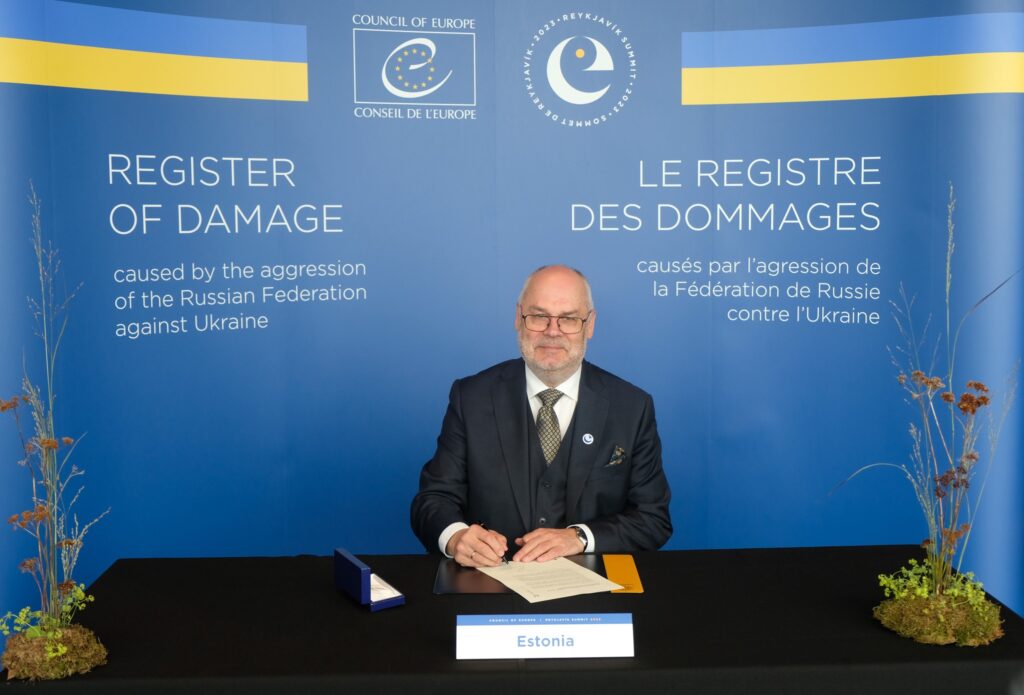
17 May 2023 – The Estonian parliament supports Ukraine’s NATO membership
The Estonian parliament passed with 92 votes in favour a statement on supporting Ukraine’s wish to join NATO as the only way to ensure the rules-based world order, lasting peace and the security of the democratic countries of Europe, BNS reported. In the statement submitted by 95 MPs, the parliament expresses determination to reinforce the sovereignty and territorial integrity of states in Europe and to achieve a lasting peace, and expresses its conviction that the politics of spheres of influence in Europe continues to pose a threat to the security of the continent.
According to the statement, the Estonian parliament proceeds from the goal set by NATO member states at the Bucharest Summit in 2008 that Ukraine will join the alliance, and takes into account the application for accession to NATO submitted by the government of Ukraine last year. Ukraine submitted the official application to join NATO on 30 September 2022.
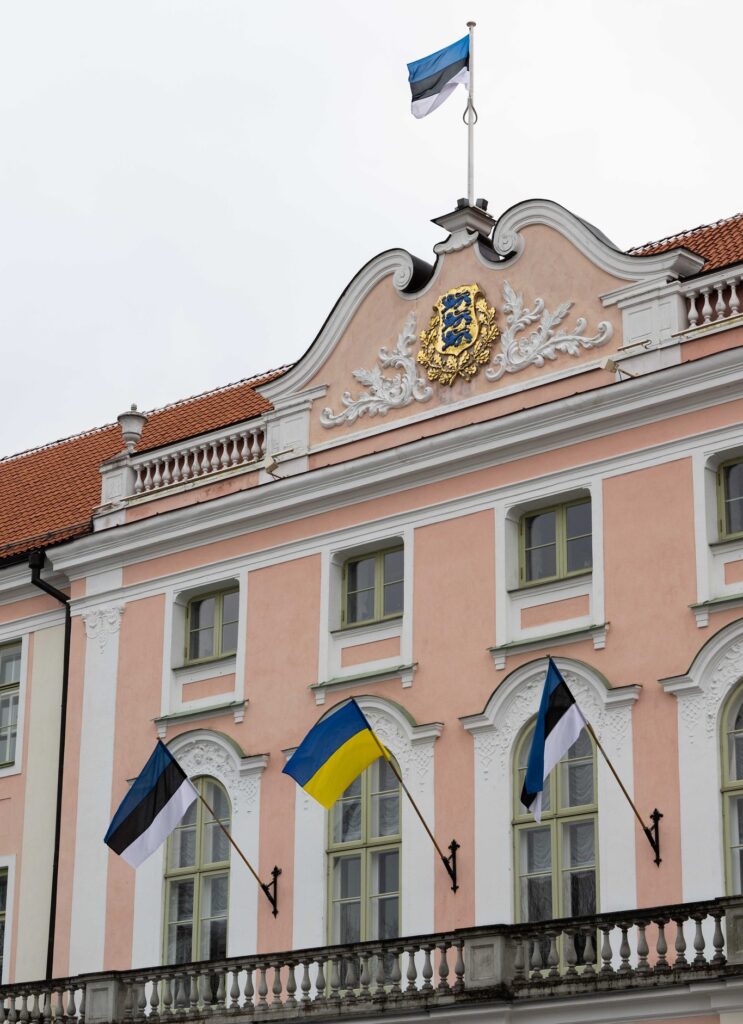
16 May 2023 – Report: Ukrainian war refugees have done well in Estonian labour market
Forty-four per cent of Ukrainian war refugees aged 20-64 who have been granted temporary protection by Estonia are in employment, compared with the EU average ratio of 30 per cent, a report by the Estonian social ministry shows. The ratio of war refugees in employment is increasing and their employment relationships are stable, which shows that they are coping well in the Estonian labour market, the ministry said, according to BNS.
The average profile of Ukrainian war refugees who have been arriving in Estonia from 2022 onward is different from the average profile of those who came here after 2014. While from 2014 to 2017, the refugees were mainly young men with a low level of educational attainment, the current Ukrainian war refugees include more women with a higher level of education, BNS reported.
The highest employment rate among war refugees who are beneficiaries of temporary protection is in the 35-39 age group. Almost half of all working Ukrainian refugees have found long-term jobs, with more than 200 days of employment on record. Also, the number of registered unemployed has decreased to one third of all Ukrainian refugees aged 20-64, and the trend is downwards.
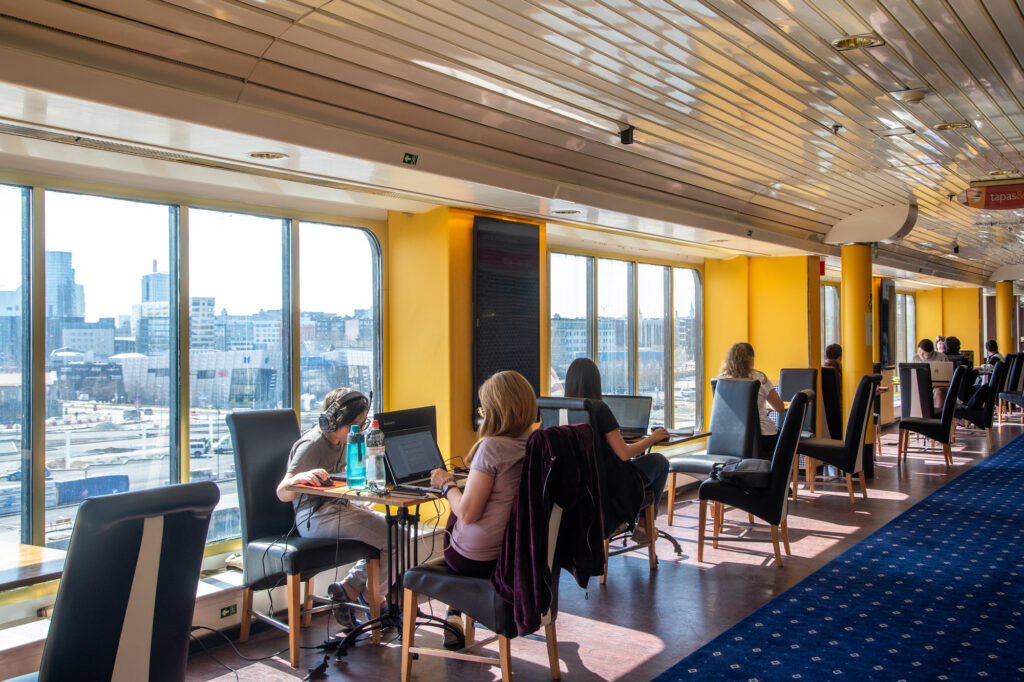
12 May 2023 – Live: Lennart Meri Conference in Tallinn
The Estonian capital hosts the 16th Lennart Meri Conference from 12 to 14 May – this year’s event features discussions on how the war in Ukraine has impacted the global balance of power; Estonian World will live stream the public discussions.
8 May 2023 – Jonatan Vseviov: Estonia invited Kalush Orchestra to “send a message” on Europe Day
While the 2023 Eurovision Song Contest gets underway in Liverpool, the UK, the reigning champions, Ukraine’s Kalush Orchestra, will be taking a detour to Tallinn before the live final for a free Europe Day concert at Freedom Square on 9 May. Adam Rang spoke to the person who issued their invitation, the secretary general of the Estonian foreign ministry, Jonatan Vseviov, to explore what 9 May means to Estonia and what message the country and Kalush Orchestra plan to send together.
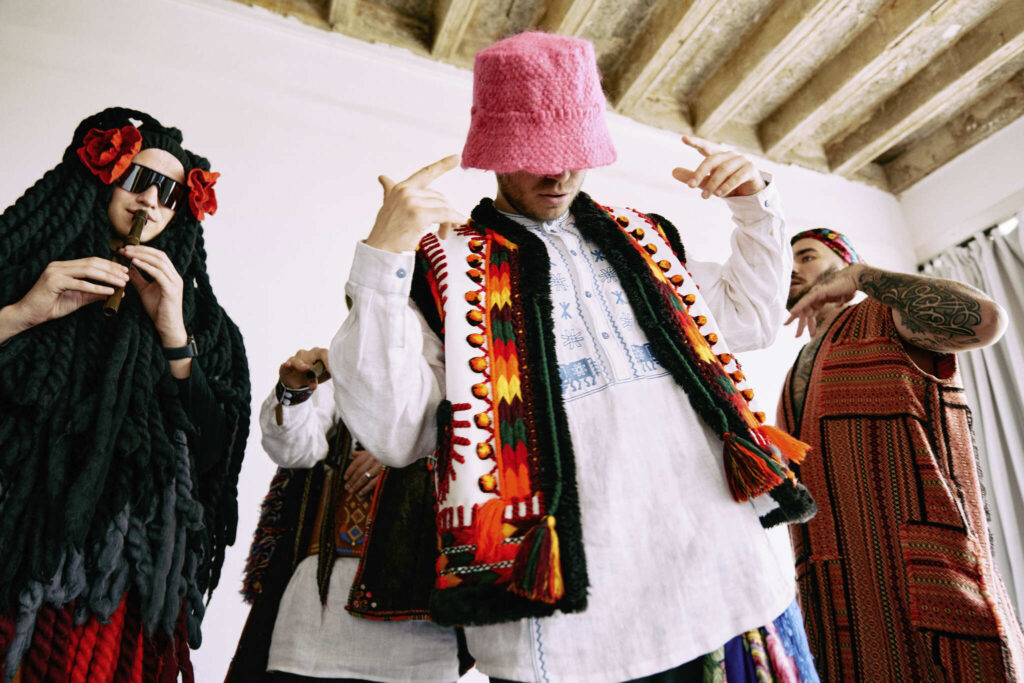
24 April 2023 – Estonian PM visits Bucha, gets overview of investigation into Russia’s crimes
The Estonian prime minister, Kaja Kallas, who is on a visit to Ukraine, visited the Bucha mass grave together with the Ukrainian interior minister, Ihor Klymenko, and received an overview of the investigation into Russian crimes, BNS reported. “This place is heartbreaking,” Kallas said. “The horrors of Bucha revealed to the whole world the nature of the Russian occupation, which Estonians and other countries in our region remember well from their own history. These atrocities are far from limited to Butcha.”
“The Russian leadership must be held accountable for the crime of aggression, genocide and crimes against humanity. Murders, rapes and deportations must be seen as tools of the Russian regime in its criminal policy against the Ukrainian people,” Kallas added. According to the prime minister, in addition to the fight for freedom, Ukraine must win the fight for justice.

21 April 2023 – Estonia and Ukraine sign a defence cooperation agreement
The Estonian and Ukrainian defence ministers, Hanno Pevkur and Oleskii Reznikov, respectively, signed a defence cooperation agreement between their countries today at the US air base in Ramstein, Germany, where the meeting of the Ukraine Defence Contact Group took place.
The agreement sets out continuing cooperation and information exchange in the areas of defence policy and planning, intelligence and situational awareness, defence education and training between Estonia and Ukraine.
The Ramstein Ukraine Defence Contact Group is a US-led format that met for the first time a year ago, having met twelve times to date. The objective of the meetings is to get an overview of Ukraine’s needs and the aid that donors are sending. In addition to NATO and EU allies, over 50 participating states include Japan, New Zealand, South Korea, Australia, Morocco, Qatar, and Israel.
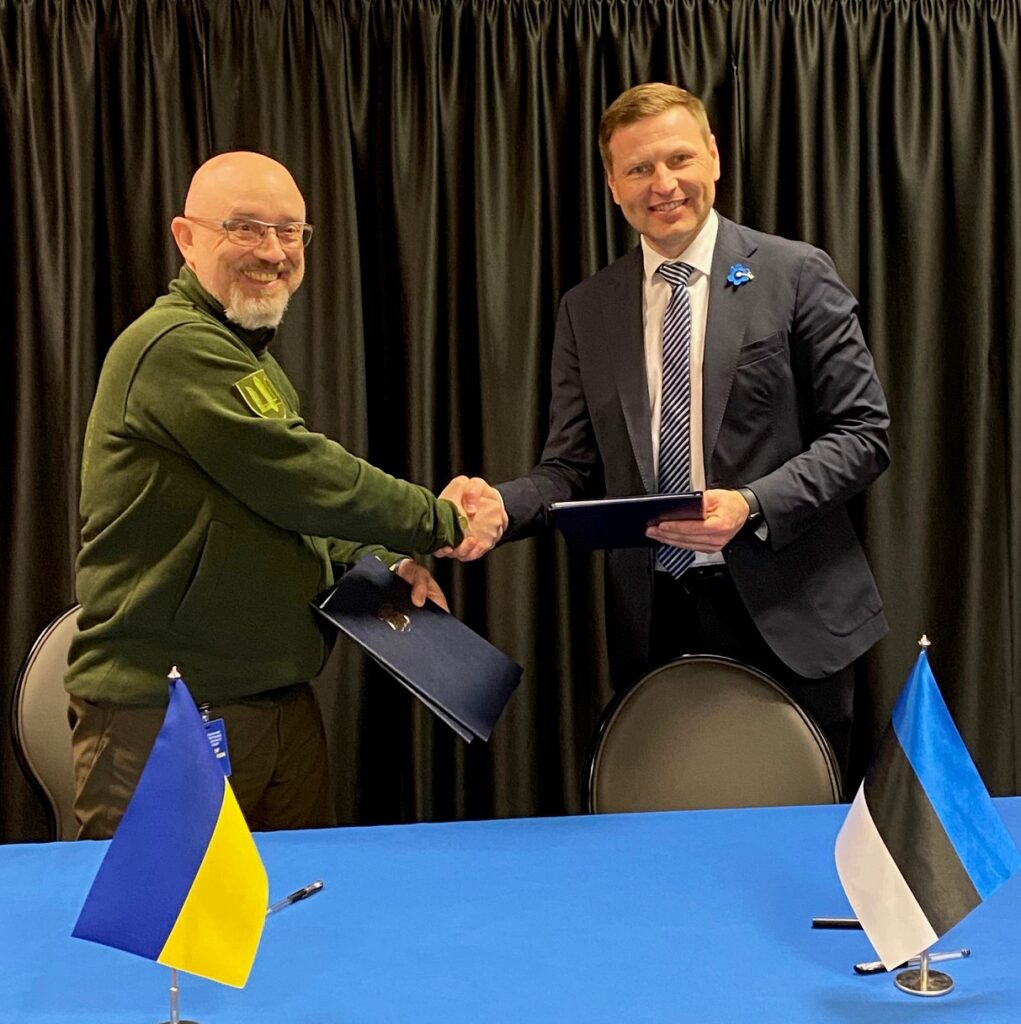
20 April 2023 – Estonia to send Ukraine urgently needed ammunition
Estonia is to send Ukraine the artillery ammunition it so urgently needs, as part of the European Union agreement to send Ukraine one million rounds of artillery ammunition, the Estonian government decided today. The newest aid package includes mainly 155mm ammunition. In addition, the country will donate night vision equipment and light weaponry ammunition to Ukraine.
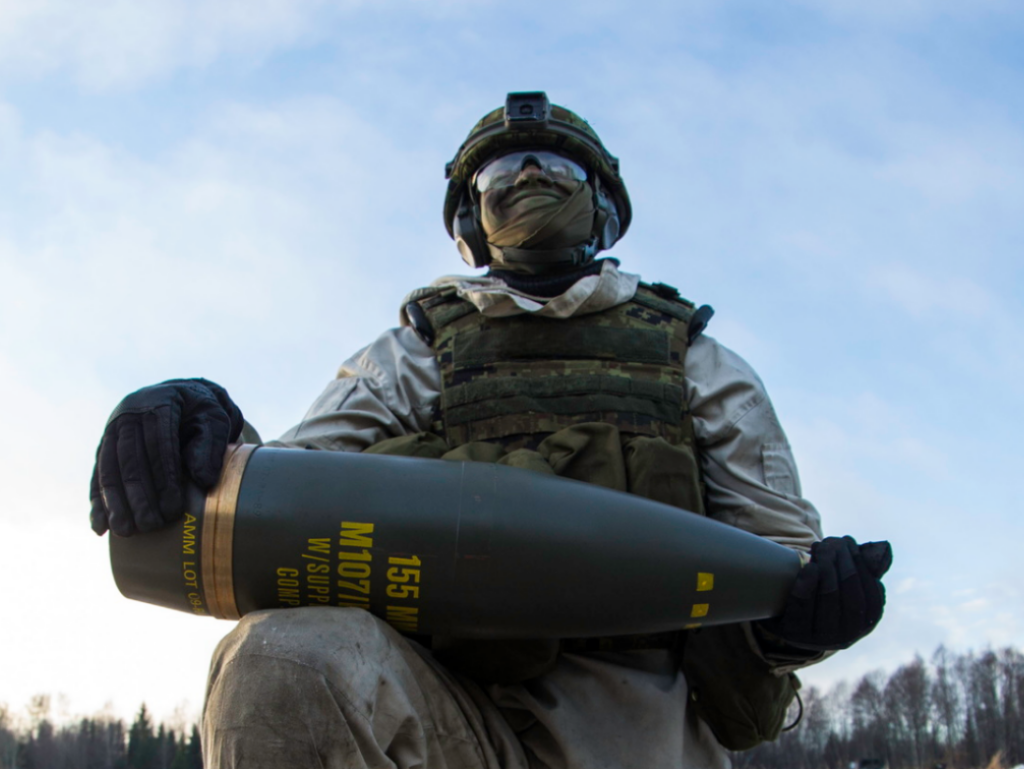
17 April 2023 – An exhibition on Ukrainian avant-garde art opens at Kumu
“Futuromarennia: Ukraine and Avant-Garde” at the Estonian modern art museum Kumu in Tallinn displays innovative artistic visions of the future that were born on the Ukrainian historical soil in the 1910s and 1920s.
The display includes more than 100 original artworks – paintings and drawings, designs for books and posters, theatre costumes and scenography – as well as historical photos and video materials. In addition, contemporary reconstructions in embroidery, a 3D model, documentary mappings of historical “places of strength” and two site-specific multimedia installations will help viewers grasp the phenomenon of the avant-garde in Ukraine not only in the historical, but also in the present context.
“Radical dreams of the future in painting, scenography, architecture, literature and cinema – artworks by Oleksandra Ekster, David Burliuk, Oleksandr Bohomazov, Vasyl Yermylov and many other remarkable authors – come from the collections of museums that continue their work amid ongoing attacks by the Russian aggressors,” Kumu said in a statement.
The exhibition was opened via a video greeting by Olena Zelenska, the Ukrainian president Volodymyr Zelensky’s wife on 6 April and will remain open until 10 September 2023.
3 April 2023 – A Ukrainian refugee organises a conference in Estonia to empower women
Khrystyna Didukh, a Ukrainian entrepreneur who was given safe haven in Estonia last year, organises a conference called Brave2Bloom in Tallinn from 3-4 April – to empower female entrepreneurs.

3 April 2023 – The Estonian Refugee Council has helped 215,000 people in Ukraine
The Estonian Refugee Council has provided financial aid to approximately 215,000 people in Ukraine to date, BNS reported. The organisation has mediated some €39 million worth of support to Ukraine, equaling around €61 per household member per month. During the winter, the council supported around 5,000 vulnerable households in Ukraine and 250 in Georgia, distributing over €1.8 million in financial assistance.
3 April 2023 – 6,099 Ukrainian refugees registered as unemployed in Estonia
As of yesterday, 6,099 beneficiaries of international protection linked to Ukraine had registered as unemployed with the Estonian Unemployment Insurance Fund, accounting for 11.2% of all registered unemployed in Estonia, BNS reported. The status of unemployed has been terminated for 13,460 Ukrainian refugees in total, including for 9,930 due to entering employment.
A total of 58.4% of the war refugees registered as unemployed were looking for work in Harju County, 11.5% in Ida-Viru County and 9.6% in Tartu County. Of the registered unemployed beneficiaries of international protection, 77.4% are women and 22.6% men.
3 April 2023 – Estonia awards the Ukrainian ambassador the Cross of Merit
The Estonian foreign minister, Urmas Reinsalu, today presented the Ukrainian ambassador to Estonia, Mariana Betsa, with the Cross of Merit of the foreign ministry. “Mariana Betsa has been the ambassador to Estonia since 2018 and has worked tirelessly to advance relations between Estonia and Ukraine. You have been the spokesperson for your country’s creativity, beauty and resilience, and have represented Ukraine with dignity, as it fights for its survival in the war against the brutal aggressor Russia,” Reinsalu said.
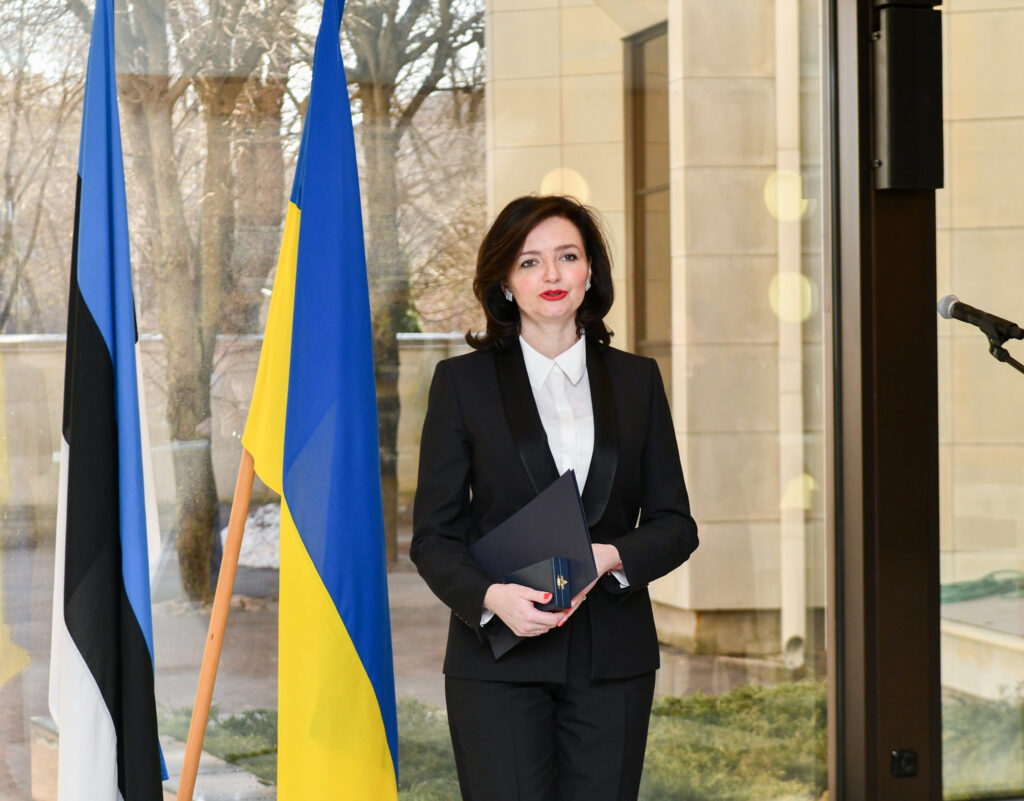
24 March 2023 – Europe to send Ukraine a million rounds over a year
Today in Brussels at the Foreign Affairs Council, the foreign and defence ministers of the European Union reached agreement on the joint procurement of one million 155 mm calibre rounds of ammunition for Ukraine. According to Estonian defence minister, Hanno Pevkur, the aim of the initiative from Estonia is to provide Ukraine urgently needed military aid as fast as possible and increase the European defence industry’s manufacturing capabilities.
“Above all, Ukraine needs ammunition right now and today we put the clear objective in writing – to send at least one million 155 mm calibre rounds of ammunition to Ukraine within the next 12 months,” Pevkur said.
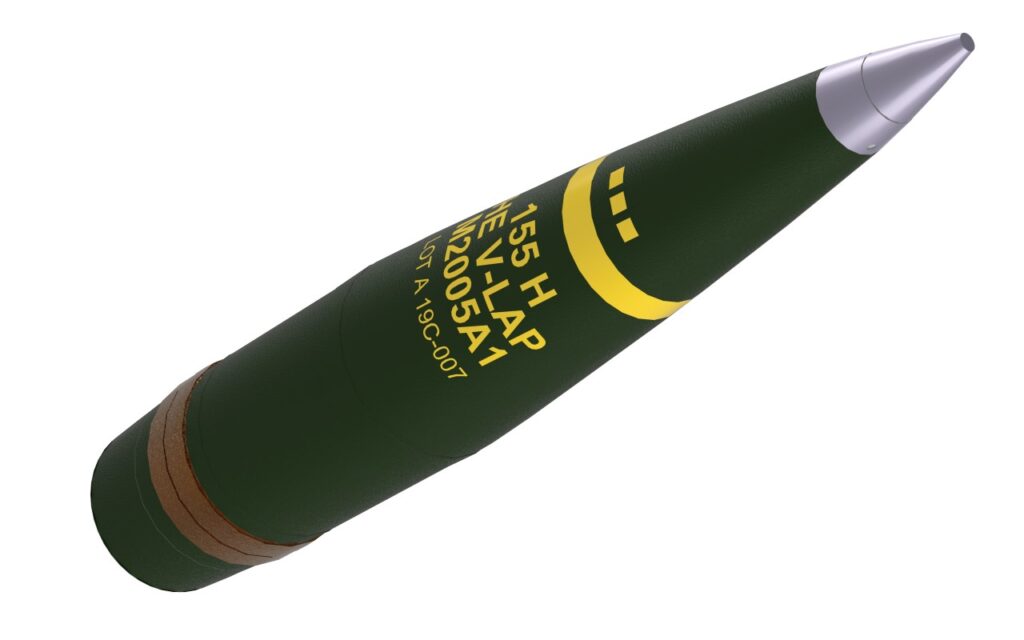
16 March 2023 – Estonia to send sniper weapons and special equipment to Ukraine
Estonia is planning to send another package of military assistance to Ukraine, this time consisting of, among other things, sniper weapons and special forces equipment. Estonia’s newest assistance package includes semi-automatic rifles, sniper rifles, sights, binoculars, ammunition, individual and special equipment, patrol boats and thermal cameras. In addition, medical equipment is being donated. The total value of the military aid is €494,300.
16 March 2023 – Ukrainian troops to receive a mobile sauna and a laundry unit made in Estonia
A mobile sauna and laundry unit built for the front line fighting units of Ukraine will start its journey to Ukraine from Tartu on Friday and is slated to be handed over near Kyiv on 20 March, BNS reported. The complex provides facilities for 50-60 troops to take a sauna and wash themselves, plus get 50 sets of uniforms laundered, in one day, spokespeople for the Estonian Defence League volunteer corps said.
The sauna complex will serve a battalion of Crimean Tatar volunteers fighting the invasion in Ukraine. At their request, the complex consists of two containers transported by a single vehicle. This allows for a faster response and more effective redeployment.

14 March 2022 – The first Estonian dies in Ukraine
On 7 March, Estonian Ivo Jurak was killed in Ukraine, the first Estonian to die in the war. Jurak had been fighting in the Ukrainian Foreign Legion since last autumn. He was killed near Bakhmut in Russian artillery fire.
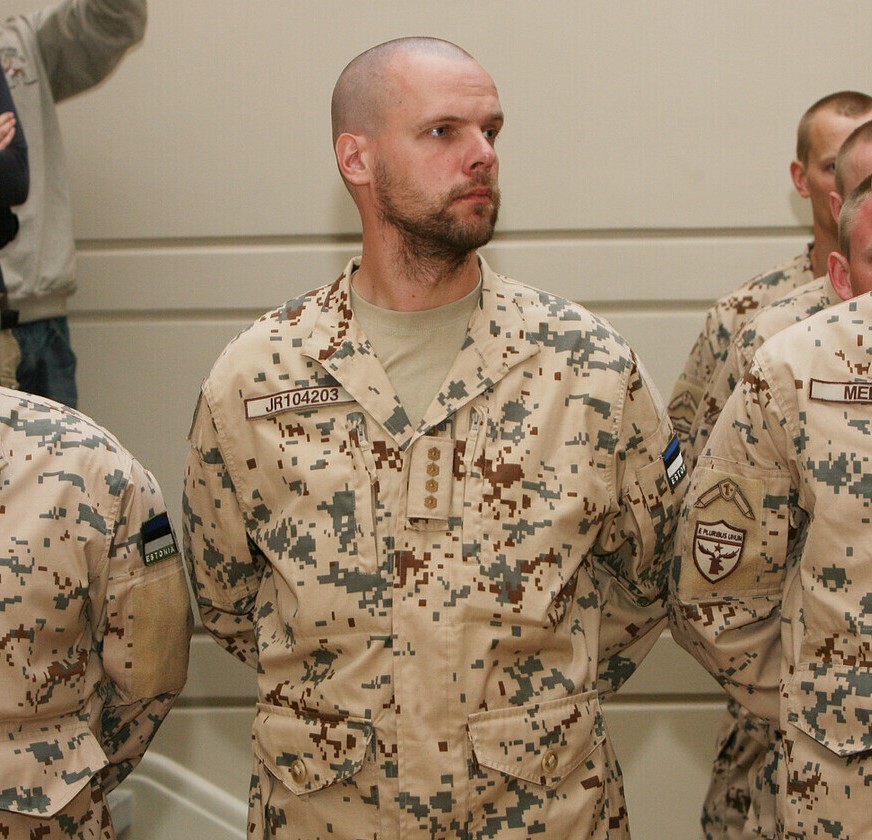
9 March 2023 – Support for the intake of Ukrainian refugees has fallen in Estonia
According to a survey commissioned by the Estonian Government Office, support for the intake of Ukrainian refugees in Estonia has fallen to its lowest level in the last 12 months – 67% (76% of Estonians and 48% of other nationalities).
Allied military assistance for Ukraine is supported by 66% of the population (85% of Estonians, 27% of other nationalities), while 80% support the provision of humanitarian assistance (88% of Estonians, 64% of other nationalities).
People’s sense of security has also fallen – just 47% feel that Estonia can consider itself safe at present, with 46% of Estonians and 50% of other nationalities feeling this way.
9 March 2023 – Photo exhibition with stories of Ukrainian war refugees opens in Tallinn
On Friday, 10 March, the photo exhibition “I choose life” will open on Tallinn’s Freedom Square, depicting Ukrainians who fled to Estonia from the war and their stories. The exhibition will be open until 25 March.
Natalia Fomina, a Ukrainian photographer who took part in the photo project, said that for her the project has been an inspiring experience. “I heard a lot of interesting stories and everyone has their own pains and experiences. People don’t stand still when they are in another country, they evolve, improve, learn the language, expand their field of activity, acquire new professions. I believe that Ukrainians inspire other nations with their courage and faith in a better future,” she said in a statement.
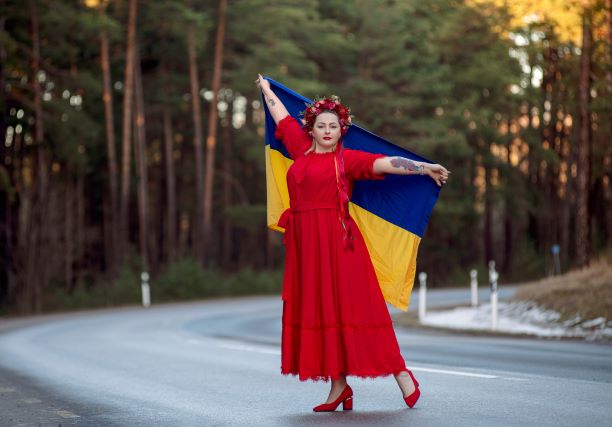
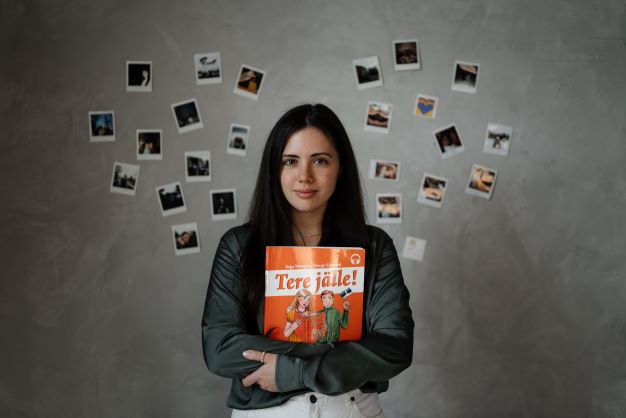
24 February 2022 – Estonia’s central bank supports Ukraine from a coin sale
Eesti Pank, Estonia’s central bank, has transferred a further 140,550 euros to the Ukrainian central bank – a money that was received from sales of the coin card holding the two-euro coin dedicated to Ukraine. Since July 2022, a little over 35,000 of the coin cards have been sold and in total, the Bank of Estonia has sent over 495,000 euros to Ukraine.
The coin card has been bought in 53 different countries – mostly in Estonia, Germany, France, Latvia, Spain, Slovakia, Ukraine, Finland, the US and Italy. The specially dedicated coin was designed by a young Ukrainian refugee studying at the Estonian Academy of Arts, Daria Titova, and the coin card was designed by Vladimir Taiger.
Each coin card costs 18 euros and can be bought from the Omniva online store.
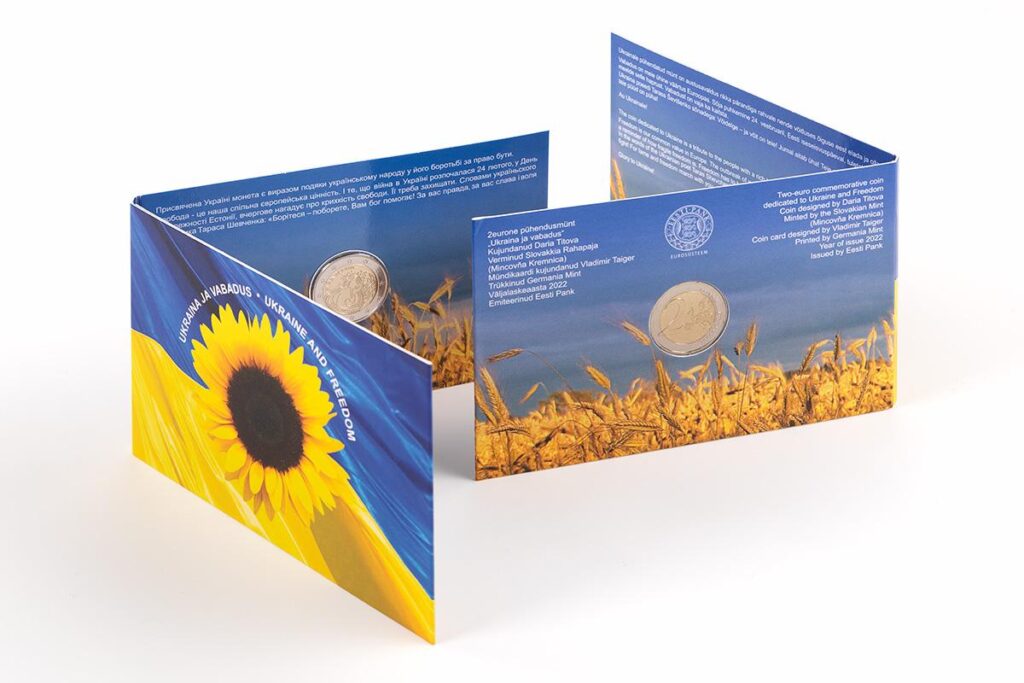
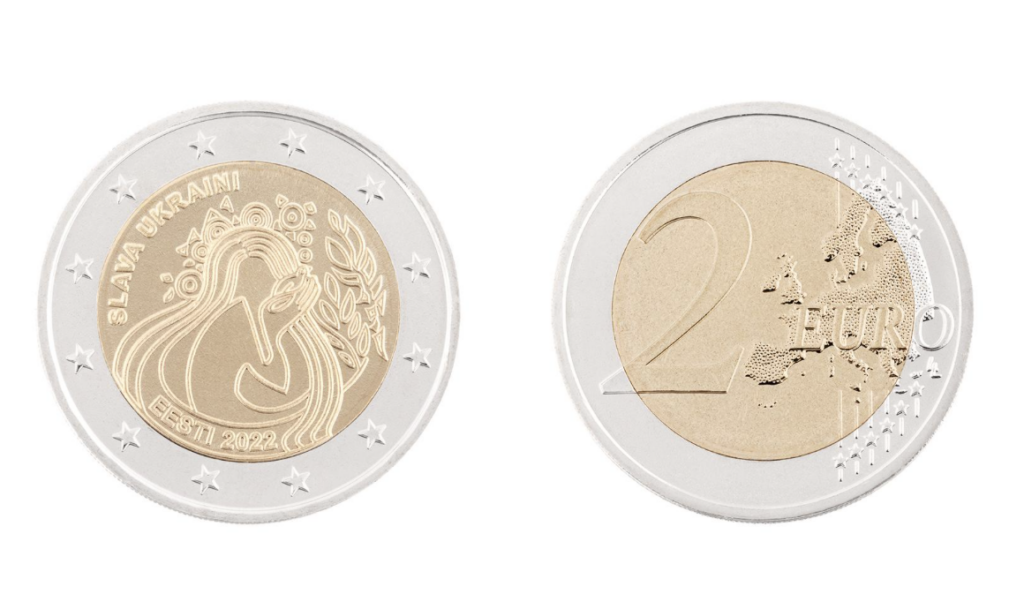
23 February 2023 – Kallas: Estonia’s defense starts from Ukraine
Estonia’s defence “starts from Ukraine”, the country’s prime minister, Kaja Kallas, said in an interview with AFP on the eve of the anniversary of Russia’s invasion of Ukraine. “We see clearly that our defense right now starts also from Ukraine because Ukraine is fighting with the same threat… So as long as they are fighting there, they are weakening the same enemy as we have,” she said, according to BNS.
Asked about Estonia’s security concerns, Kallas stressed the need to “totally discredit the tool of aggression”. “If this aggression pays off in Ukraine, then it serves as an invitation to use it elsewhere,” Kallas said. “Because if it is so that you… go attack another country, another sovereign country, and then you walk away with more territories, more land, more natural resources, then the signal to… all the aggressors, or would-be aggressors, in the world, is that this pays off, use it.”
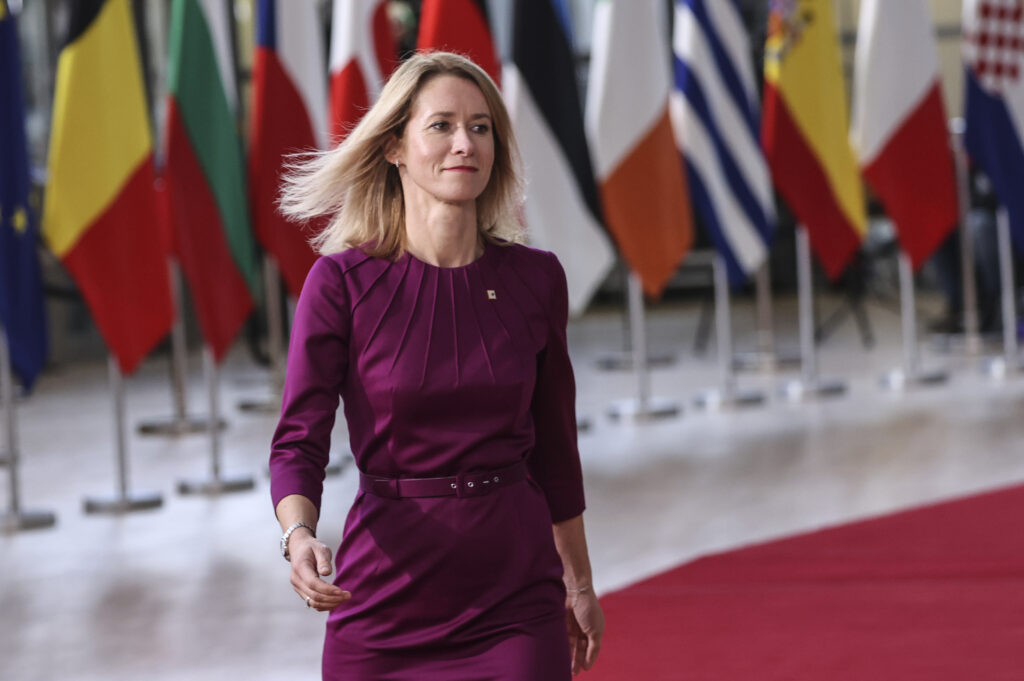
22 February 2022 – A shortage of teachers is limiting study opportunities for Ukrainian children
According to the report, “Ukrainian Children in the Estonian Education System”, published by the Foresight Centre, the Estonian schools and kindergartens are generally managing well the extra workload that came with the Ukrainian refugee students, but the shortage of teachers and support specialists is putting schools in a very unequal position when it comes to Ukrainian children.
In the opinion of the schools that have accepted Ukrainian children, the Ukrainian pupils have adapted well or fairly well.
“The largest number of Ukrainian refugee children have come to the municipalities where the number of pupils per teacher was already the highest, which is making the problem of teacher shortage and overburden more acute. The main challenges for teachers are the language barrier and teaching in bilingual classrooms, the big differences between the Estonian and Ukrainian curricula, and helping the Ukrainian students catch up with others,” Eneli Kindsiko, an expert of the Foresight Centre, a think tank at the Estonian parliament, said in a statement.
The workload of Estonian teachers is eased by Ukrainian education workers and war refugee volunteers, who are helping translate teaching materials and give lessons or act as support persons for children – 104 war refugees have taken up work in the schools of Estonia.
In mid-February, 8,463 Ukrainian children were studying in the educational institutions of Estonia. Nearly half, or 45.5% of Ukrainian children in Estonia go to school in Tallinn, followed by Tartu (9.9%) and Pärnu (4.5%).
63% of Ukrainian children are studying in Estonian. “However, it should be noted that even if the children are going to schools where Estonian is the language of instruction, they may still receive instruction in Russian or Ukrainian to some extent, and a large proportion of pupils are studying via the language immersion method,” Kindsiko said.
The experience perceived by teachers and heads of school so far has confirmed that the easiest way to integrate Ukrainian children into the education system is in pre-school education, that is, at a younger age. The more complex the content of a subject becomes, the more difficult it is to participate in the studies in the Estonian language without having a basic level of language skills. However, the majority of the children who have arrived from Ukraine are of a basic education age (65%), and 24% of all war refugee children that have arrived in Estonia are in pre-school education.

21 February 2023 – Estonia joins 34 states in pledge to support a ban on Russia and Belarus in international sports events
The Estonian culture minister, Piret Hartman, has joined a joint statement by sports ministers and senior representatives of 34 states stressing that the full return of Russian and Belarusian athletes to international sports is in the hands of the said aggressor states and depends on them ending the war they have started, BNS reported.
The joint statement says the situation on the ground in Ukraine has only worsened since February 2022. The ministers said they firmly believed that, given there has been no change in the situation regarding the Russian aggression in Ukraine, and as an imperative for fairness and solidarity towards the Ukrainian athletes whose facilities have been destroyed and who have had to leave their country, or stay to fight for the defence of Ukraine in which very many have lost their lives, there is no practical reason to move away from the exclusion regime for Russian and Belarusian athletes.
“Through their choices, action and ongoing invasion, Russia broke the Olympic Truce that has been continuously supported by the United Nations General Assembly since 1993,” they said, according to BNS.
“Russia’s aggression and crimes continue in the heart of Europe in Ukraine. We have clearly expressed our position with like-minded countries already at the start of the war that Russian and Belarusian athletes have no place at the starting line together with our athletes. Estonia’s position has not changed in this regard. We must continuously do everything we can to prevent the athletes of aggressor states from returning to the Olympic Games,” Hartman said.
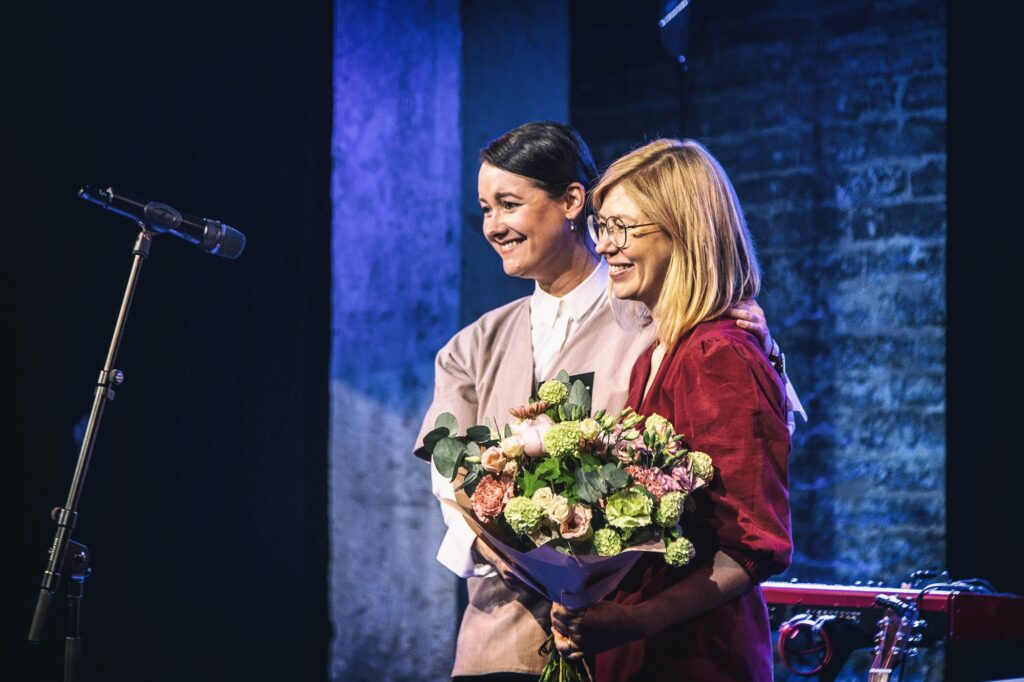
17 February 2023 – Kallas: Lasting peace possible only when Russia has been pushed out
The Estonian prime minister, Kaja Kallas, said in meetings at the Munich Security Conference that lasting peace in Europe is only possible when Russia is finally pushed out, when Russia’s crimes have been punished and when grey areas in European security become a thing of the past. “Our unity over the past year has been unwavering. There is no sign that Russia will stop its war of conquest. Hardships will continue, and it is all the more important that we keep our united front.”
According to her, the focus at the moment is to turn the situation on the battlefield in favour of Ukraine. Kallas said all allies must review their stockpiles and EU member states should find a quick way to jointly procure ammunition for Ukraine. “We want to jointly procure one million artillery shells for Ukraine. This could cost approximately €4 billion. It would contribute to Ukraine’s success on the battlefield and would also strengthen the European defence industry and increase its production capacity.”
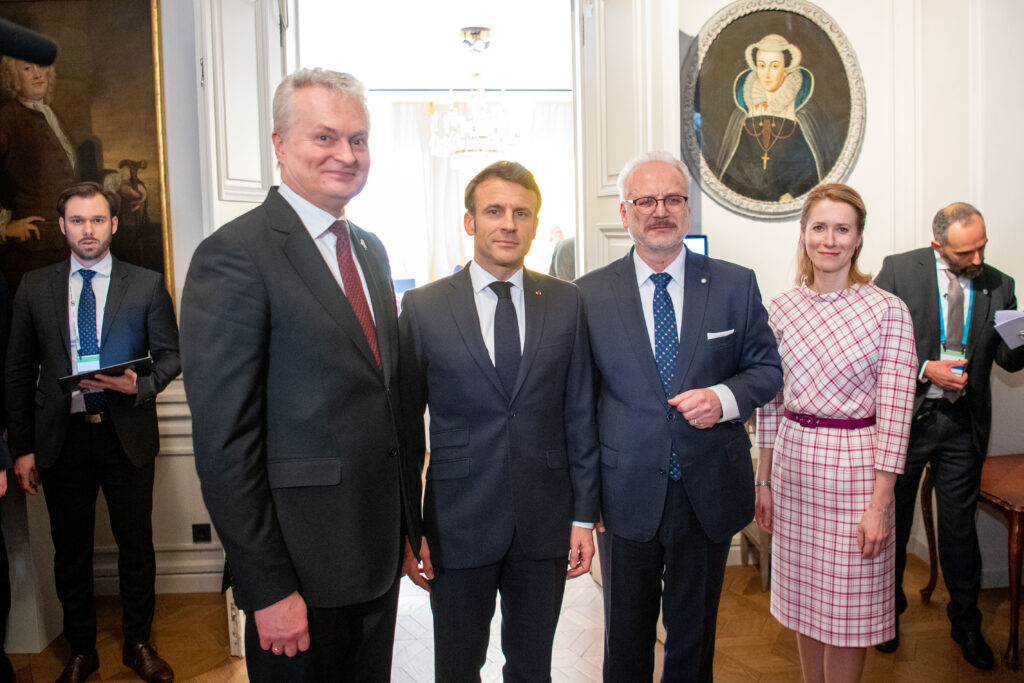
17 February 2023 – Reinsalu: Ukraine’s future must be in NATO
The Estonian foreign minister, Urmas Reinsalu, said in meetings at the Munich Security Conference in Germany that Ukraine must be given a clear and straightforward roadmap to NATO at the summit of the alliance. He also said Ukraine needed weapons and ammunitions in particular now to protect the security of Ukraine and Europe, and for greater efficiency, the European Union could provide them via a joint procurement.
Reinsalu also talked about holding Russia accountable for the crimes committed in Ukraine. “A country that has committed and denied genocide cannot be allowed to repeat its crimes in the country where it has already committed them.”
15 February 2023 – Ninety-four MPs draft a statement in support of Ukrainians
Today, 94 members of the Estonian parliament submitted a draft statement to mark the passing of a year from the beginning of the full-scale military aggression by Russia in Ukraine and to show their respect for the heroic people of Ukraine who are waging a selfless fight.
According to the statement, the parliament condemns the Russian Federation’s ongoing military aggression and expresses deep sympathy to the Ukrainian people whose close ones have fallen in the battles with the powerful aggressor or suffered in the genocide committed against the peaceful population.
“The bravery of the Ukrainian people obliges the countries respecting democratic values to unity and continued cooperation for the victory of Ukraine. The parliament calls on the international community to support Ukraine militarily, politically and economically more decisively than before in order to achieve this goal more quickly,” the draft statement says.
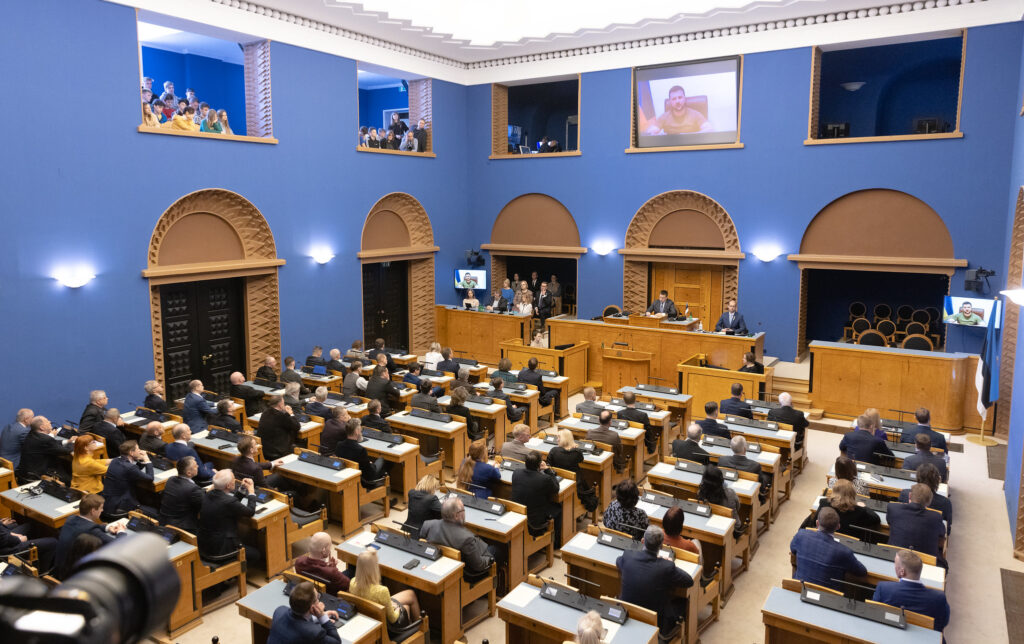
14 February 2023 – Reinsalu: Estonia’s foreign policy focuses on Ukraine’s victory and Russia’s defeat
The Estonian foreign minister, Urmas Reinsalu, said in a foreign policy speech at the country’s parliament that Estonia’s foreign policy focuses on Ukraine’s victory and Russia’s defeat. “We have provided large calibre and modern weapons. Providing weapons is central and Estonia has been very visible in this regard. Estonia’s military aid to Ukraine has reached 1% of Estonia’s GDP. As early as last November, I called on NATO allies to follow Estonia’s example and I will continue to do so. We must support Ukraine with heavy weaponry. This includes fighter aircraft,” Reinsalu said.
He also underlined that Russia’s political and military leadership that has launched a war of aggression against Ukraine must be brought to justice, including the Russian dictator, Vladimir Putin, himself. “We are supporting Ukraine’s efforts to establish a trans-regional international special tribunal. The first step is opening an office of a temporary prosecutor in The Hague, which would be in charge of collecting and preserving evidence of crimes of aggression,” he said.
9 February – Estonian drones join Ukraine’s “drone army”
The first nine drones provided by Estonian businesses and residents have joined Ukraine’s “army of drones”, a campaign that aims to procure thousands of drones to monitor the frontline in Ukraine and provide an effective response to Russian attacks; the next 10 drones are on their way to Ukraine.
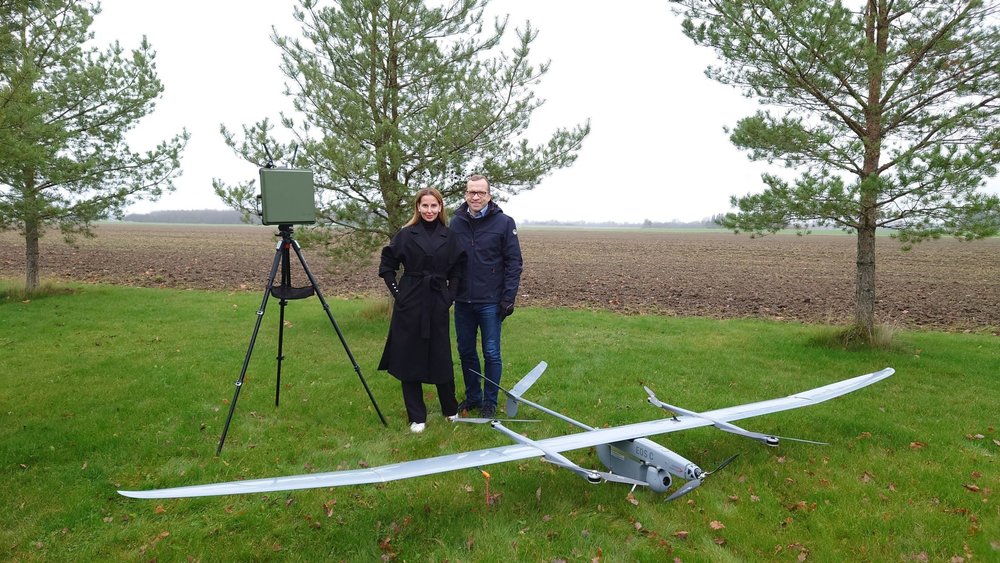
1 February 2023 – Estonia summons the Iranian ambassador over Ukraine
The Estonian foreign ministry today summoned the ambassador of Iran to express strong condemnation about Iran’s support to Russia in its aggression against Ukraine and the wide-spread human rights violations in Iran. “Estonia unequivocally condemns any support to Russia in its aggression against Ukraine, including Iran’s decision to supply Russia with combat drones. The use of combat drones has caused numerous civilian casualties and extensive damage to Ukraine’s infrastructure,” the Estonian foreign minister, Urmas Reinsalu, said.
“Estonia calls on the government of Iran to completely end all support for this unjustified and unprovoked aggression. Additionally, Estonia considers the repressive and violent methods of Iranian authorities in suppressing protests in the country unacceptable. The protection of human rights is the immutable responsibility of all governments of UN member states. We condemn the executions and the wave of violence against Iranian citizens and residents, which has led to hundreds of deaths.”
29 January 2023 – Reinsalu: Many more restrictions need to be applied to Russia
The Estonian foreign minister, Urmas Reinsalu, believes that in addition to Russian nuclear energy, restrictions should also be placed on Russian banks and the media, as well as the gold and metals business, BNS reports.
“Estonia has submitted in the past and will continue to demand the imposition of sanctions on Russian nuclear energy. We also talked about this goal with our Polish-Baltic colleagues this week. Furthermore, a complete ban on Russian banks in the SWIFT system, Russian propaganda channels, the business of the gold industry and metal industry is necessary,” Reinsalu said.
23 January 2023 – Russia expels the Estonian ambassador
The Estonian ambassador to Moscow, Margus Laidre has been told to leave Russia on 7 February, the Russian foreign ministry said on 23 January; Estonia said it will not back down on the principle of parity, which means the ambassador of Russia must also leave Estonia on the same date.
“In recent years, the Estonian leadership has been deliberately destroying relations with Russia. With its full russophobia and incitement of hatred against our country, Tallinn has risen to a new level in international politics,” the Russian ministry said in a statement.
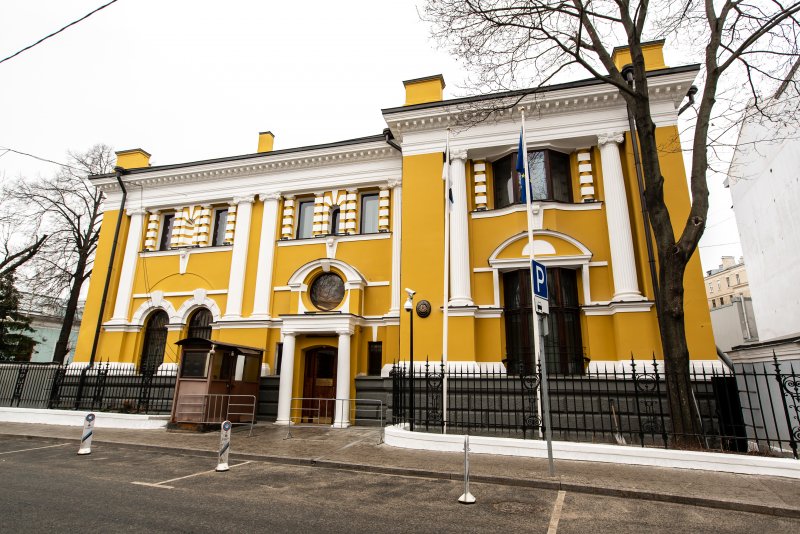
22 January 2023 – Around 100 HIV-positive Ukrainian refugees receive treatment in Estonia
Since Russia’s invasion of Ukraine last year, tens of thousands of refugees have wound up in Estonia, around 100 of whom are receiving treatment here for HIV, BNS reports. Most had already been receiving treatment in Ukraine and it was crucial that they not run out of pills.
“Once it’s begun, the person shouldn’t stop treatment even for a day,” Latsin Alijev, chairman of the board of the Estonian Network of People Living with HIV and support person, said. “Medication must be available, so that the person doesn’t develop resistance if they suddenly stop taking them.”
19 January 2023 – Estonia’s military support will increase to more than one per cent of GDP
The Estonian government will provide Ukraine with another military aid package, including remote fire and anti-tank weapons as well as ammunition worth a total of €113 million. Estonia’s military assistance to Ukraine will increase to 370 million euros, or slightly more than one per cent of Estonia’s gross domestic product.
“If Ukraine fell, freedom would also be in danger in other parts of the world. By helping Ukraine to defend its independence, we are defending the right to freedom and democracy of all countries, including Estonia,” the Estonian prime minister, Kaja Kallas, said in a statement, adding that Ukraine has asked for this help from Estonia directly.
Estonia is applying for funds from the European Peace Facility for the replacement of equipment.

16 January 2023 – Foreign ministry: Ukraine’s victory is the security guarantee for all of Europe
Jonatan Vseviov, the secretary-general of the Estonian foreign ministry, was on a visit to Ukraine last week to discuss further cooperation to support Ukraine and continuing to raise the cost of the aggression for Russia.
“Ukraine’s victory is the security guarantee of all of Europe: it determines the fate of not just Ukraine, but the future of Europe’s security architecture. Peace is ensured when Ukraine’s sovereignty and territorial integrity are restored, and aggression as a political tool has been completely discredited,” Vseviov said.
He reaffirmed at his meetings that Estonia would continue its efforts to ensure military, economic and political support for Ukraine. “We will also concentrate on Ukraine’s Euro-Atlantic integration and ensuring the legal accountability of Russia. We will not tire until the war has been won and those responsible for crimes have been brought to justice,” he said.
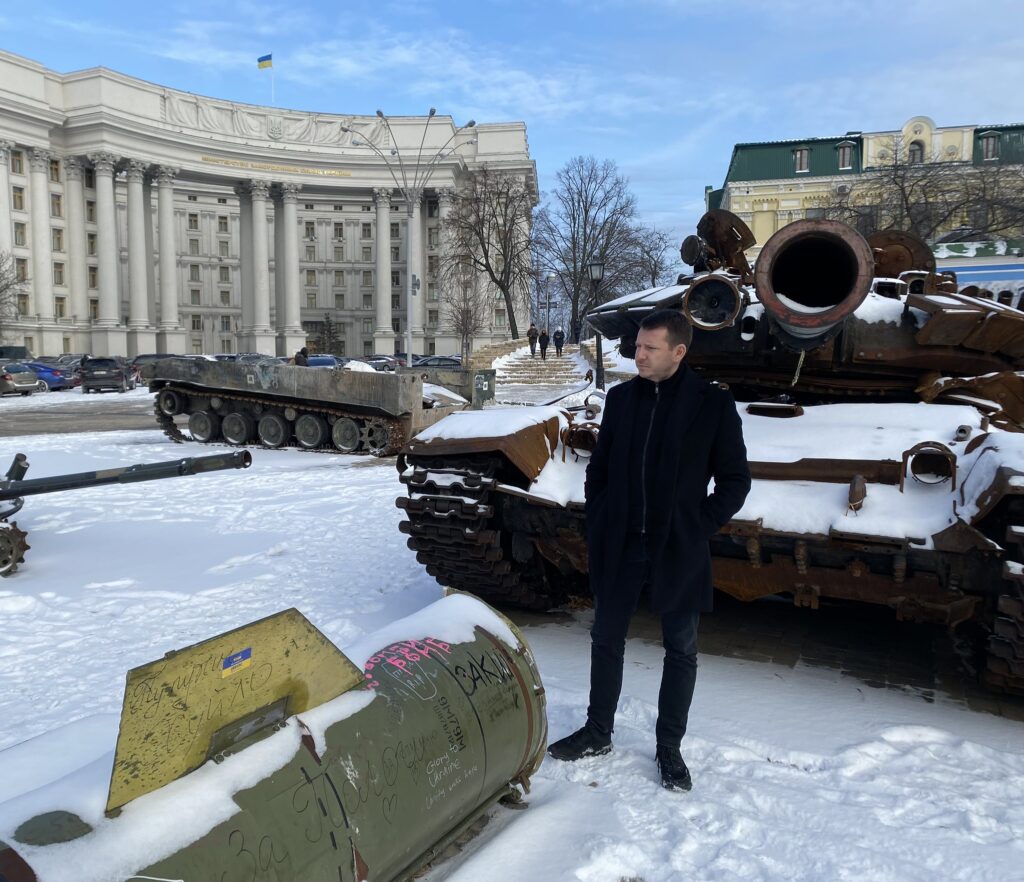
13 January 2023 – Ukrainian war refugees who arrive in Estonia can move to Finland
As Estonia is reaching its limit in receiving Ukrainian war refugees, after which it would struggle to offer all the necessary support services and assistance up to the required standards, Estonia and the Finnish government have decided to cooperate by offering some of the refugees the option to move on to Finland, BNS reported. In Finland, war refugees will be able to apply for temporary protection and are guaranteed the relevant support services.
The Estonian and Finnish ministries of the interior reached an agreement whereby Finland would receive up to 100 Ukrainian war refugees per week, if the refugees express their wish to do so.
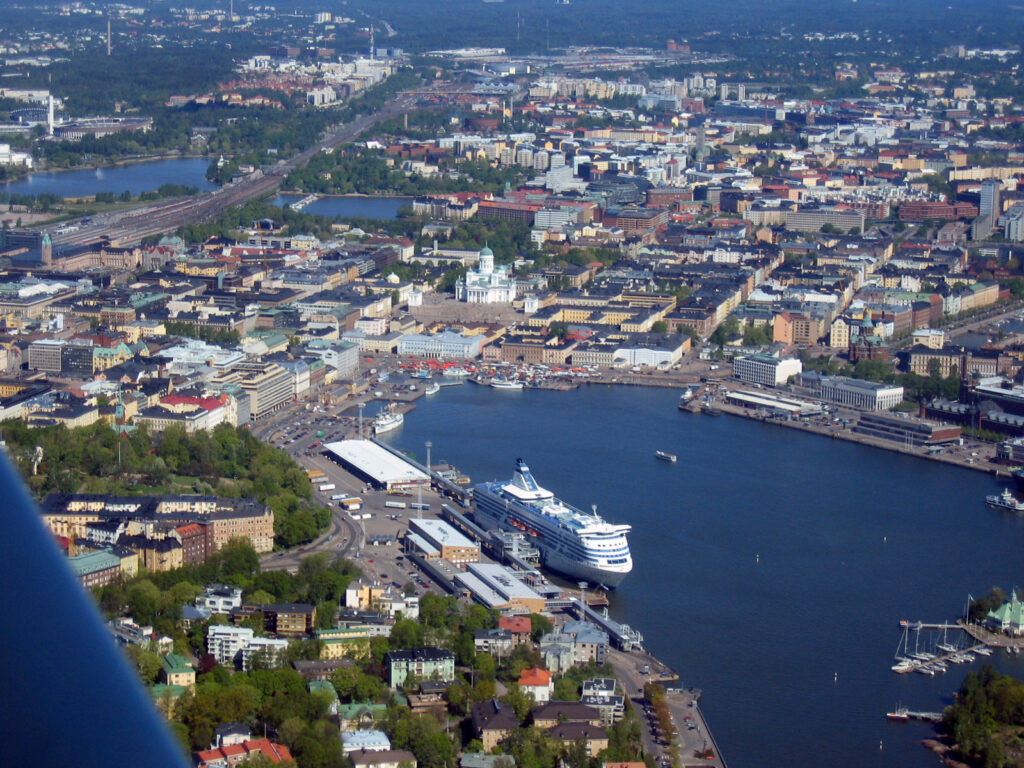
12 January 2023 – Russia: Estonia must understand its hostile activity will not go unanswered
According to Maria Zakharova, a spokesperson for the Russian foreign ministry, Russia finds Estonia to be one of the most hostile countries towards Russia and the country must be prepared that every action has its consequences, BNS reported.
“It has long been no secret to us that Estonia is one of the most hostile states towards Russia. Russophobia has been elevated to the level of an official doctrine. At the same time, they seemingly want once again to please their overseas curators. Estonia must understand that none of their hostile actions will go unanswered,” Zakharova said.
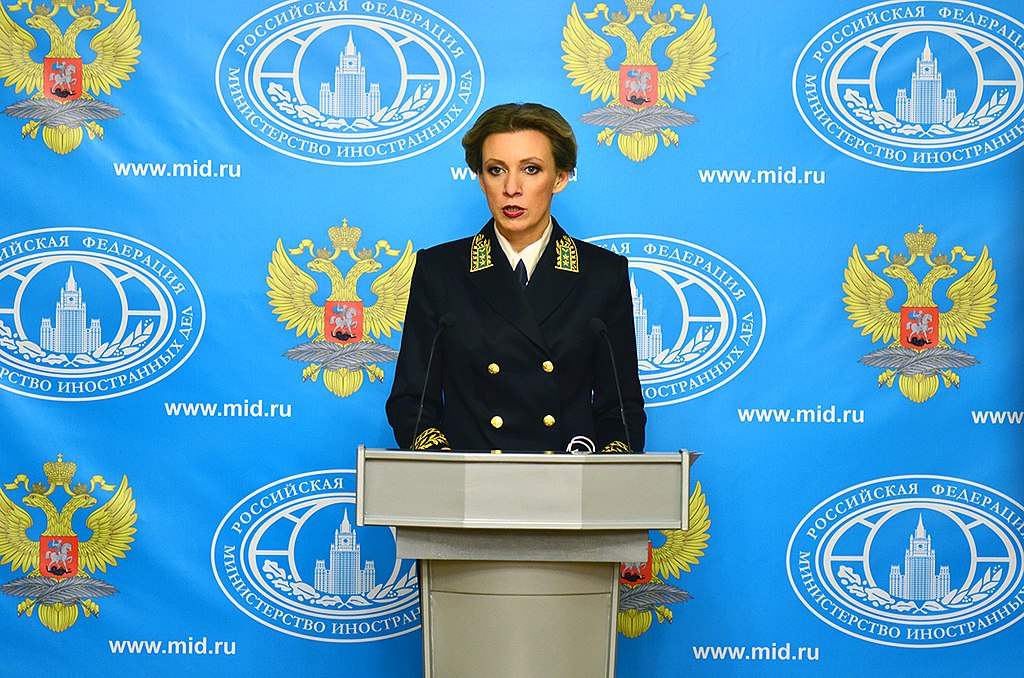
11 January 2023 – Estonia reduces the number of Russian embassy staff
Estonia notified the ambassador of the Russian Federation of a decision according to which Russia must reduce the number of its staff by 1 February to eight diplomatic positions and 15 posted administrative, technical and service staff members, BNS reported. The aim of the decision is to reach parity in embassy staff, which means that the number of positions in the Russian and Estonian representations operating in capitals will be made equal.
“Estonia considers the principle of parity very important in our relations with Russia. In light of the fact that during the war of aggression, the staff of the Russian embassy is not engaged in advancing Estonian-Russian relations, it is our view that there are no grounds for the current size of the Russian embassy,” the Estonian foreign minister, Urmas Reinsalu, said.
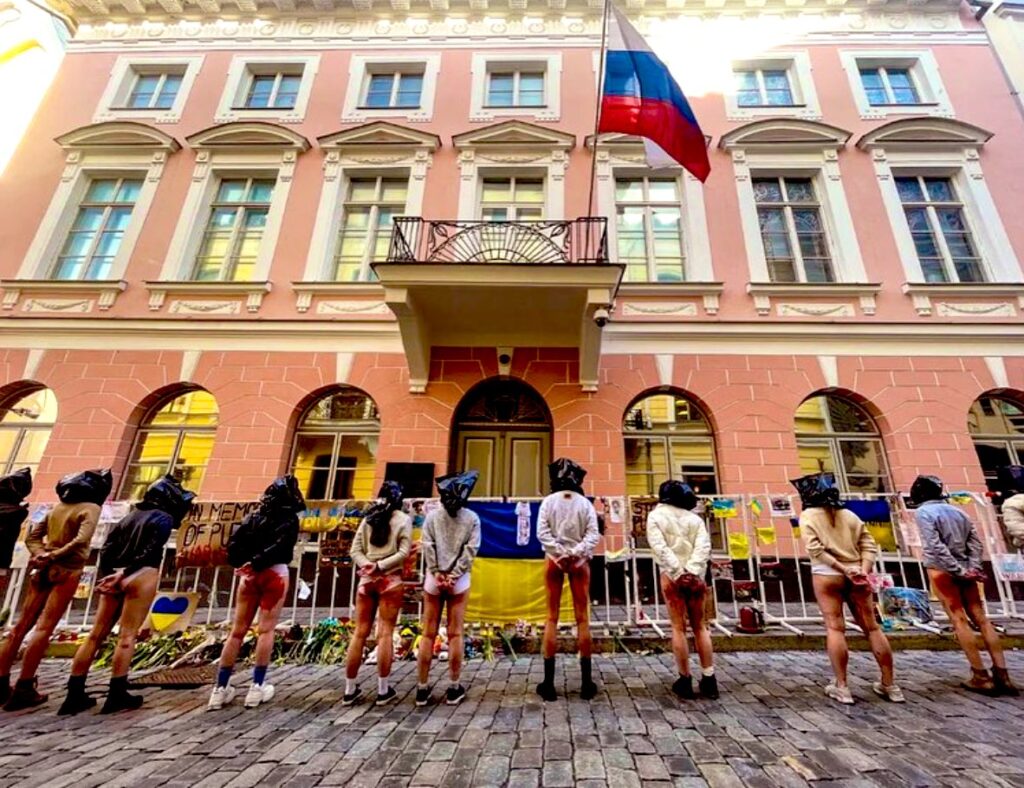
10 January 2023 – Estonian president to Zelensky: Your war is also our war
In a phone call with the Ukrainian president, Volodymyr Zelensky, the Estonian head of state, Alar Karis, reaffirmed Estonia’s continued comprehensive support to Ukraine to help the latter win the war, BNS reported. He promised that Estonia will raise awareness among its allies and partners about the importance of supplying the defending Ukrainian army with new weapons systems.
“Estonia will do everything it can to help Ukraine win the war. We will definitely continue to provide military aid to the greatest extent possible and the next military aid package is being approved by the government,” Karis said. “Strong international support must continue until Ukraine has liberated its territory. We must understand that Russia’s war of aggression doesn’t just jeopardise Ukraine, it jeopardises all of Europe. Your war is also our war.”
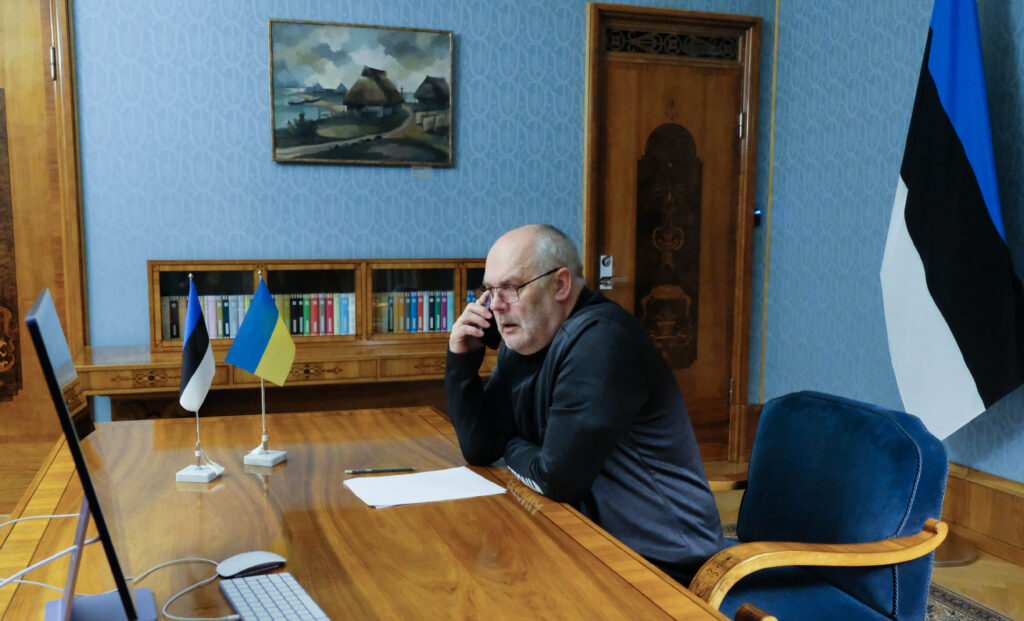
10 January 2023 – Tallinn sends two ambulances, medical equipment to Lviv
The city of Tallinn sent the Ukrainian city of Lviv an aid consignment consisting of two Mercedes-Benz Sprinter 319 ambulances with equipment belonging to Tallinn Ambulance, as well as medical equipment from the East Tallinn Central Hospital.
In addition to the two ambulances, Tallinn Ambulance also sent medical equipment to Lviv, such as aspirators, defibrillators, ECG machines and perfusers (devices for dosing and administering medicine) and scoop stretchers. The East Tallinn Central Hospital also donated defibrillators and other equipment in a total amount of 18 units, 12,000 FFP2 masks and pharmacy supplies, such as syringes, cannulas, infusion systems, wound plasters and dressings, antiseptics and so on.
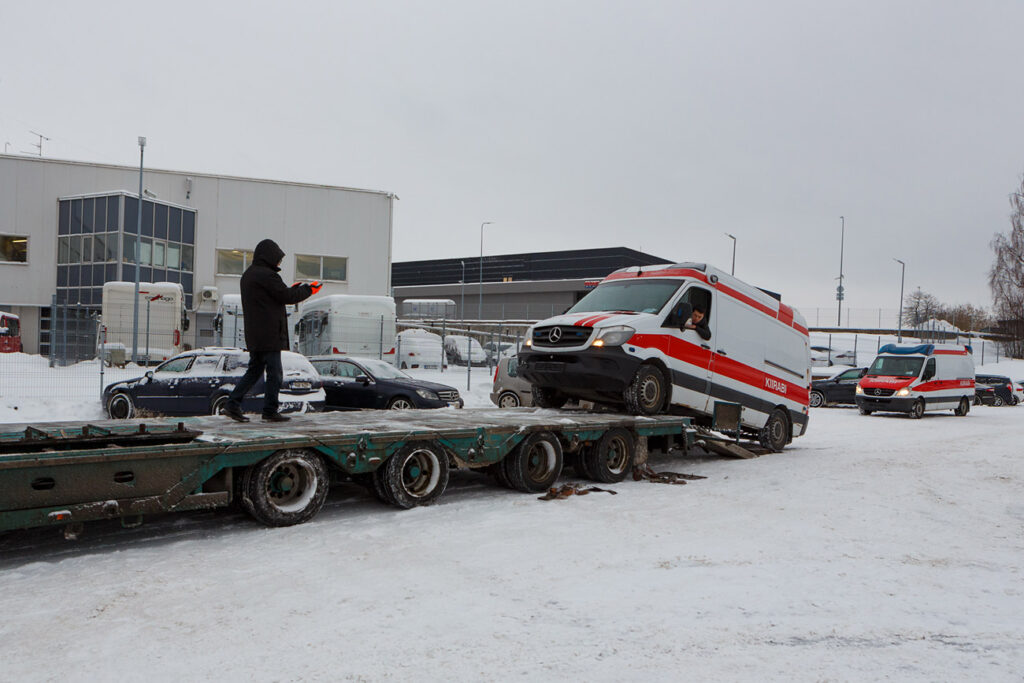
9 January 2023 – The Integration Foundation to help war refugees stay connected with their culture
The Estonian Integration Foundation today opened an application round to support the organisation of Ukrainian language cultural events for young war refugees in cooperation with Ukrainian cultural societies, Estonian NGOs and cultural institutions, as well as the teaching of Ukrainian language and culture and the publication of children’s and youth literature in Ukrainian. The budget of the application round is €100,000 and up to €15,000 can be applied for in one application. More information is available on the Integration Foundation website.
8 January 2023 – A photo exhibition of Ukrainian war refugees to open
On 10 March, photo exhibition “I Choose Life”, depicting Ukrainians who fled to Estonia from the war and their stories, will open on Tallinn’s Freedom Square. It is a social and cultural project created by Ukrainian war refugee photographers. In addition to portraits of the refugees, the exhibition also tells their story: who they are, what their life was like in Ukraine, where they lived and who they worked for. It also answers questions about how they have adapted in Estonia, where they live and work now, and where and who they see themselves in five years’ time.

4 January 2023 – Tallinn hands over 14 buses to Ukraine’s Zhytomyr region
Mihhail Kõlvart and Tanel Kiik, the mayor and deputy mayor of Tallinn, respectively, visited Ukraine today and handed over 14 diesel buses to the city of Zhytomyr – a city in the north of the western half of Ukraine and the administrative centre of Zhytomyr province. Tallinn’s city government also sent generators and other humanitarian aid.
In addition, Kõlvart and Kiik got acquainted with the Zhytomyr Invulnerability Point – a point of refuge, where residents can gather during power and heating cuts. The centre provides heating, light, cooking facilities, phone charging and, if necessary, overnight accommodation. The mayor of Tallinn said in a statement that “we can also learn from Zhytomyr in preparing for crises, such as the creation of service centres for residents and the organisation of local government work in times of crisis”.
